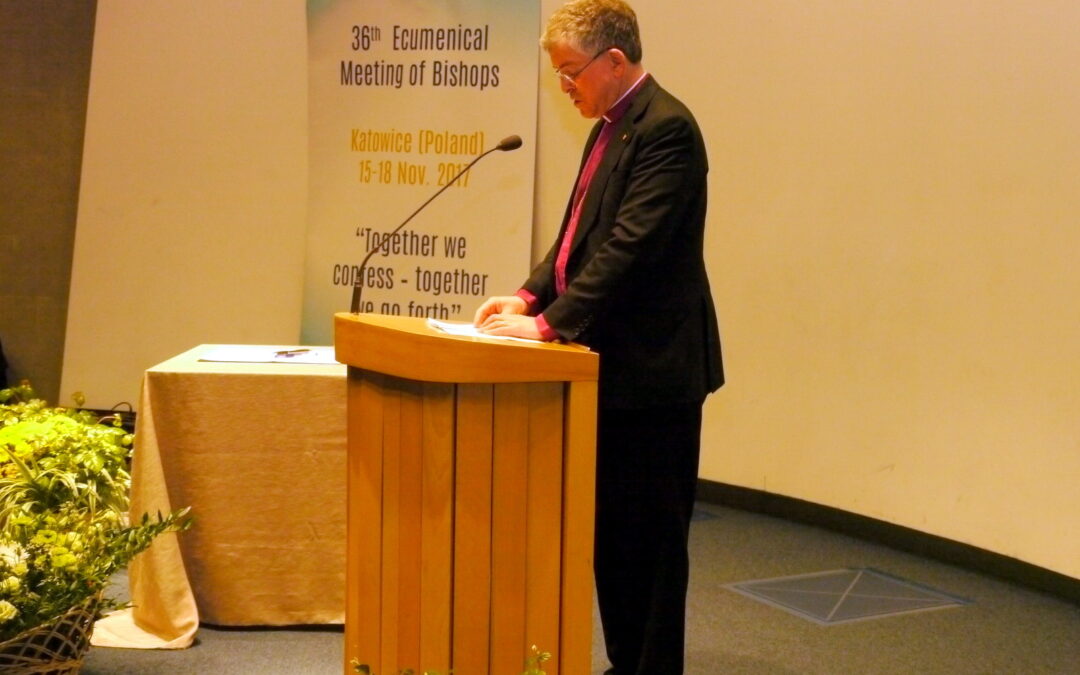
Nov 27, 2017 | Focolare Worldwide
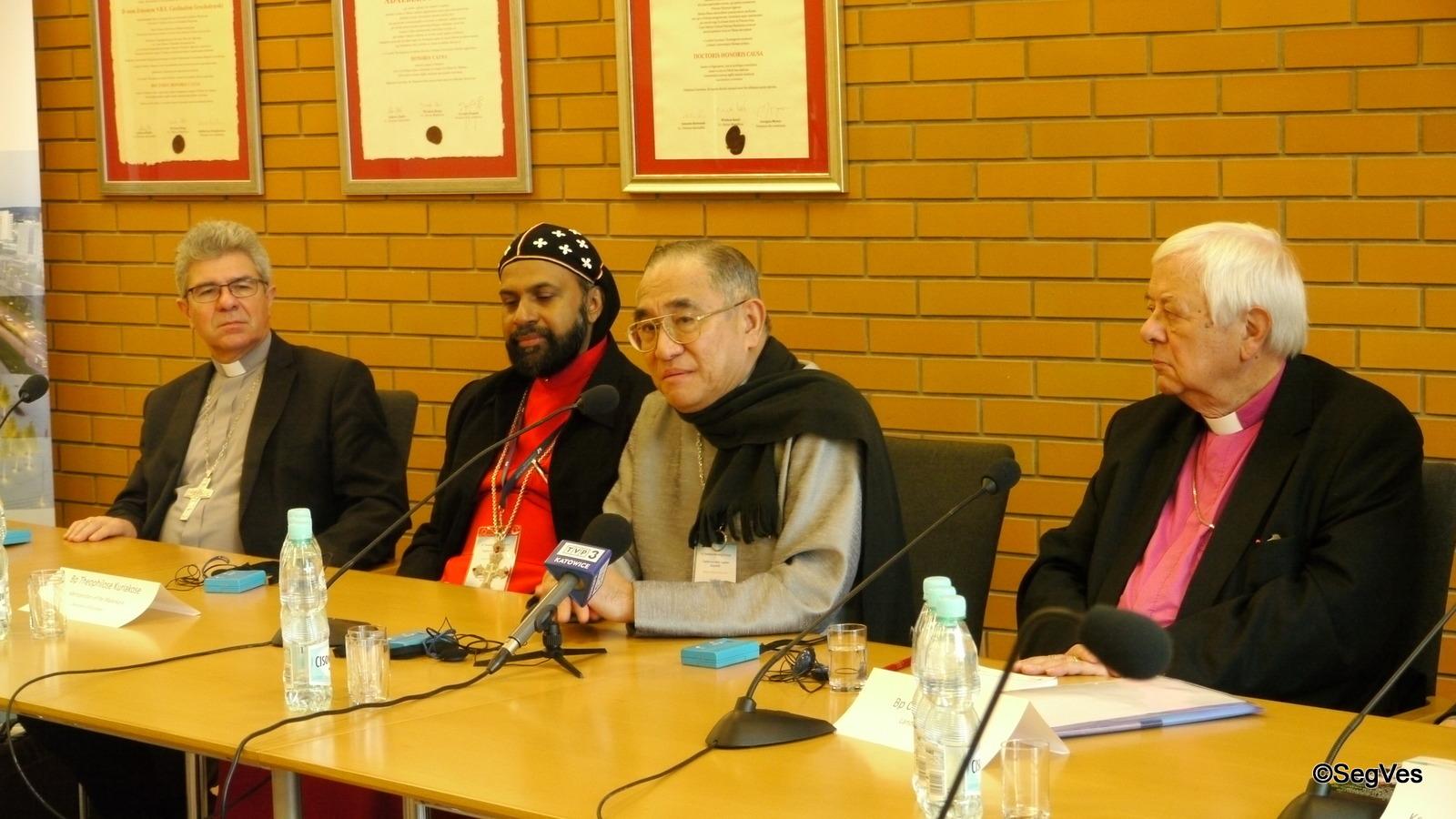 For the first time after 36 years, Poland was the host country of the annual ecumenical convention of the Bishop-friends of the Focolare Movement. After Jerusalem, Istanbul, London, Augsburg and other “symbolic” cities of the ecumenical commitment, Katowice, capital of Slesia, an ancient city of almost 300,000 inhabitant, welcomed, from 15 to 18 November, 35 bishops of different Churches: Orthodox, Syriac-Orthodox, Evangelical-Lutherans, Anglican, Methodists and Catholics from Germany, Austria, England, Ireland, Sweden, Poland, Hungary, Lithuania, Latvia, Czech Republic, but also Brazil, Cyprus, India, Democratic Republic of Congo, Thailand and the USA. Along with around thirty lay people the bishops gathered in Katowice represented a cross section of various social and ecclesial communities, driven by the desire to make an experience of fraternal communion. “Together we confess, together we go forth” was the title of the Convention, which was organized not only by the Focolare Movement, but also by the local Catholic Archdiocese and the Evangelical-Lutheran Church of Augustinian Confession, the Orthodox Church of Sosnowiec, the Faculty of Theology of the Slesia University and the city of Katowice itself, represented by mayor Marcin Krupa.
For the first time after 36 years, Poland was the host country of the annual ecumenical convention of the Bishop-friends of the Focolare Movement. After Jerusalem, Istanbul, London, Augsburg and other “symbolic” cities of the ecumenical commitment, Katowice, capital of Slesia, an ancient city of almost 300,000 inhabitant, welcomed, from 15 to 18 November, 35 bishops of different Churches: Orthodox, Syriac-Orthodox, Evangelical-Lutherans, Anglican, Methodists and Catholics from Germany, Austria, England, Ireland, Sweden, Poland, Hungary, Lithuania, Latvia, Czech Republic, but also Brazil, Cyprus, India, Democratic Republic of Congo, Thailand and the USA. Along with around thirty lay people the bishops gathered in Katowice represented a cross section of various social and ecclesial communities, driven by the desire to make an experience of fraternal communion. “Together we confess, together we go forth” was the title of the Convention, which was organized not only by the Focolare Movement, but also by the local Catholic Archdiocese and the Evangelical-Lutheran Church of Augustinian Confession, the Orthodox Church of Sosnowiec, the Faculty of Theology of the Slesia University and the city of Katowice itself, represented by mayor Marcin Krupa. 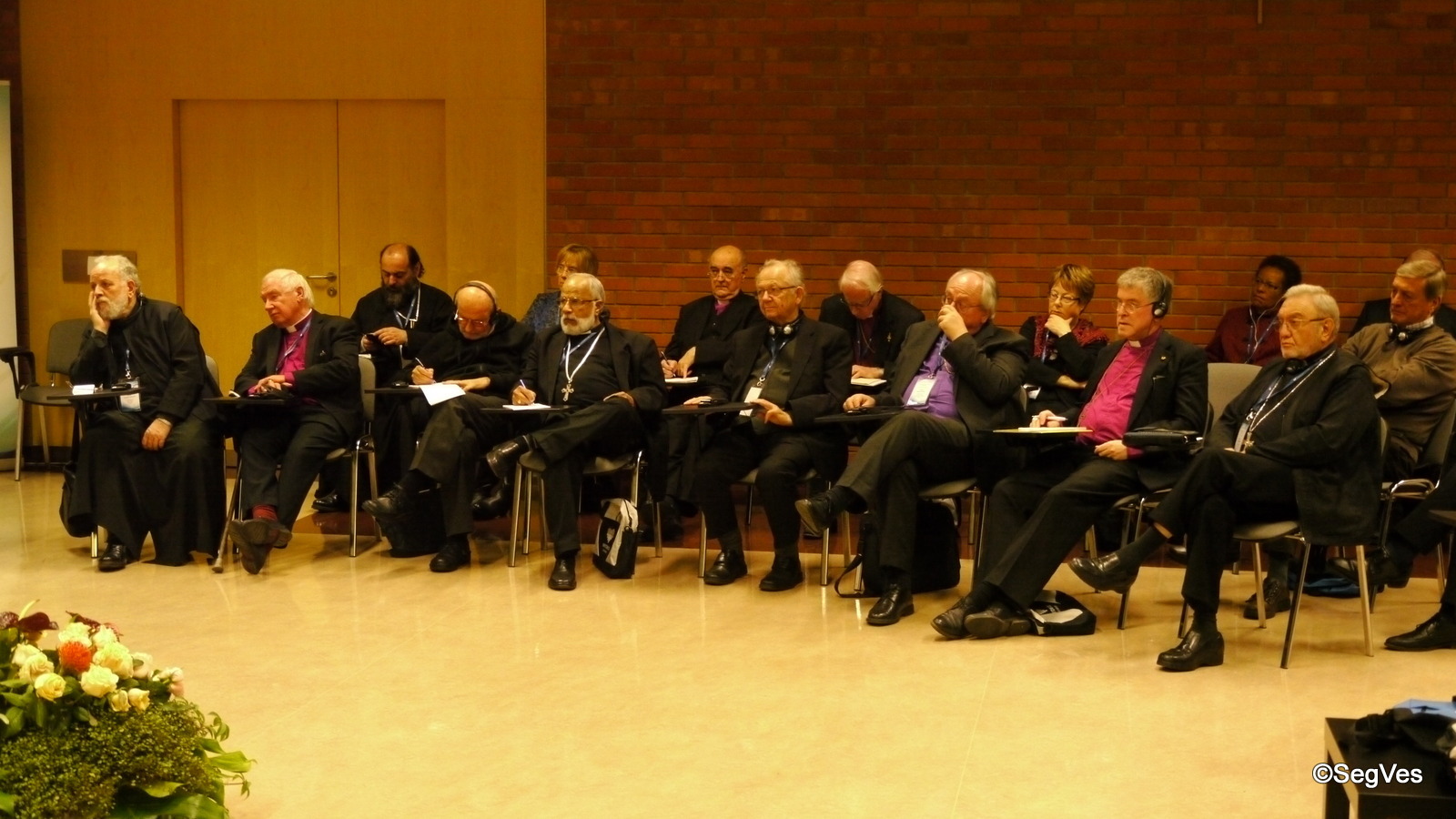 The convention opened with the reflection of Lesley Ellison, an Anglican, on “The Spirituality of unity: an ecumenical spirituality,” and had as its central theme “Mary, the Mother of Jesus,” with the theological studies in the various Catholic, Evangelic, Anglican and Orthodox perspectives. There were many encounters, celebrations and moments of prayer according to the various traditions, sealed by a “pact of mutual love” to live fraternal communion and to “love the Church of the other as one’s own Brendan Leahly is the Catholic bishop of Limerick (Irelanda), expert and counselor of ecumenical dialogue in his country. Interviewed on the phone, he said: “I want to underline the warm welcome received in Katowice, which I had already visited in 1991, on the occasion of Chiara Lubich’s encounter with the Focolare centers of Western and Eastern Europe. It is a highly developed city, which valorizes diversity and hospitality. Just as what we experienced in these days, the hospitality of the Faculty of Theology which hosted us, but also of the Catholic, Lutheran and Orthodox Churches.” The convention was the occasion to get to know one another better, and acquire a deeper knowledge of the different ecclesial and socio-cultural realities we live in, especially in the Middle East and Eastern Europe. We realize that we cannot offer solutions for the problems of those countries (especially regarding the Middle East), but we can at least carry one another’s burdens. Feeling the suffering of others has enlarged my heart. Now I no longer feel only like an Irish bishop, I carry within also the situations and problems of the other bishops. But with a new hope. In every country there are signs of hope, and the steps taken at ecumenical level go to prove this fact. For example in the Czech Republic a process of mutual forgiveness is underway for the errors committed. Ecumenism – he continued– is a reality that started its path many years ago, and will meet ever new situations and give new testimonials. It is, after all, an experience of giving and receiving. What strikes me is the strong Catholic faith which is deeply rooted here in Poland, but also the openness to dialogue with the representatives of the other communities.”
The convention opened with the reflection of Lesley Ellison, an Anglican, on “The Spirituality of unity: an ecumenical spirituality,” and had as its central theme “Mary, the Mother of Jesus,” with the theological studies in the various Catholic, Evangelic, Anglican and Orthodox perspectives. There were many encounters, celebrations and moments of prayer according to the various traditions, sealed by a “pact of mutual love” to live fraternal communion and to “love the Church of the other as one’s own Brendan Leahly is the Catholic bishop of Limerick (Irelanda), expert and counselor of ecumenical dialogue in his country. Interviewed on the phone, he said: “I want to underline the warm welcome received in Katowice, which I had already visited in 1991, on the occasion of Chiara Lubich’s encounter with the Focolare centers of Western and Eastern Europe. It is a highly developed city, which valorizes diversity and hospitality. Just as what we experienced in these days, the hospitality of the Faculty of Theology which hosted us, but also of the Catholic, Lutheran and Orthodox Churches.” The convention was the occasion to get to know one another better, and acquire a deeper knowledge of the different ecclesial and socio-cultural realities we live in, especially in the Middle East and Eastern Europe. We realize that we cannot offer solutions for the problems of those countries (especially regarding the Middle East), but we can at least carry one another’s burdens. Feeling the suffering of others has enlarged my heart. Now I no longer feel only like an Irish bishop, I carry within also the situations and problems of the other bishops. But with a new hope. In every country there are signs of hope, and the steps taken at ecumenical level go to prove this fact. For example in the Czech Republic a process of mutual forgiveness is underway for the errors committed. Ecumenism – he continued– is a reality that started its path many years ago, and will meet ever new situations and give new testimonials. It is, after all, an experience of giving and receiving. What strikes me is the strong Catholic faith which is deeply rooted here in Poland, but also the openness to dialogue with the representatives of the other communities.” 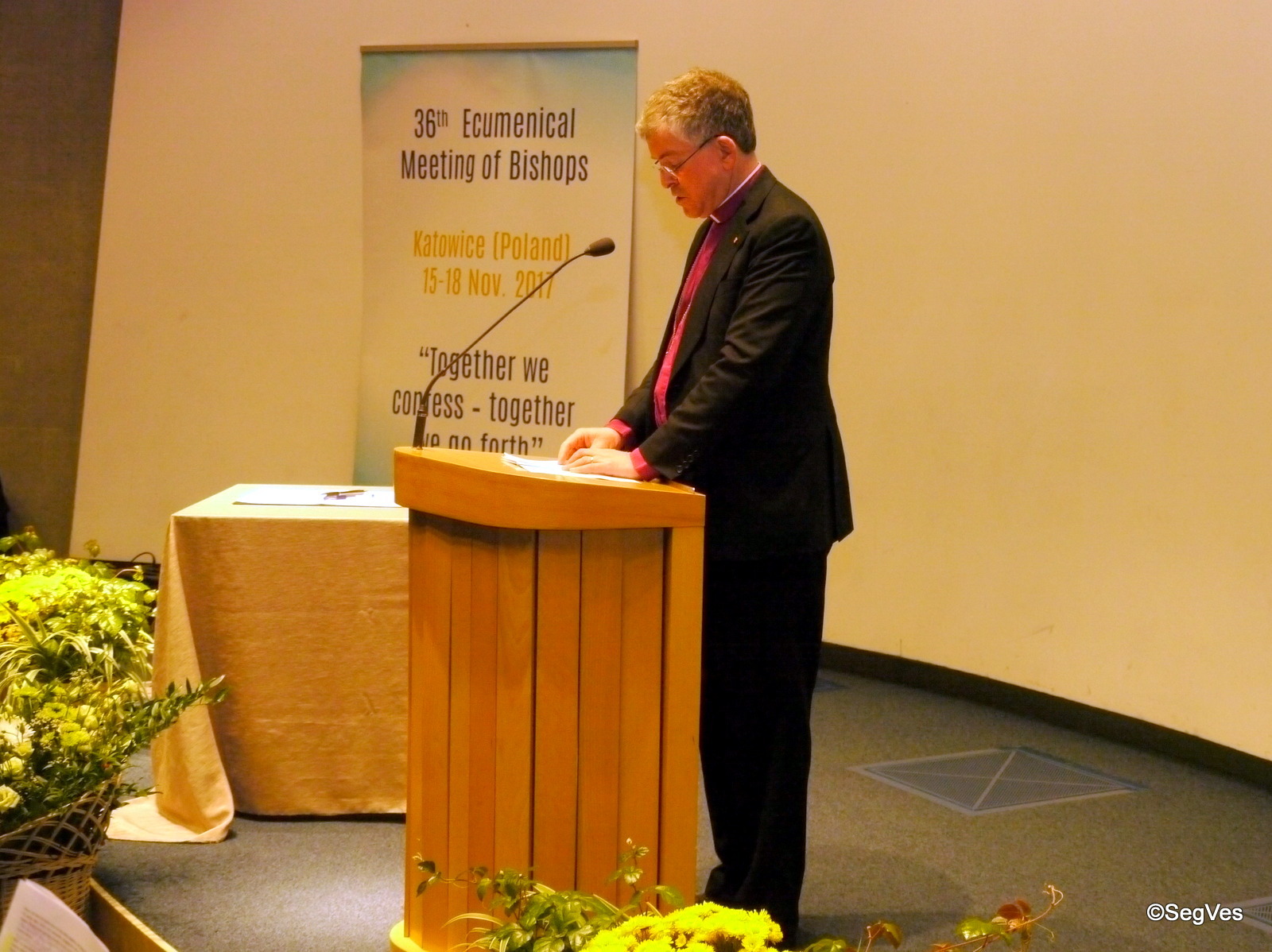 Åke Bonnier, Lutheran bishop of the diocese of Skara, in Sweden, said he was happy about the convention: «We were not bishops but brothers. What we shared in the convention was a reality, both during the breaks and intervals, and also during the celebrations. This was very important for me, it gave me new strength and enthusiasm. I now look forward to next year, when, I hope all of them and also others can come to Sweden. If they ask me if this meeting was important as a path for the unity of Christians, my answer is yes. Unity is not something that will come about only in the future, it is already a reality among us.”
Åke Bonnier, Lutheran bishop of the diocese of Skara, in Sweden, said he was happy about the convention: «We were not bishops but brothers. What we shared in the convention was a reality, both during the breaks and intervals, and also during the celebrations. This was very important for me, it gave me new strength and enthusiasm. I now look forward to next year, when, I hope all of them and also others can come to Sweden. If they ask me if this meeting was important as a path for the unity of Christians, my answer is yes. Unity is not something that will come about only in the future, it is already a reality among us.”

Nov 25, 2017 | Non categorizzato
 If one day all people, not as individuals, but as peoples, learned to put themselves aside, to put aside the ideas they have about their own countries, their kingdoms, and offer them as incense to the Lord, the king of a kingdom that is not of this world, the guide of history, and if all were to do this as the expression of the mutual love between states that God asks for, just as he asks for mutual love among individuals, that day would be the beginning of a new era. For on that day, just as Jesus is present among two who love each other in Christ, Jesus will be alive and present among peoples, given finally his true place as the one king, not only of individual hearts but also of nations: he will be Christ the King. Christian peoples, or their representatives, must learn how to sacrifice their “collective” egos. This is the price. Nothing less is asked of each of us in order for our souls to be consumed in unity. Now is the time for every people to go beyond their own borders, to look further. Now is the time to love other countries as our own, to acquire a new purity of vision. To be Christians it is not enough to be detached from ourselves. The times we live in demand something more from the followers of Christ: the awareness of Christianity’s social dimension, which not only builds up one’s own land according to the law of Christ, but also enables other lands to be built up as well, through the universal action of the Church, and through the supernatural vision given to us by God the Father, who sees things quite differently from the way we do. We need to live as the Mystical Body of Christ in such an excellent way as to translate it into the mystical body of society […] May the Lord have mercy on this divided and confused world, on these peoples closed within their shells, contemplating their own beauty — the only beauty that exists for them – that is both limiting and unsatisfying) They strain to hold onto their treasures against all odds, the very treasures that could help other peoples who are dying of hunger. May the Lord cause all barriers to fall, and allow love to flow uninterruptedly among all lands, bringing with it torrents of spiritual and material goods. Let’s hope that the Lord will bring about a new order in the world. He alone can make humanity one family and cultivate the unique characteristics of each people so that the splendour of each, put at the service of others, may shine out with the one light of life. This light will make each earthly homeland more beautiful, so it becomes a prelude to the eternal Homeland. See also: Chiara Lubich , “Mary Transparency of God”, New City Press, 2003 p 102
If one day all people, not as individuals, but as peoples, learned to put themselves aside, to put aside the ideas they have about their own countries, their kingdoms, and offer them as incense to the Lord, the king of a kingdom that is not of this world, the guide of history, and if all were to do this as the expression of the mutual love between states that God asks for, just as he asks for mutual love among individuals, that day would be the beginning of a new era. For on that day, just as Jesus is present among two who love each other in Christ, Jesus will be alive and present among peoples, given finally his true place as the one king, not only of individual hearts but also of nations: he will be Christ the King. Christian peoples, or their representatives, must learn how to sacrifice their “collective” egos. This is the price. Nothing less is asked of each of us in order for our souls to be consumed in unity. Now is the time for every people to go beyond their own borders, to look further. Now is the time to love other countries as our own, to acquire a new purity of vision. To be Christians it is not enough to be detached from ourselves. The times we live in demand something more from the followers of Christ: the awareness of Christianity’s social dimension, which not only builds up one’s own land according to the law of Christ, but also enables other lands to be built up as well, through the universal action of the Church, and through the supernatural vision given to us by God the Father, who sees things quite differently from the way we do. We need to live as the Mystical Body of Christ in such an excellent way as to translate it into the mystical body of society […] May the Lord have mercy on this divided and confused world, on these peoples closed within their shells, contemplating their own beauty — the only beauty that exists for them – that is both limiting and unsatisfying) They strain to hold onto their treasures against all odds, the very treasures that could help other peoples who are dying of hunger. May the Lord cause all barriers to fall, and allow love to flow uninterruptedly among all lands, bringing with it torrents of spiritual and material goods. Let’s hope that the Lord will bring about a new order in the world. He alone can make humanity one family and cultivate the unique characteristics of each people so that the splendour of each, put at the service of others, may shine out with the one light of life. This light will make each earthly homeland more beautiful, so it becomes a prelude to the eternal Homeland. See also: Chiara Lubich , “Mary Transparency of God”, New City Press, 2003 p 102
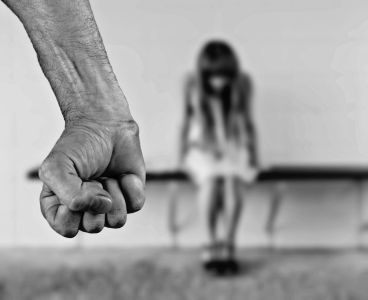
Nov 25, 2017 | Non categorizzato
 The “International Day for the Elimination of Violence Against Women” was established by the UN in 1999. It occurs every year on November 25 and governments, international organizations and NGOs are committed to raising awareness about the issue and thus creating public opinion. 18 years have passed since its establishment. Much has been done but it’s far from enough. There’s no need to look further afield where violence against women is concerned. It can happen right next door to us and go undetected.. . The words of St John Paul II resound very strongly in his Apostolic Letter Mulieris dignitatem (MD, August 15, 1988), underlining that “God created man and woman in his image, not just as individuals but, in their commonality as the as ‘unity of the two’. The man and woman, therefore, are essentially the same, both persons called as such to participate in the intimate life of God and to live in mutual communion with one another, in love, on the model of God who is Love, who is unity in the Trinity, and to mirror in the world the communion of love that exists in God (MD 7). ” It is a milestone which needs to be faced daily as individuals and as a society.
The “International Day for the Elimination of Violence Against Women” was established by the UN in 1999. It occurs every year on November 25 and governments, international organizations and NGOs are committed to raising awareness about the issue and thus creating public opinion. 18 years have passed since its establishment. Much has been done but it’s far from enough. There’s no need to look further afield where violence against women is concerned. It can happen right next door to us and go undetected.. . The words of St John Paul II resound very strongly in his Apostolic Letter Mulieris dignitatem (MD, August 15, 1988), underlining that “God created man and woman in his image, not just as individuals but, in their commonality as the as ‘unity of the two’. The man and woman, therefore, are essentially the same, both persons called as such to participate in the intimate life of God and to live in mutual communion with one another, in love, on the model of God who is Love, who is unity in the Trinity, and to mirror in the world the communion of love that exists in God (MD 7). ” It is a milestone which needs to be faced daily as individuals and as a society.

Nov 24, 2017 | Non categorizzato
 “Have I really been transferred here?” Francesca asked with a pounding heart as the jail doors –a series of about ten big iron gates – opened out for her. Someone had described it as “a descent into hell.” After attending a course for jail teachers, Francesca entered the classroom for the first time. “I thought I would be assisted by a jail policeman, instead the only agent on shift had to monitor around ten classrooms and also perform other tasks at the same time. On the second day I said to myself: “It can’t go on like this! If I am afraid, it is useless that God has sent me here!” From that moment on I felt I was free to love.” In trying to see in the jailees only persons inhabited by Jesus, a journey began for Francesca. It was not so much the going to and returning from a place without limits to a place of reclusion, it was the going to the heart of many stories imbued with real humanity, errors, fear, and anguish, and also to the decision to take one’s life again into one’s hands. It was the start of a deep dialogue, with each side respecting the role of the other. “I tried to prepare the lessons very well, to make them attractive. I knew that Jesus came with me even in jail. During science lessons I started to explain about anatomy and the relations between organs and systems. Subsequently some jailees started to cut down on cigarettes, gradually abolished the use of tranquillizers, and sunbathed during out-of-cell time.” “Besides the difficulty of teaching students with different educational backgrounds – Francesca says – there other types of problems, the clanging of the gates, the irregular attendance of the students, and continuous transfers to and from other jailhouses. That is why whoever stood before me in that moment became even more precious. I might not have seen him again.” Ermal, is Albanese and a remarkably intelligent boy to whom Francesca had given the article of Pope Francis’s interview with prisoners. From that day on, a deep dialogue started about God and prayer. In a short time, Ermal reached brilliant results in school. “Professor, excuse me, I can’t write anything, I’ve got too many problems!” A young Tunisian held his head in his hands in front of a blank sheet for a class exercise. “I received the permit to bring him earphones for the PC and watch a film in his language. Slowly he relaxed, started to practice sports, made an appeal and is now hoping for a reduction of his term. Now when I see him, he greets me with a smile from behind bars.” «At Christmas –Francesca continues her story – we were invited to participate in the Christmas Eve mass. I was the only one since the other teachers had gone to the one celebrated for the “protected” jailees. We had not decided together. There were also Muslims among those present, others without any religious creed, and some jailees who had committed serious crimes. The Bishop started by saying: “You are not the crime you have committed, you are human beings. The crime regards the past; now let us look ahead with hope.” «In January Ermal obtained house arrest. But in that period he was approached by the gang which was the cause of all his problems. We could not keep contact with him, and couldn’t even get his address. Every day I entrusted him to Mary, asking her to let him return to school. After two months, due to evasion from house arrest, Ermal returned to jail! For us it was “good news” and the occasion for him to continue his studies. In a short time he brilliantly passed the High School exam. The President of the Commission told him: “Do you realise that you’ve got brains? What are you planning for the future?” “I want to study,” he said – “to prepare for University.” «After a year in school, I must say that I have come to know another world, almost like a parallel universe. My heart has expanded, and my way of thinking has changed. Many things that seem necessary “outside” are no longer so when you live a life of privation, where they are seen in the right perspective.” But the change God operates in people’s hearts goes beyond the bars or limits.
“Have I really been transferred here?” Francesca asked with a pounding heart as the jail doors –a series of about ten big iron gates – opened out for her. Someone had described it as “a descent into hell.” After attending a course for jail teachers, Francesca entered the classroom for the first time. “I thought I would be assisted by a jail policeman, instead the only agent on shift had to monitor around ten classrooms and also perform other tasks at the same time. On the second day I said to myself: “It can’t go on like this! If I am afraid, it is useless that God has sent me here!” From that moment on I felt I was free to love.” In trying to see in the jailees only persons inhabited by Jesus, a journey began for Francesca. It was not so much the going to and returning from a place without limits to a place of reclusion, it was the going to the heart of many stories imbued with real humanity, errors, fear, and anguish, and also to the decision to take one’s life again into one’s hands. It was the start of a deep dialogue, with each side respecting the role of the other. “I tried to prepare the lessons very well, to make them attractive. I knew that Jesus came with me even in jail. During science lessons I started to explain about anatomy and the relations between organs and systems. Subsequently some jailees started to cut down on cigarettes, gradually abolished the use of tranquillizers, and sunbathed during out-of-cell time.” “Besides the difficulty of teaching students with different educational backgrounds – Francesca says – there other types of problems, the clanging of the gates, the irregular attendance of the students, and continuous transfers to and from other jailhouses. That is why whoever stood before me in that moment became even more precious. I might not have seen him again.” Ermal, is Albanese and a remarkably intelligent boy to whom Francesca had given the article of Pope Francis’s interview with prisoners. From that day on, a deep dialogue started about God and prayer. In a short time, Ermal reached brilliant results in school. “Professor, excuse me, I can’t write anything, I’ve got too many problems!” A young Tunisian held his head in his hands in front of a blank sheet for a class exercise. “I received the permit to bring him earphones for the PC and watch a film in his language. Slowly he relaxed, started to practice sports, made an appeal and is now hoping for a reduction of his term. Now when I see him, he greets me with a smile from behind bars.” «At Christmas –Francesca continues her story – we were invited to participate in the Christmas Eve mass. I was the only one since the other teachers had gone to the one celebrated for the “protected” jailees. We had not decided together. There were also Muslims among those present, others without any religious creed, and some jailees who had committed serious crimes. The Bishop started by saying: “You are not the crime you have committed, you are human beings. The crime regards the past; now let us look ahead with hope.” «In January Ermal obtained house arrest. But in that period he was approached by the gang which was the cause of all his problems. We could not keep contact with him, and couldn’t even get his address. Every day I entrusted him to Mary, asking her to let him return to school. After two months, due to evasion from house arrest, Ermal returned to jail! For us it was “good news” and the occasion for him to continue his studies. In a short time he brilliantly passed the High School exam. The President of the Commission told him: “Do you realise that you’ve got brains? What are you planning for the future?” “I want to study,” he said – “to prepare for University.” «After a year in school, I must say that I have come to know another world, almost like a parallel universe. My heart has expanded, and my way of thinking has changed. Many things that seem necessary “outside” are no longer so when you live a life of privation, where they are seen in the right perspective.” But the change God operates in people’s hearts goes beyond the bars or limits.
Nov 23, 2017 | Non categorizzato
The Sophia University Institute is pleased to invite you to the Inauguration of the Athenagoras- Chiara Lubich Ecumenical Professorship that will be chaired by His Eminence Gennadios Zervos, Orthodox Archbishop of Italy and Malta entitled: The Partriach Athenagoras and Chiara Lubich, protagonist of unity. Maria Stella Giannetti: Communication – External Relations Istituto Universitario Sophia Via san Vito 28, Loppiano – 50064 Figline e Incisa Valdarno (FI) Tel. +39.055.9051521 – Cell. +39.349 62 72 045
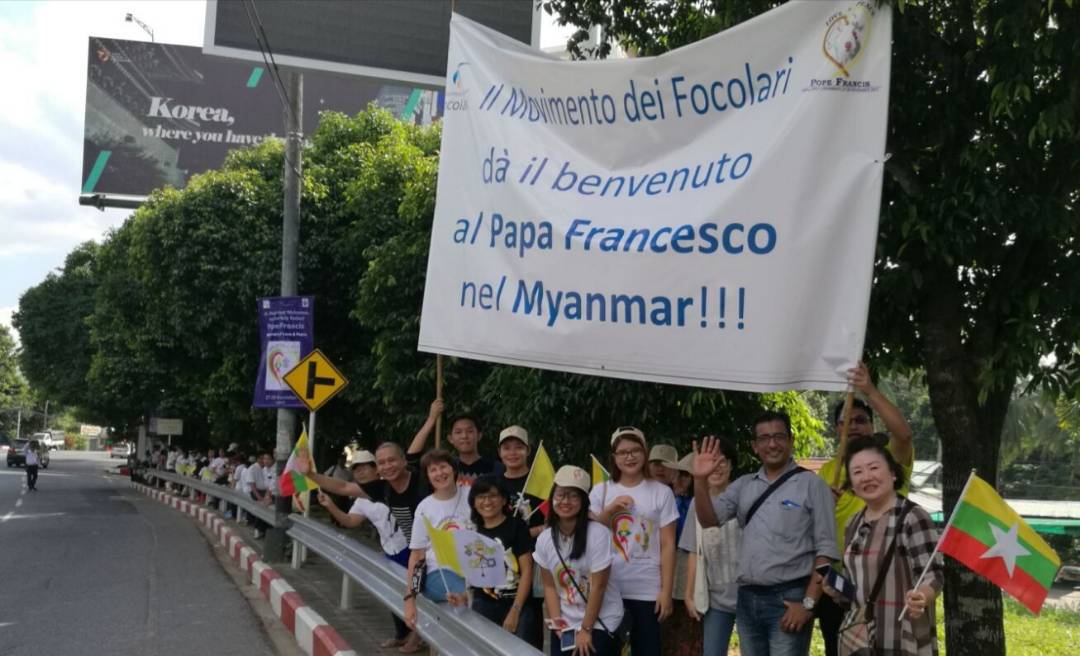
Nov 23, 2017 | Non categorizzato
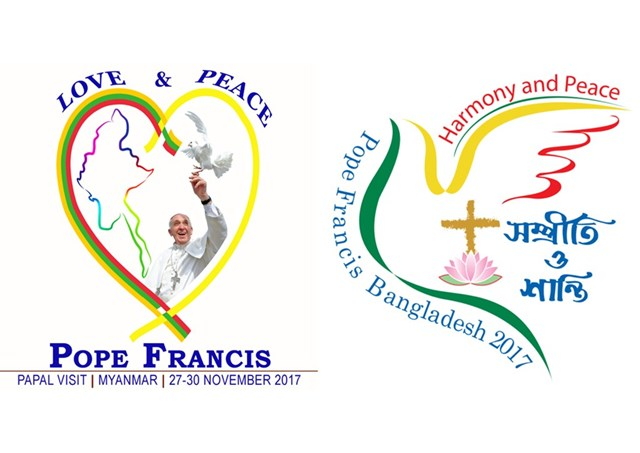 From 26 November to 2 December, Pope Francis will embark on an apostolic voyage to Asia, stopping in Myanmar from 27 to 30 November and in Bangladesh from November 30 till December 2. It will be the first visit of a Pontiff to Myanmar, while in 1986, John Paul II visited Bangladesh, one of the most densely populated and poorest countries of the world.
From 26 November to 2 December, Pope Francis will embark on an apostolic voyage to Asia, stopping in Myanmar from 27 to 30 November and in Bangladesh from November 30 till December 2. It will be the first visit of a Pontiff to Myanmar, while in 1986, John Paul II visited Bangladesh, one of the most densely populated and poorest countries of the world.  Pope Francis will travel to Dhaka, the capital city of Bangladesh. During his stay, he will meet with prominent political and civil authorities, as well as young Muslim and Hindu religious leaders in order to address major issues such as climate change, migration, the refugee crisis, the future of young people, all in view of renewed hope. The members of the Focolare Movement will be accompanying this intense week long schedule in Asia with prayer for harmony and peace. A video message recorded by Pope Francis in view of the apostolic visit to Myanmar
Pope Francis will travel to Dhaka, the capital city of Bangladesh. During his stay, he will meet with prominent political and civil authorities, as well as young Muslim and Hindu religious leaders in order to address major issues such as climate change, migration, the refugee crisis, the future of young people, all in view of renewed hope. The members of the Focolare Movement will be accompanying this intense week long schedule in Asia with prayer for harmony and peace. A video message recorded by Pope Francis in view of the apostolic visit to Myanmar
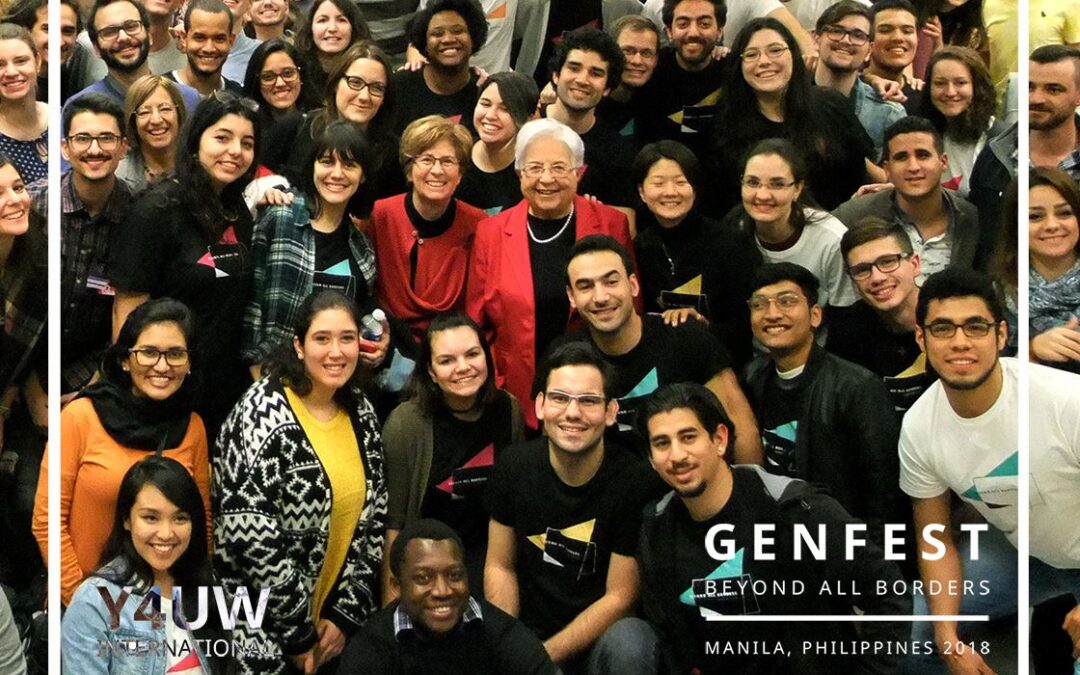
Nov 23, 2017 | Focolare Worldwide
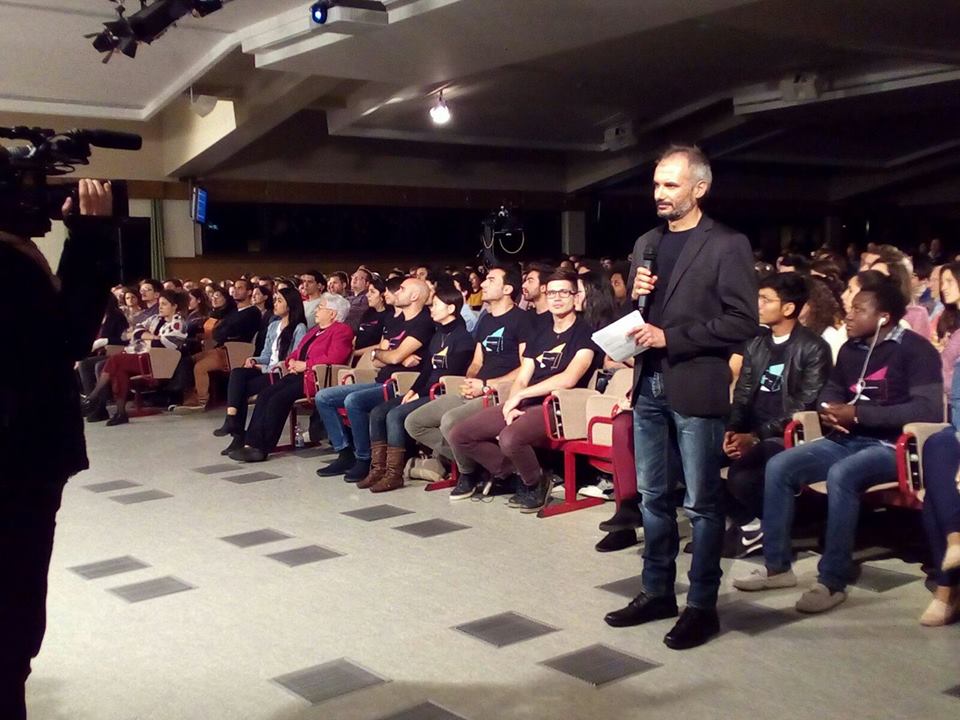
Paolo Balduzzi, TV journalist, presents the “Youth for a united World” during the live worldwide transmission.
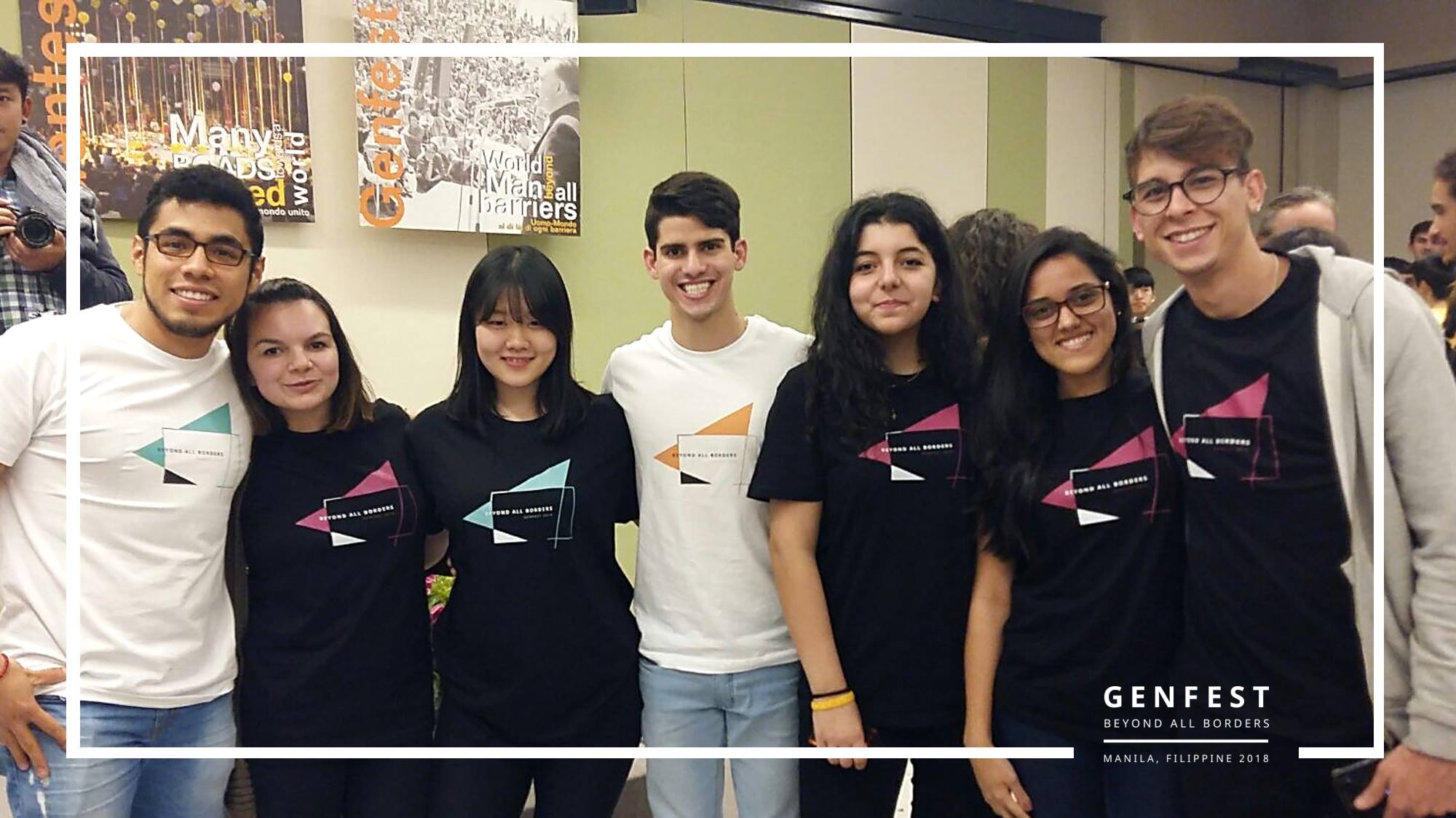 It’s that great idea that was launched by Chiara Lubich in 1987, the idea she bequeathed to the new generations. That year, the Focolare foundress stood in front of a vast crowd of young people and explained to them the reason for the Genfest: “An explosion of fires, not artificial fireworks, but real fires, the fire of God’s love. The goal of ut omnes (“Father, may they all be one” [Jn 17:20-23]) draws near. Jesus wins over and draws people along, leaving behind everything that doesn’t move, like a stream of fresh water that leaves to the sides all the things that can’t be carried ahead in its limpid waters.” Chiara added: “You’ll see the miracles of God’s grace, because God is with us, God is in our midst. He’s the only Powerful One.” Standing among the young people was the current president of the Focolare, Maria Voce. “I’d like to say a huge thank you to the young people.” They’ve made a great act of courage “which seems like the answer of today to the appeal Chiara has launched ever since 1960: ‘Young people of the world unite!’ This appeal still resounds right now, not only for you, but for everyone. The goal of a united world has not yet been reached. The first generation couldn’t do it alone. The second won’t do it alone either, because its purpose is so vast. The idea of a united world has to be passed on from one generation to the next, and all of them united together can hope to bring it to fulfilment.”
It’s that great idea that was launched by Chiara Lubich in 1987, the idea she bequeathed to the new generations. That year, the Focolare foundress stood in front of a vast crowd of young people and explained to them the reason for the Genfest: “An explosion of fires, not artificial fireworks, but real fires, the fire of God’s love. The goal of ut omnes (“Father, may they all be one” [Jn 17:20-23]) draws near. Jesus wins over and draws people along, leaving behind everything that doesn’t move, like a stream of fresh water that leaves to the sides all the things that can’t be carried ahead in its limpid waters.” Chiara added: “You’ll see the miracles of God’s grace, because God is with us, God is in our midst. He’s the only Powerful One.” Standing among the young people was the current president of the Focolare, Maria Voce. “I’d like to say a huge thank you to the young people.” They’ve made a great act of courage “which seems like the answer of today to the appeal Chiara has launched ever since 1960: ‘Young people of the world unite!’ This appeal still resounds right now, not only for you, but for everyone. The goal of a united world has not yet been reached. The first generation couldn’t do it alone. The second won’t do it alone either, because its purpose is so vast. The idea of a united world has to be passed on from one generation to the next, and all of them united together can hope to bring it to fulfilment.” 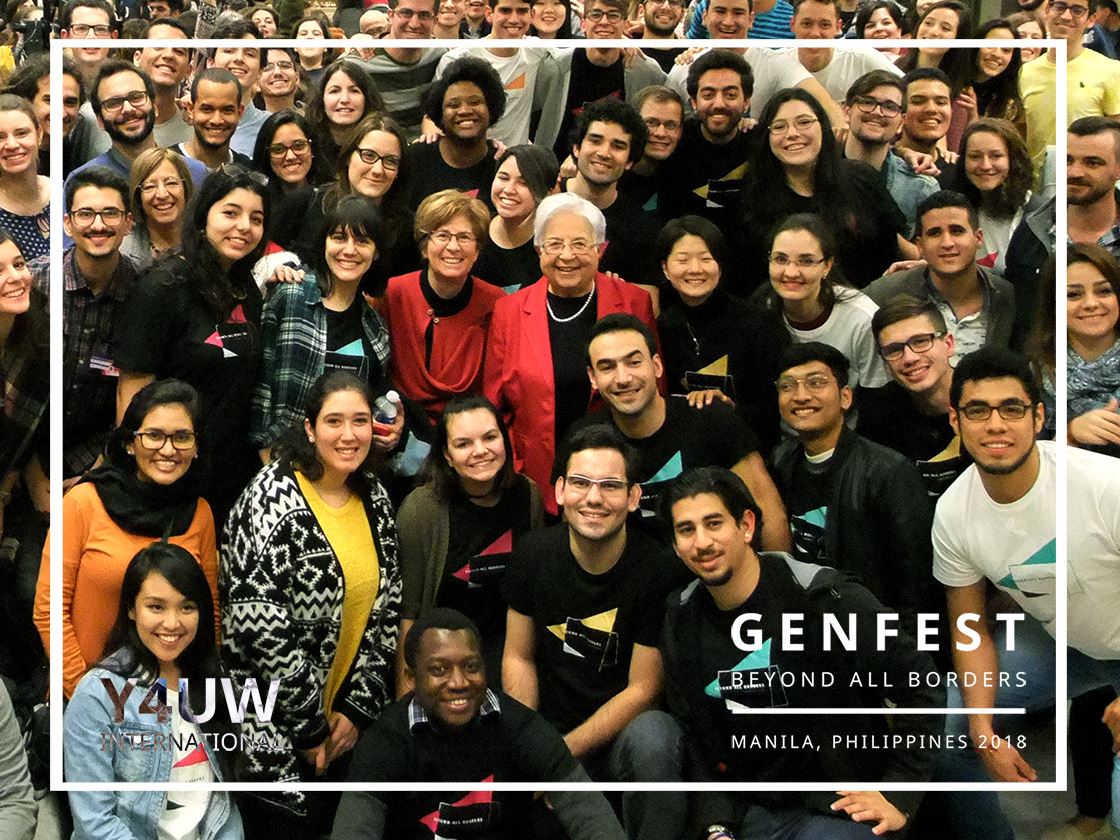 She went on to say: “The Genfest isn’t something that only regards the young, but everyone. That’s why I want to go, and I hope there will be many of us.” Everyone can do something. “Some may say: but I’m sick, I can’t… Offer your pain! Let’s all of us step up. You can help by offering hospitality; you can help the young people to prepare their programmes; you can give financial support for the young people who otherwise wouldn’t be able to attend. Let’s do all we can, whatever it takes. The Genfest is mine, it’s ours!” Before signing off, young person from the Philippines leaves everyone with a triple task: “First: organize a local Genfest. Second: do a concrete project to help at least one young person go to Manila. Third: Buy the T-shirt with our logo.” Find all the details at: Youth for a United World website, and remember this acronym Y4UW. See also: www.focolare.org/en/genfest-2018/
She went on to say: “The Genfest isn’t something that only regards the young, but everyone. That’s why I want to go, and I hope there will be many of us.” Everyone can do something. “Some may say: but I’m sick, I can’t… Offer your pain! Let’s all of us step up. You can help by offering hospitality; you can help the young people to prepare their programmes; you can give financial support for the young people who otherwise wouldn’t be able to attend. Let’s do all we can, whatever it takes. The Genfest is mine, it’s ours!” Before signing off, young person from the Philippines leaves everyone with a triple task: “First: organize a local Genfest. Second: do a concrete project to help at least one young person go to Manila. Third: Buy the T-shirt with our logo.” Find all the details at: Youth for a United World website, and remember this acronym Y4UW. See also: www.focolare.org/en/genfest-2018/

Nov 22, 2017 | Non categorizzato
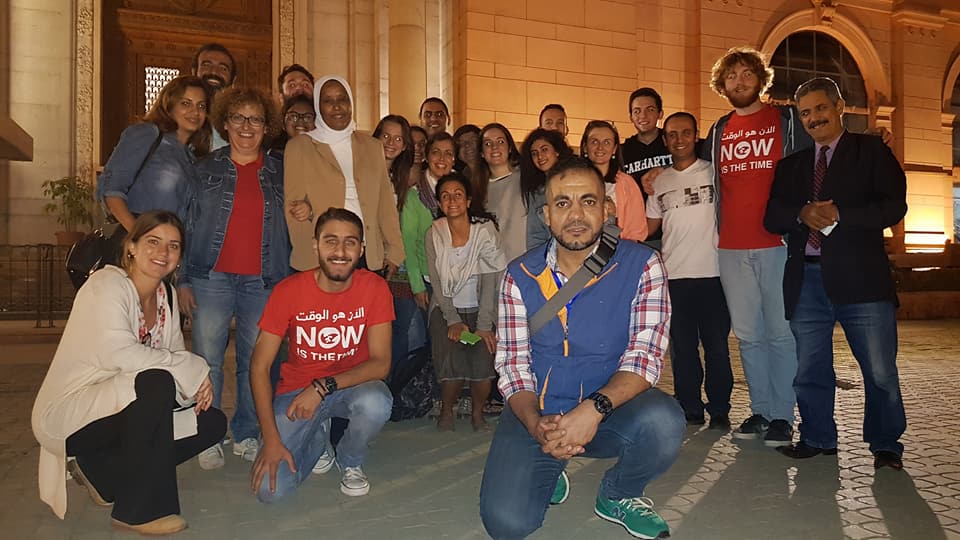 “What will my future be as a young person in my land?” This cry of Nasreen, a young Palestinian, penetrates the hearts of the other young people who listen in deep silence wanting to put balsam on her wounds, still open after years of war and social instability. Emina was seven years old when war broke out in Sarajevo. Her life changed in an instant, but her desire to mature and counter react has been stronger. And Albert from Spain: “My life changed ever since I had an experience of living in a refugee camp in Jordan. I’m no longer the same.” They are young people who are determined to revive the challenges of building the social fabric of peace starting from their own lives.
“What will my future be as a young person in my land?” This cry of Nasreen, a young Palestinian, penetrates the hearts of the other young people who listen in deep silence wanting to put balsam on her wounds, still open after years of war and social instability. Emina was seven years old when war broke out in Sarajevo. Her life changed in an instant, but her desire to mature and counter react has been stronger. And Albert from Spain: “My life changed ever since I had an experience of living in a refugee camp in Jordan. I’m no longer the same.” They are young people who are determined to revive the challenges of building the social fabric of peace starting from their own lives.  Thirty-two participants took part in the “Host Spot” project, held from 28 October to 2 November 2017 in Alexandria, Egypt. It was promoted by several NGOs and Associations, including New Humanity, “Non dalla guerra”, Caritas in Jordan, Igino Giordani Foundation (Spain), B-Net, Jesuit Culture Center (Alexandria), Ireland Focolare Trust, VACA (Palestine) and Starkmacher (Germany). Starting off from their experience of meeting at a refugee camp in Jordan in August 2016, the young people pursued their initiative by holding two follow-up events in Germany, where they dealt with some of communication techniques, and as a final stage they met in Egypt.
Thirty-two participants took part in the “Host Spot” project, held from 28 October to 2 November 2017 in Alexandria, Egypt. It was promoted by several NGOs and Associations, including New Humanity, “Non dalla guerra”, Caritas in Jordan, Igino Giordani Foundation (Spain), B-Net, Jesuit Culture Center (Alexandria), Ireland Focolare Trust, VACA (Palestine) and Starkmacher (Germany). Starting off from their experience of meeting at a refugee camp in Jordan in August 2016, the young people pursued their initiative by holding two follow-up events in Germany, where they dealt with some of communication techniques, and as a final stage they met in Egypt.  Young people from Hungary, Bosnia, Palestine, Egypt, Spain, Ireland, Italy and Jordan spent ten days together in the accomplishment of this innovative project, promoted by the European Community, in order to create connections and to build bridges between youth associations which which have as their aim the quest for peace. Through workshops, in-depth sessions on issues in the Middle East, dialogue between cultures and the importance of the media in communicating migration problems, in a world where one in two refugees is a child, the protagonists of this edition of Host Spot have embarked on a steadfast mission to spread a culture of peace, first and foremost through a training course on current affairs and information seminars on the systems which regulate the media. It was an experience which has allowed the youth protagonists to draw conclusions regarding the activities already undertaken and to plan together how to pursue this valuable collaboration between associations by developing projects and putting new synergies in place.
Young people from Hungary, Bosnia, Palestine, Egypt, Spain, Ireland, Italy and Jordan spent ten days together in the accomplishment of this innovative project, promoted by the European Community, in order to create connections and to build bridges between youth associations which which have as their aim the quest for peace. Through workshops, in-depth sessions on issues in the Middle East, dialogue between cultures and the importance of the media in communicating migration problems, in a world where one in two refugees is a child, the protagonists of this edition of Host Spot have embarked on a steadfast mission to spread a culture of peace, first and foremost through a training course on current affairs and information seminars on the systems which regulate the media. It was an experience which has allowed the youth protagonists to draw conclusions regarding the activities already undertaken and to plan together how to pursue this valuable collaboration between associations by developing projects and putting new synergies in place.


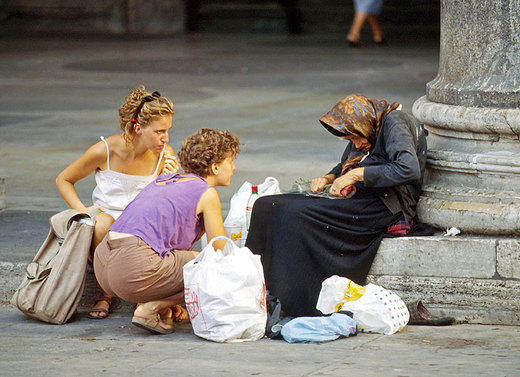
Nov 21, 2017 | Non categorizzato
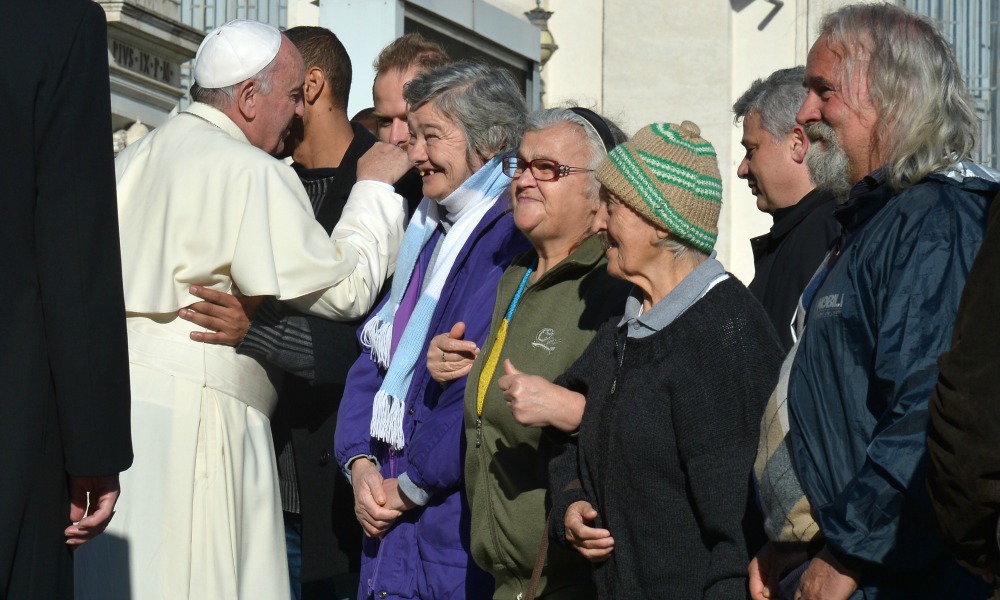 The news that was announced on June 13th by Pope Francis, who wished there to be an international day dedicated to the poor, appeared totally in line with his pontificate that is so attentive to the needs of the vulnerable and discarded by society. The response from associations, movements and institutions, as well single individuals and groups, was surprising. The Focolare Movement in Italy embraced the invitation to “create moments of encounter and friendship, solidarity and concrete help,” to love “not only with words, but with deeds.” “Although we can learn from the poor,” say Rosalba Poli and Andrea Goller who are responsible for the Focolare in Italy, “nonetheless those who have more are called to give.” Not alms, not symbolic gesture to put ones conscience at peace; the invitation is to step out of our comfort zone and our certainties,” as the Pope says, “to go out to meet the thousands of faces of poverty.” In Italy also the phenomenon is a cause of concern. According to a recent government report, nearly 5 million people are living in “absolute poverty.” Eight million and a half suffer “relative poverty.” It is a poverty of a thousand faces: marginalization, unemployment, violence, lack of aid. And mostly isolation, because being poor first of all means being excluded.
The news that was announced on June 13th by Pope Francis, who wished there to be an international day dedicated to the poor, appeared totally in line with his pontificate that is so attentive to the needs of the vulnerable and discarded by society. The response from associations, movements and institutions, as well single individuals and groups, was surprising. The Focolare Movement in Italy embraced the invitation to “create moments of encounter and friendship, solidarity and concrete help,” to love “not only with words, but with deeds.” “Although we can learn from the poor,” say Rosalba Poli and Andrea Goller who are responsible for the Focolare in Italy, “nonetheless those who have more are called to give.” Not alms, not symbolic gesture to put ones conscience at peace; the invitation is to step out of our comfort zone and our certainties,” as the Pope says, “to go out to meet the thousands of faces of poverty.” In Italy also the phenomenon is a cause of concern. According to a recent government report, nearly 5 million people are living in “absolute poverty.” Eight million and a half suffer “relative poverty.” It is a poverty of a thousand faces: marginalization, unemployment, violence, lack of aid. And mostly isolation, because being poor first of all means being excluded.  “The Day of the Poor takes us back to a primary aspect of the Focolare’s spirituality, the communion of goods,” Poli and Goller explain. “It’s a practice that has led to many social projects over the years, inspired by the desire to imitate the custom in the early Christian communities where no one was needy among them. Some of our projects include Arcobaleno Association, which has been active in Milan for more than 30 years; the La Pira Center for you foreigners in Florence; the Sempre Persona Project that helps prisoners to become reinserted into society and offers assistance to their families. Then, the Apriamoci Project from the Trentino More cultural association, such as Facciamo Casa Insieme. Others distribute food, like the l’Associazione Solidarietà in Reggio Emilia, B&F in Ascoli, Associazione Città Fraterna and Comitato Umanità Nuova in Genoa. RomAmor is involved in helping the homeless around the Ostiense Train Stations, whereas other projects welcome refugees in Lampedusa and Ventimiglia. In Pomigliano d’Arco, the Legami di Solidarietà work in an area that is strongly marked by unemployment where mutuality and sharing has made a comeback. Following the earthquake in central Italy, several Solidarity Buying Groups were instituted by the RImPRESA Project to provide on site support for local economic activities that had been damaged in the earthquake. Alongside the consolidated projects, other projects have begun in the north and south of the country, often networking with institutions or associations that work in the social field. The intent is to become stable supporters of those living in poverty. From Milan to Sicily, from Messina to Udine, there are food banks, listening centres, soup kitchens, recycling projects. There is also a home for separated parents, at the city gate of Cagliari. Meanwhile, just a few days from its activation, the App Fag-8 project already has thousands of subscriptions. It’s a technological evolution of the custom of putting ones possessions in common, material things and also talents, ideas. By downloading the app it is possible for someone to share (also in someone else’s account), a material object, a project or one’s own time. It is a tool connected to total local a national networks, that allows one to find out in a short time whether what I’m looking for is available, or if I can answer someone else’s need.
“The Day of the Poor takes us back to a primary aspect of the Focolare’s spirituality, the communion of goods,” Poli and Goller explain. “It’s a practice that has led to many social projects over the years, inspired by the desire to imitate the custom in the early Christian communities where no one was needy among them. Some of our projects include Arcobaleno Association, which has been active in Milan for more than 30 years; the La Pira Center for you foreigners in Florence; the Sempre Persona Project that helps prisoners to become reinserted into society and offers assistance to their families. Then, the Apriamoci Project from the Trentino More cultural association, such as Facciamo Casa Insieme. Others distribute food, like the l’Associazione Solidarietà in Reggio Emilia, B&F in Ascoli, Associazione Città Fraterna and Comitato Umanità Nuova in Genoa. RomAmor is involved in helping the homeless around the Ostiense Train Stations, whereas other projects welcome refugees in Lampedusa and Ventimiglia. In Pomigliano d’Arco, the Legami di Solidarietà work in an area that is strongly marked by unemployment where mutuality and sharing has made a comeback. Following the earthquake in central Italy, several Solidarity Buying Groups were instituted by the RImPRESA Project to provide on site support for local economic activities that had been damaged in the earthquake. Alongside the consolidated projects, other projects have begun in the north and south of the country, often networking with institutions or associations that work in the social field. The intent is to become stable supporters of those living in poverty. From Milan to Sicily, from Messina to Udine, there are food banks, listening centres, soup kitchens, recycling projects. There is also a home for separated parents, at the city gate of Cagliari. Meanwhile, just a few days from its activation, the App Fag-8 project already has thousands of subscriptions. It’s a technological evolution of the custom of putting ones possessions in common, material things and also talents, ideas. By downloading the app it is possible for someone to share (also in someone else’s account), a material object, a project or one’s own time. It is a tool connected to total local a national networks, that allows one to find out in a short time whether what I’m looking for is available, or if I can answer someone else’s need.
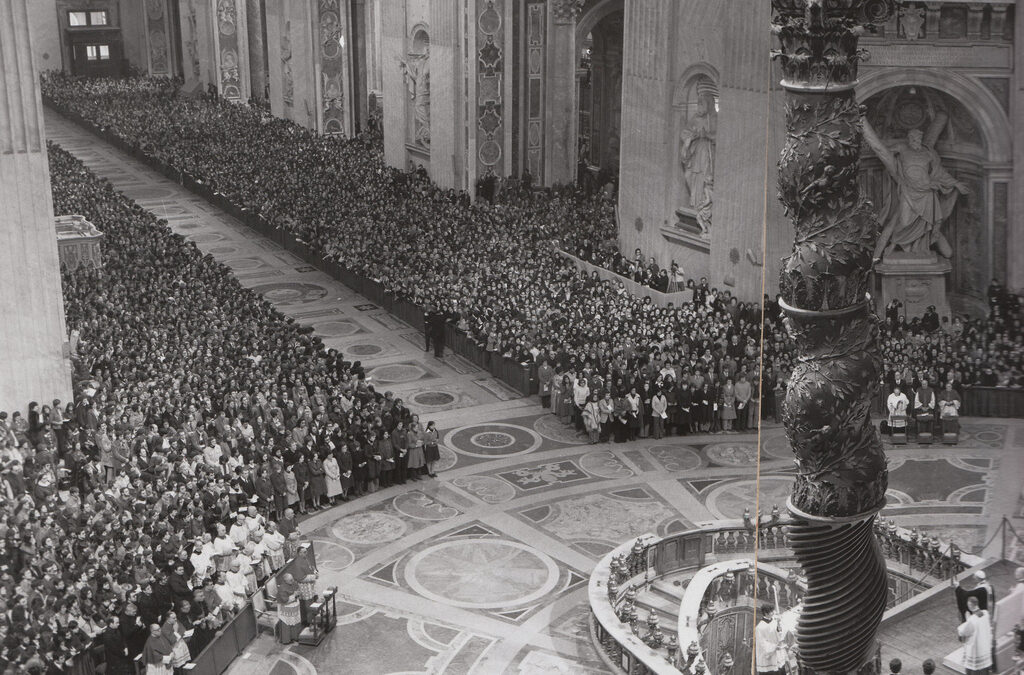
Nov 20, 2017 | Focolare Worldwide
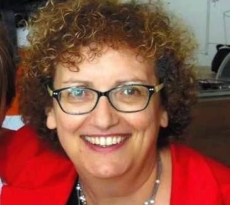
Patrizia Mazzola
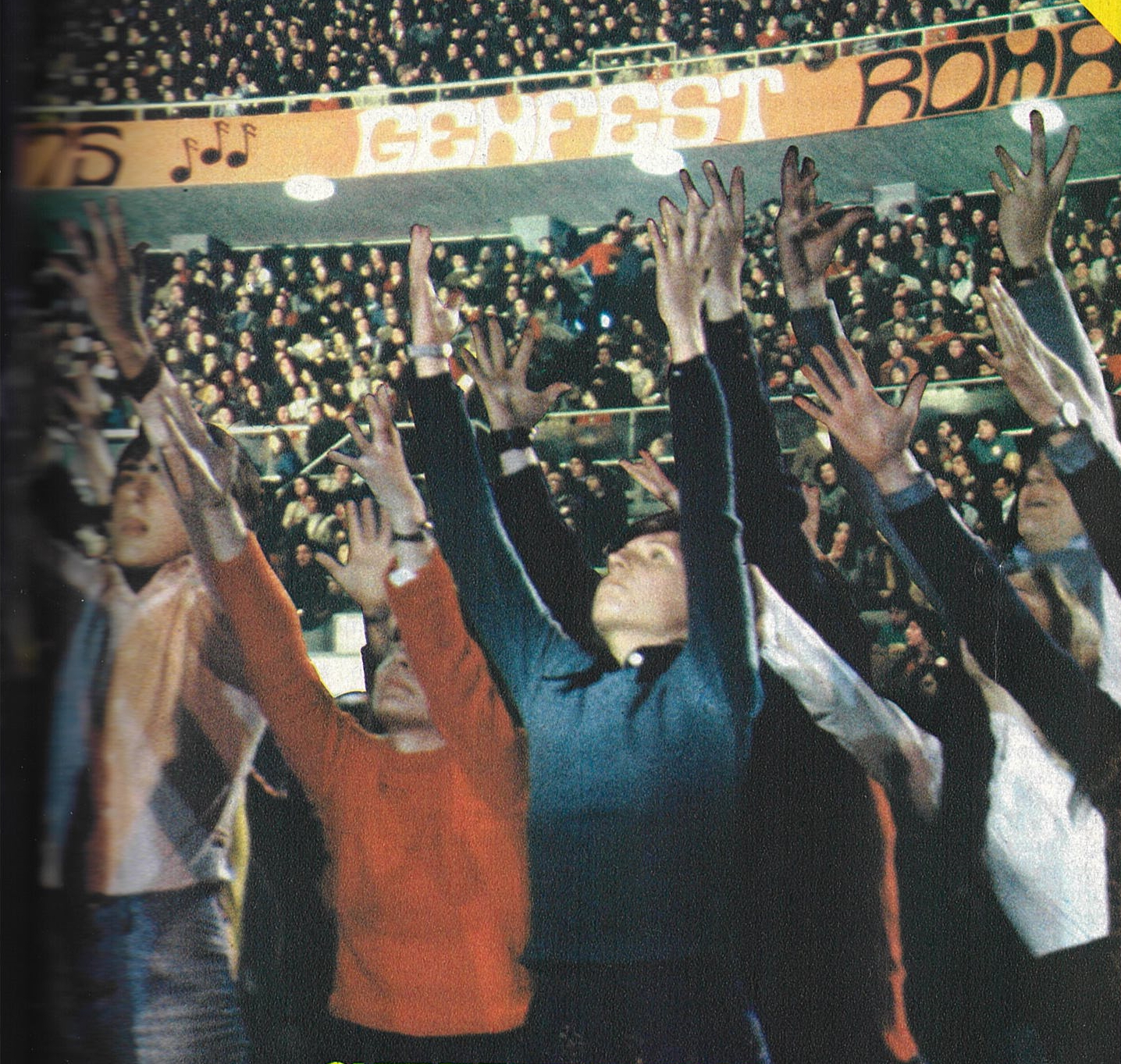 y background was in the Scouts, so I couldn’t believe that I could take part in this new experience. The invitation was extended to many other students at my school, and finally, together with my sisters, we made up our minds to attend, even though I remember that at the last minute I was tempted to stay back as I had to undertake an exam. The others encouraged me to go and so we left Palermo on a number of buses. With me I took my inseparable guitar, songbooks and tape-recorder, which at that time was rather cumbersome. During the trip, I was favourably impressed by some of the girls, the Gen, who were already living the spirituality of unity. I was struck by their attitude, the attention they were giving to everyone, the climate of harmony and serenity that they created among us, despite our exuberance, the moments of reflection that followed when we listened to the songs of Gen Rosso and Gen Verde, which I learnt to play straightaway with great enthusiasm
y background was in the Scouts, so I couldn’t believe that I could take part in this new experience. The invitation was extended to many other students at my school, and finally, together with my sisters, we made up our minds to attend, even though I remember that at the last minute I was tempted to stay back as I had to undertake an exam. The others encouraged me to go and so we left Palermo on a number of buses. With me I took my inseparable guitar, songbooks and tape-recorder, which at that time was rather cumbersome. During the trip, I was favourably impressed by some of the girls, the Gen, who were already living the spirituality of unity. I was struck by their attitude, the attention they were giving to everyone, the climate of harmony and serenity that they created among us, despite our exuberance, the moments of reflection that followed when we listened to the songs of Gen Rosso and Gen Verde, which I learnt to play straightaway with great enthusiasm 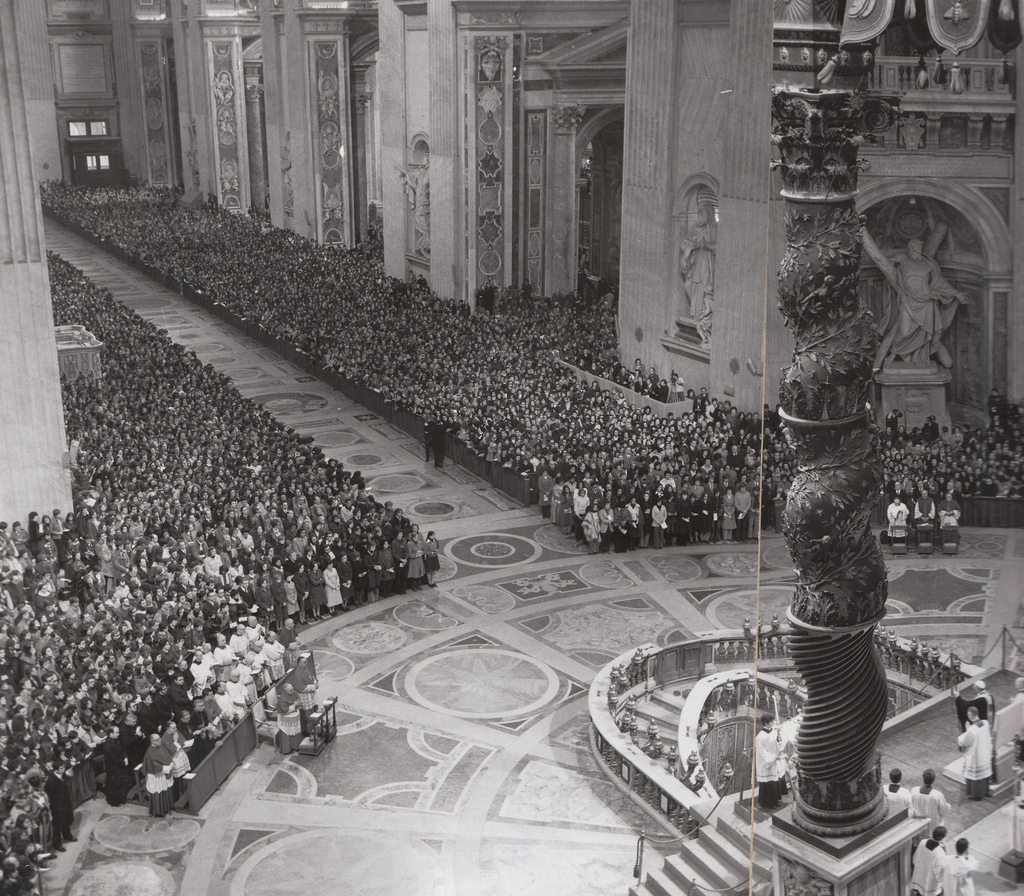 It was March 1st, 1975. The Sports Palace in Rome which had gathered 20,000 young people from five continents, made a powerful impact on me. I immediately experienced the power of the Gospel when it is lived. For example, it was the first time that I found myself sharing deeply with someone who was sitting next to me, thus having the experience of living as brothers and sisters. My dream, to see a world of peace, a united world, came true, right there. I was amazed and awestruck by the personal testimonies so much so that I almost had to pinch myself to believe that all this was happening. I listened attentively as they shared their stories from the stage: the two young people from South Africa where apartheid had not yet been defeated, the group from Belfast where there was conflict due to religious and political division. They were tangible signs that, if we really commit ourselves, we can achieve peace there where we live.
It was March 1st, 1975. The Sports Palace in Rome which had gathered 20,000 young people from five continents, made a powerful impact on me. I immediately experienced the power of the Gospel when it is lived. For example, it was the first time that I found myself sharing deeply with someone who was sitting next to me, thus having the experience of living as brothers and sisters. My dream, to see a world of peace, a united world, came true, right there. I was amazed and awestruck by the personal testimonies so much so that I almost had to pinch myself to believe that all this was happening. I listened attentively as they shared their stories from the stage: the two young people from South Africa where apartheid had not yet been defeated, the group from Belfast where there was conflict due to religious and political division. They were tangible signs that, if we really commit ourselves, we can achieve peace there where we live.
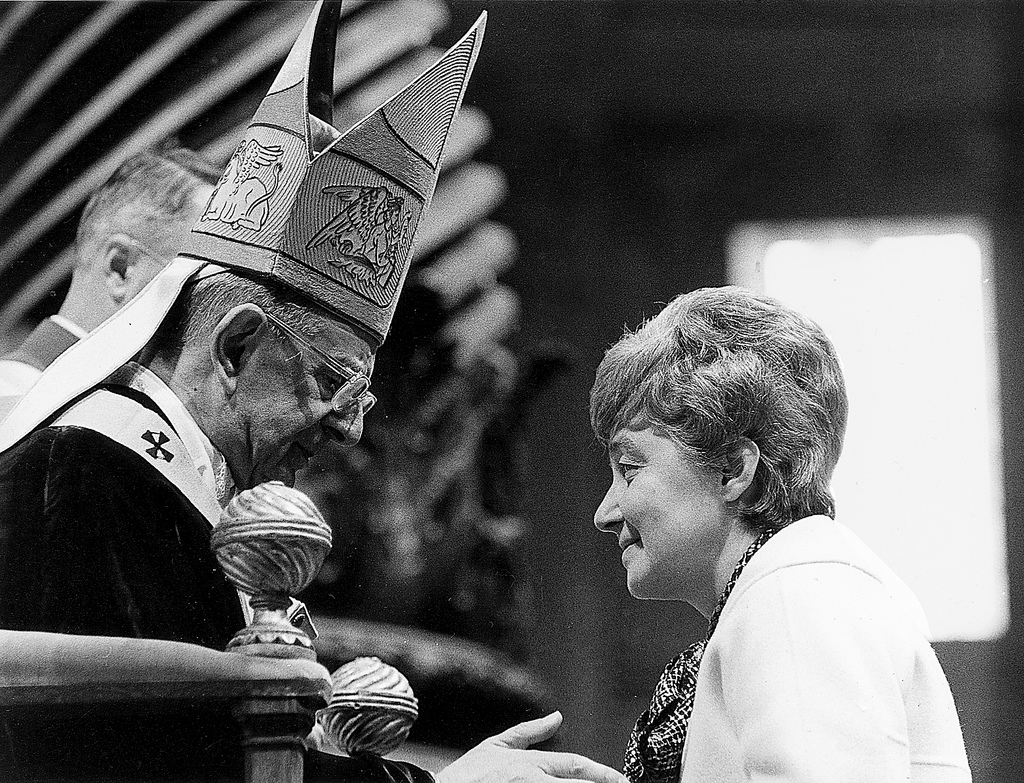 The next day, we all gathered at the Vatican, in St Peter’s Basilica, where Chiara Lubich presented us to the Holy Father. During the offertory, twelve young people, representing us, walked up with Chiara on the altar. I remember there was an endless applause. Consequently, during the Angelus (midday prayer) in St Peter’s Square, the Pope greeted us with words encouraging us to go on: “This morning, around the altar, we had twenty thousand faithful, the young Gen – New Generation – who came from all over the world. The beauty of it was something moving. We thank God and take courage. A new world is born: the Christian world of faith and charity.”
The next day, we all gathered at the Vatican, in St Peter’s Basilica, where Chiara Lubich presented us to the Holy Father. During the offertory, twelve young people, representing us, walked up with Chiara on the altar. I remember there was an endless applause. Consequently, during the Angelus (midday prayer) in St Peter’s Square, the Pope greeted us with words encouraging us to go on: “This morning, around the altar, we had twenty thousand faithful, the young Gen – New Generation – who came from all over the world. The beauty of it was something moving. We thank God and take courage. A new world is born: the Christian world of faith and charity.”
It was truly the beginning of a new world. For me it marked the beginning of a new life.
Patrizia Mazzola
![Rights of the Child World Day]()
Nov 18, 2017 | Non categorizzato
 On 20 November 1959 the UN General Assembly adopted the Declaration of the Rights of the Child and approved in 1989, the International Convention on the rights of infants and adolescents. Based on the harmonization of different cultural and juridical experiences, the Convention enunciated for the first time, and in a coherent way, the fundamental rights to be recognized and guaranteed for all the children of the world. The document stated the four key issues: the lack of denunciation, greater interest, life and survival and development, and lastly, listening in all the decision-making processes. The Convention also provides for a control mechanism on the work of the States that have to present a periodic report on its implementation in their territories. According to UNICEF, every year millions of children continue to be victims of violence, abuse, abandonment, exploitation, wars and discrimination. A lot has been done, but still more must be done to achieve a concrete application of these principles.
On 20 November 1959 the UN General Assembly adopted the Declaration of the Rights of the Child and approved in 1989, the International Convention on the rights of infants and adolescents. Based on the harmonization of different cultural and juridical experiences, the Convention enunciated for the first time, and in a coherent way, the fundamental rights to be recognized and guaranteed for all the children of the world. The document stated the four key issues: the lack of denunciation, greater interest, life and survival and development, and lastly, listening in all the decision-making processes. The Convention also provides for a control mechanism on the work of the States that have to present a periodic report on its implementation in their territories. According to UNICEF, every year millions of children continue to be victims of violence, abuse, abandonment, exploitation, wars and discrimination. A lot has been done, but still more must be done to achieve a concrete application of these principles.

Nov 18, 2017 | Non categorizzato
 There is a pram beside the supermarket cashier, and a newborn inside it. In the crowd, nobody heeds the others. All are taken up in waiting for their turn, making sure nobody skips the line and be able to come first and finish quickly. But before the child, many stop to smile, and say some kind words. Children have the exceptional power to break down the aloofness of our society and create a simple link with their presence. Children belong to their parents and their family, but at the same time to all of us. They are, so to say a “common asset.” In a certain way this is true for children in general, that is, for every child, as what the prophet announced regarding one child: “A child is born for us, we have been given a son” (Is 9,5). Children are gifts which we all receive. What do they give us? The answer is – the future? Obviously, if there were no children humanity would have no future. But our answer has a deeper sense. Instinctively we experience the child as a promise, like the dawn of that better future we all are hoping for. We do not only ask a child: What will your future be? But also: What future will you bring us? In fact, what will the future be, and what will happen or not happen depends on those who are children today. The future is already here, in the babies who are born. (pp 39-40) Becoming a human person means becoming a child. Since Adam and Eve there has been no exception to this. The journey that leads to adulthood traverses childhood. And this is precisely the path of God: the Son of God who became man, by becoming a child. We belong to him if we accept his friends, the children, and if we welcome him like children. Only those who become children will enter into the Kingdom. Become simple and pure, sharing sufferings and joys. Allow ourselves to be receivers of a gift and return the gesture. The child: virtue that saves us from resignation and calculations, and from egoism and senselessness. The child asks us to let him live, to have his own vital space. The Child in the manger is he who is inviting us to become men like him and receive a divine life from him. (p. 34) Klaus Hemmerle, from “Dio si è fatto bambino” (“God made himself man”) – Ed. Città Nuova Rome 1994.
There is a pram beside the supermarket cashier, and a newborn inside it. In the crowd, nobody heeds the others. All are taken up in waiting for their turn, making sure nobody skips the line and be able to come first and finish quickly. But before the child, many stop to smile, and say some kind words. Children have the exceptional power to break down the aloofness of our society and create a simple link with their presence. Children belong to their parents and their family, but at the same time to all of us. They are, so to say a “common asset.” In a certain way this is true for children in general, that is, for every child, as what the prophet announced regarding one child: “A child is born for us, we have been given a son” (Is 9,5). Children are gifts which we all receive. What do they give us? The answer is – the future? Obviously, if there were no children humanity would have no future. But our answer has a deeper sense. Instinctively we experience the child as a promise, like the dawn of that better future we all are hoping for. We do not only ask a child: What will your future be? But also: What future will you bring us? In fact, what will the future be, and what will happen or not happen depends on those who are children today. The future is already here, in the babies who are born. (pp 39-40) Becoming a human person means becoming a child. Since Adam and Eve there has been no exception to this. The journey that leads to adulthood traverses childhood. And this is precisely the path of God: the Son of God who became man, by becoming a child. We belong to him if we accept his friends, the children, and if we welcome him like children. Only those who become children will enter into the Kingdom. Become simple and pure, sharing sufferings and joys. Allow ourselves to be receivers of a gift and return the gesture. The child: virtue that saves us from resignation and calculations, and from egoism and senselessness. The child asks us to let him live, to have his own vital space. The Child in the manger is he who is inviting us to become men like him and receive a divine life from him. (p. 34) Klaus Hemmerle, from “Dio si è fatto bambino” (“God made himself man”) – Ed. Città Nuova Rome 1994.

Nov 17, 2017 | Non categorizzato
 Promo video su Facebook – Collegamento CH
Promo video su Facebook – Collegamento CH
Nov 17, 2017 | Non categorizzato
See program of seminar to be held at LUMSA University, Borgo Sant’Angelo,13, Rome on 28 November 2017 Official Website Seminar brochure
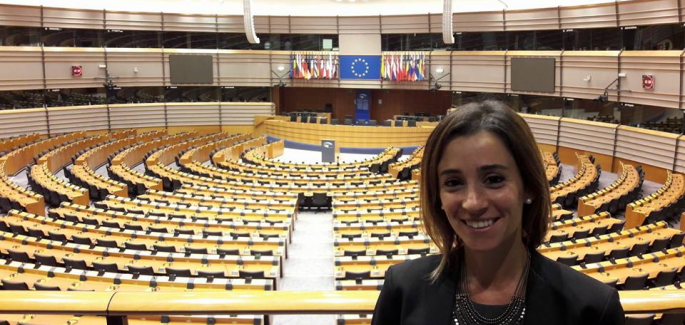
Nov 17, 2017 | Non categorizzato
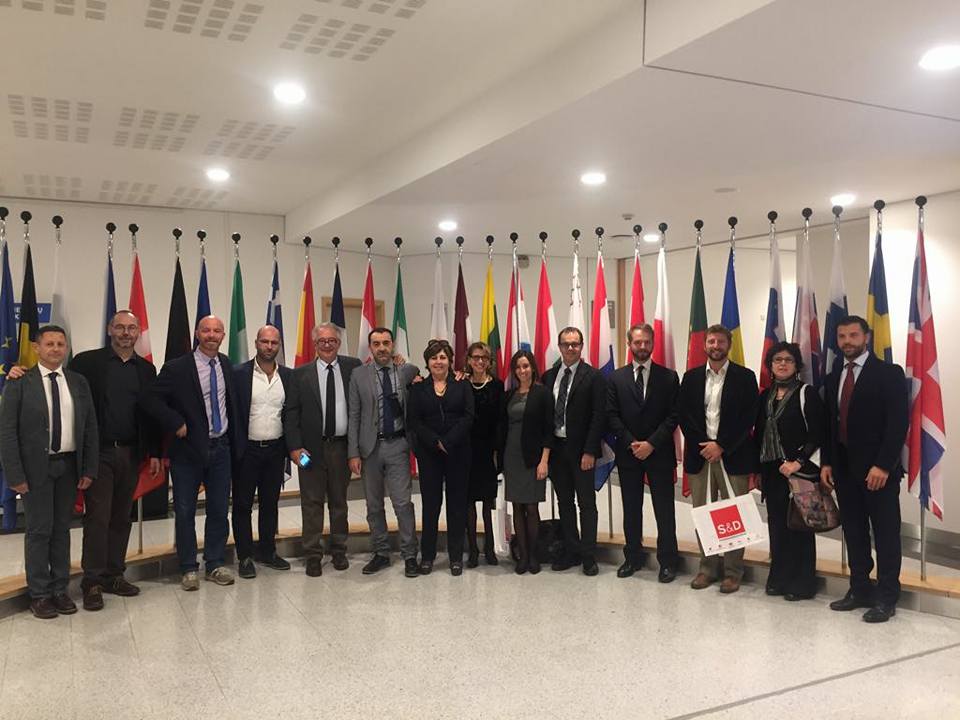 Halfway through two international days, namely the UN’s one dedicated to the eradication of poverty on October 17 and that of Pope Francis on November 19, aimed at global solidarity with the poor, the question which arose was insistent: Is it possible to reduce and totally eliminate inequalities? Economists, NGOs, associations, national and international institutions discussed and sought ways to reduce pockets of poverty and their consequences. A debate which was organized in Brussels in October by the European Intergroup Fighting against poverty, in defence of Human rights, and ATD Fourth World, hosted the contributions of several organizations that attempt alternative methods to help people in difficulty overcome their situation. Their method consists not so much in lowering subsidies, but in activating network paths. Among the contributions was that of Florencia Locascio from Argentina, a representative for the Economy of Communion project (EoC). “The Economy of Communion,” explains Locascio, “is a movement of people, entrepreneurs, workers, consumers, scholars and citizens committed to responding to reducing poverty, to fostering an economic and civic culture that puts at the centre the person and the value of relationships. The EoC conceives profit as a means of growth which is sustainable, inclusive and in solidarity with human beings and society as a whole. ”
Halfway through two international days, namely the UN’s one dedicated to the eradication of poverty on October 17 and that of Pope Francis on November 19, aimed at global solidarity with the poor, the question which arose was insistent: Is it possible to reduce and totally eliminate inequalities? Economists, NGOs, associations, national and international institutions discussed and sought ways to reduce pockets of poverty and their consequences. A debate which was organized in Brussels in October by the European Intergroup Fighting against poverty, in defence of Human rights, and ATD Fourth World, hosted the contributions of several organizations that attempt alternative methods to help people in difficulty overcome their situation. Their method consists not so much in lowering subsidies, but in activating network paths. Among the contributions was that of Florencia Locascio from Argentina, a representative for the Economy of Communion project (EoC). “The Economy of Communion,” explains Locascio, “is a movement of people, entrepreneurs, workers, consumers, scholars and citizens committed to responding to reducing poverty, to fostering an economic and civic culture that puts at the centre the person and the value of relationships. The EoC conceives profit as a means of growth which is sustainable, inclusive and in solidarity with human beings and society as a whole. ” 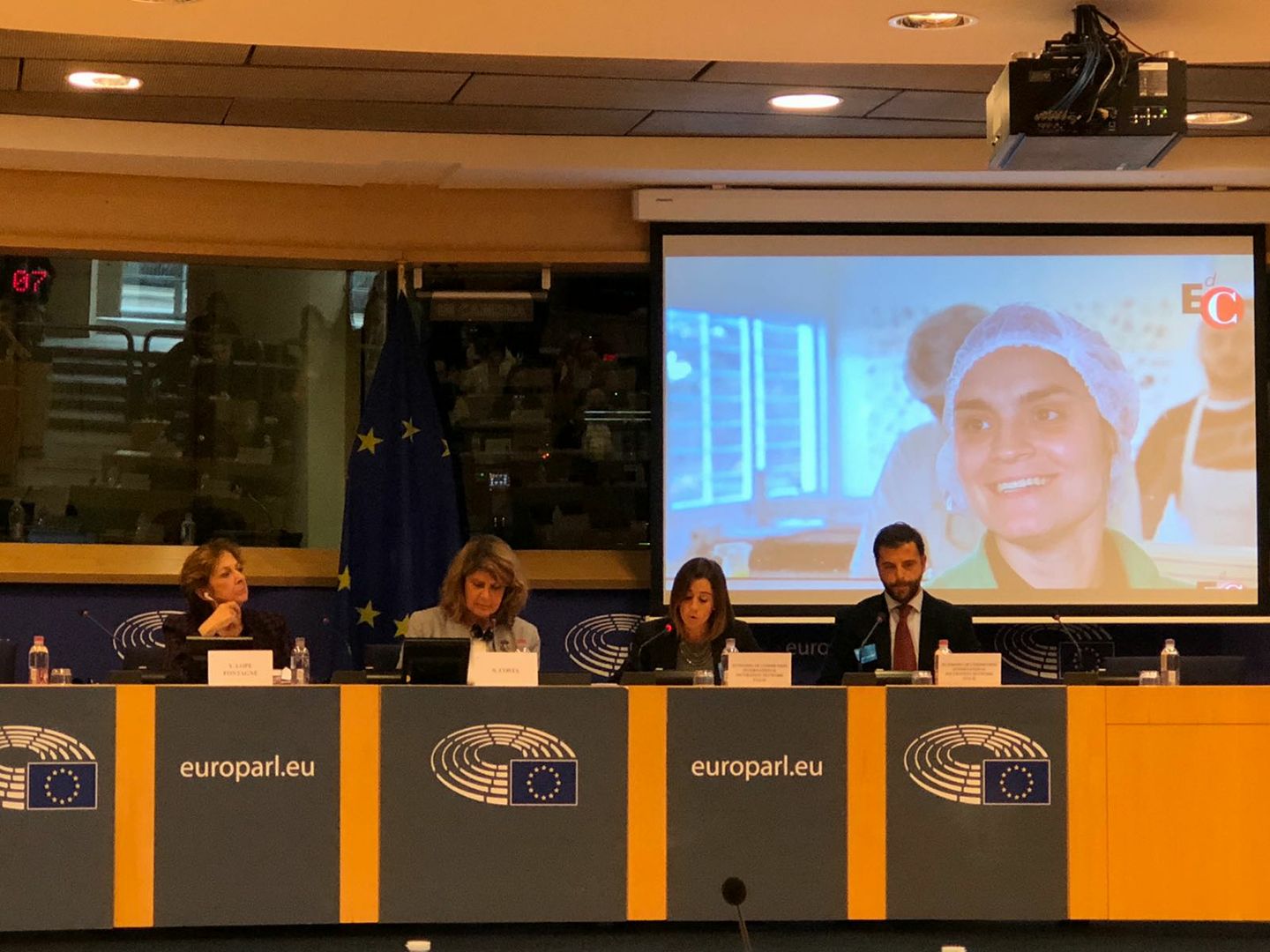 After 26 years since it started (it was 1991, during her visit to São Paulo in Brazil, when Chiara Lubich had an insight of a new economic model) the EoC promotes companies that adhere to the spirit of working with three goals as an objective: reducing poverty and exclusion, train new business men and women in the culture of communion and in developing companies, creating new jobs. Some examples, among many, are these: At Banko Kabayan bank in the Philippines, 85% of clients are micro-entrepreneurs, mostly women, who offer loans, savings, micro insurance, as well as business management courses to promote their business. The “LIA” startup project in the United States aims to reintegrate older persons into the work force by re-using old furniture. DIMACO is an Argentinean company that distributes building materials. Together with other local entrepreneurs and in coordination with public institutions, the group has managed to make the work of over a thousand small producers in the region sustainable. “We are convinced, through our experience,” says Locascio, “that we cannot allow poverty to exist without involving disadvantaged people living in our communities, and wherever possible at workplaces. It is not enough to distribute wealth differently. We need to involve the poor in the creation of wealth.”
After 26 years since it started (it was 1991, during her visit to São Paulo in Brazil, when Chiara Lubich had an insight of a new economic model) the EoC promotes companies that adhere to the spirit of working with three goals as an objective: reducing poverty and exclusion, train new business men and women in the culture of communion and in developing companies, creating new jobs. Some examples, among many, are these: At Banko Kabayan bank in the Philippines, 85% of clients are micro-entrepreneurs, mostly women, who offer loans, savings, micro insurance, as well as business management courses to promote their business. The “LIA” startup project in the United States aims to reintegrate older persons into the work force by re-using old furniture. DIMACO is an Argentinean company that distributes building materials. Together with other local entrepreneurs and in coordination with public institutions, the group has managed to make the work of over a thousand small producers in the region sustainable. “We are convinced, through our experience,” says Locascio, “that we cannot allow poverty to exist without involving disadvantaged people living in our communities, and wherever possible at workplaces. It is not enough to distribute wealth differently. We need to involve the poor in the creation of wealth.”  In order to monitor and disseminate the effects of the EoC in the fight against poverty and inequality, the OPLA observatory on poverty, an international research centre named after Leo Andringa, a Dutch economist who was a pioneer of the Economy of Communion, was born in 2017. OPLA’s research aims to investigate, in particular, the production of “relational goods” linked to EoC activities. “But since we want to deal with the reduction of poverty not only today, but also in the future,” continues the young Argentinean, “the most recent project of the Economy of Communion, called EoC-IIN (Economy of Communion International Incubating Network), contributes to the emergence of new companies with a positive social impact. These are just some inspirational examples that carry a seed of an inclusive economic proposition. We are aware that in order to eradicate poverty, it is necessary to change the rules of a system that generates ever more inequality. It is a challenge that we want, and must, take up with all the other components of society, starting with politicians.”
In order to monitor and disseminate the effects of the EoC in the fight against poverty and inequality, the OPLA observatory on poverty, an international research centre named after Leo Andringa, a Dutch economist who was a pioneer of the Economy of Communion, was born in 2017. OPLA’s research aims to investigate, in particular, the production of “relational goods” linked to EoC activities. “But since we want to deal with the reduction of poverty not only today, but also in the future,” continues the young Argentinean, “the most recent project of the Economy of Communion, called EoC-IIN (Economy of Communion International Incubating Network), contributes to the emergence of new companies with a positive social impact. These are just some inspirational examples that carry a seed of an inclusive economic proposition. We are aware that in order to eradicate poverty, it is necessary to change the rules of a system that generates ever more inequality. It is a challenge that we want, and must, take up with all the other components of society, starting with politicians.”
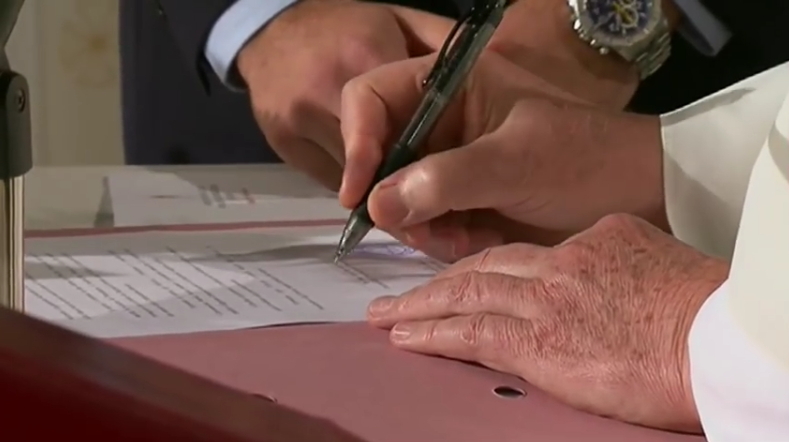
Nov 16, 2017 | Focolare Worldwide
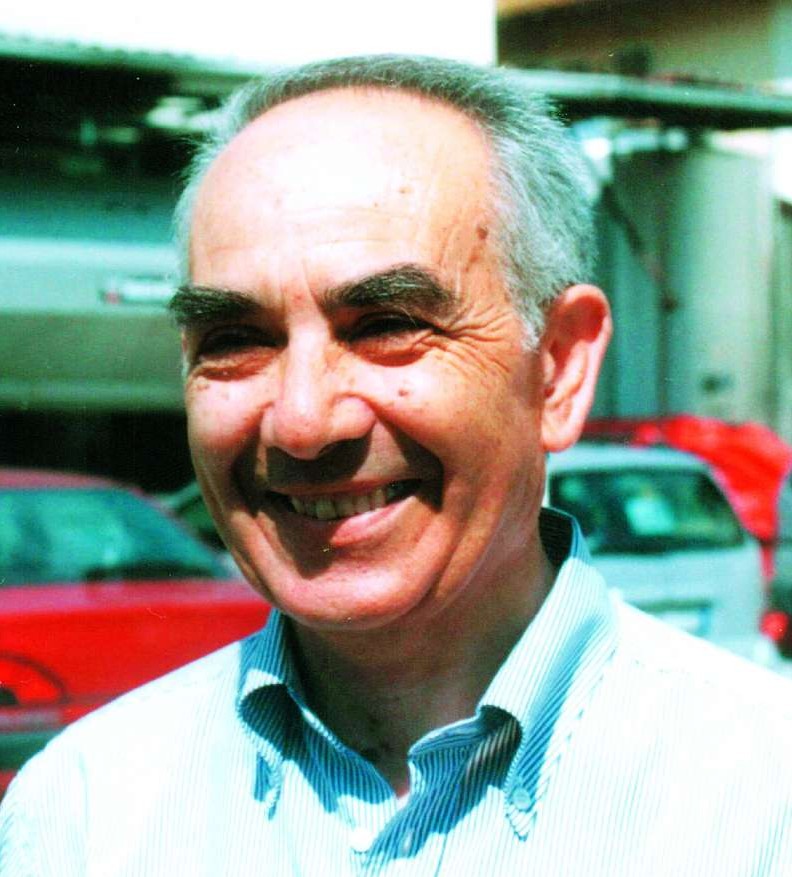 Domenico Mangano (1938-2001) answered God’s call “with readiness, loyalty, continuity, but above all, with an absolute freedom of conscience. He freely chose social commitment, which refined itself into a political commitment. When he met the Focolare Movement, he tried daily to improve his spiritual life by choosing to live “the holy journey” in unity with others. This experience rooted itself deeply in this active and resourceful citizen, committed and combative layman, fiery and pungent politician, true and faithful Christian, that was Domenico”. These words were said by the Hon.Tommaso Sorgi on the death of his “dear friend, a discreet and wise confidant, who was more than a brother”. For many years, Sorgi shared with him “the same yearning to unite heaven and earth and the same ardent passion to convey the provocative gospel message in a tough political situation. Above all, we lived together the birth of the Movement for Unity in Politics, that type of political experience which aims at building universal brotherhood and which was launched in parliament by Igino Giordani, a model for both of us”
Domenico Mangano (1938-2001) answered God’s call “with readiness, loyalty, continuity, but above all, with an absolute freedom of conscience. He freely chose social commitment, which refined itself into a political commitment. When he met the Focolare Movement, he tried daily to improve his spiritual life by choosing to live “the holy journey” in unity with others. This experience rooted itself deeply in this active and resourceful citizen, committed and combative layman, fiery and pungent politician, true and faithful Christian, that was Domenico”. These words were said by the Hon.Tommaso Sorgi on the death of his “dear friend, a discreet and wise confidant, who was more than a brother”. For many years, Sorgi shared with him “the same yearning to unite heaven and earth and the same ardent passion to convey the provocative gospel message in a tough political situation. Above all, we lived together the birth of the Movement for Unity in Politics, that type of political experience which aims at building universal brotherhood and which was launched in parliament by Igino Giordani, a model for both of us” 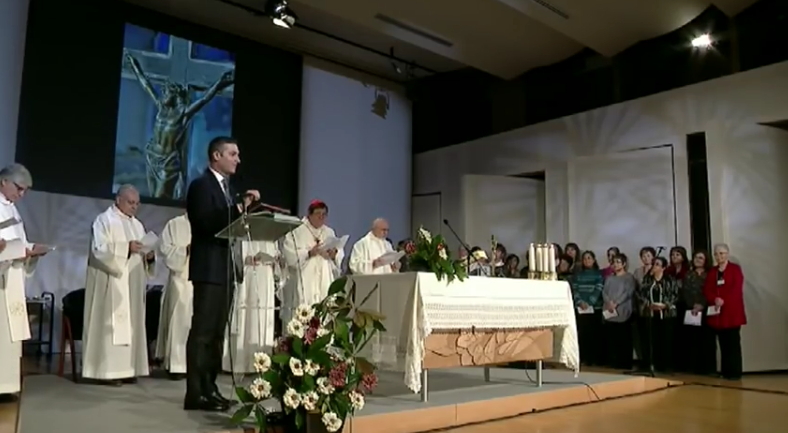 Domenico Mangano was born on February 22,1938 in Anzi, in the province of Potenza. In 1949 his family moved to Viterbo. In 1958, after finishing his high school studies, he managed to succeed in getting a job at the National Institute of Social Security in Pavia. He went to live there, and enrolled as a student-worker at the Faculty of Economics and Commerce. He met Maria Pia when he went back to Viterbo and they got married on August 24, 1966. They had three children: Paola (1968), Giuseppe (1970) and Maria Flora (1972). During these years, Domenico was fully committed to family life, work, university students, trade union, Catholic Action and studies. They were years in which he started his political activity as a public administrator in Viterbo. Domenico met the Focolare Movement in 1974 and together with Maria Pia adhered to its ideals. He was a Volunteer of God, a member of that branch of the Movement where lay people are radically committed to bring the light, that springs from Chiara Lubich’s charism, to all aspects of social life. He was determined “to walk in God‘s way” as indicated by Lubich, and he frequently wrote to her. Lubich remarked that he was a mystic.
Domenico Mangano was born on February 22,1938 in Anzi, in the province of Potenza. In 1949 his family moved to Viterbo. In 1958, after finishing his high school studies, he managed to succeed in getting a job at the National Institute of Social Security in Pavia. He went to live there, and enrolled as a student-worker at the Faculty of Economics and Commerce. He met Maria Pia when he went back to Viterbo and they got married on August 24, 1966. They had three children: Paola (1968), Giuseppe (1970) and Maria Flora (1972). During these years, Domenico was fully committed to family life, work, university students, trade union, Catholic Action and studies. They were years in which he started his political activity as a public administrator in Viterbo. Domenico met the Focolare Movement in 1974 and together with Maria Pia adhered to its ideals. He was a Volunteer of God, a member of that branch of the Movement where lay people are radically committed to bring the light, that springs from Chiara Lubich’s charism, to all aspects of social life. He was determined “to walk in God‘s way” as indicated by Lubich, and he frequently wrote to her. Lubich remarked that he was a mystic.  Domenico died at Viterbo on December 22, 2001. The year before when he was diagnosed with an incurable tumour, he knew it was time “to end the first long chapter of life by entrusting it to God’s merciful heart, and open another one that is completely new”. This was what he wrote to Chiara to share his situation. With the official Edict dated March 9, 2017, Mons. Marcello Semeraro, Bishop of Albano accepted the petition to allow the initialization of the Cause for the Beatification and Canonization of Domenico Mangano, presented by the postulator Waldery Hilgeman, and invited the ecclesial community to pronounce itself on the fame of holiness and signs of the new Servant of God. See also: Domenico Mangano
Domenico died at Viterbo on December 22, 2001. The year before when he was diagnosed with an incurable tumour, he knew it was time “to end the first long chapter of life by entrusting it to God’s merciful heart, and open another one that is completely new”. This was what he wrote to Chiara to share his situation. With the official Edict dated March 9, 2017, Mons. Marcello Semeraro, Bishop of Albano accepted the petition to allow the initialization of the Cause for the Beatification and Canonization of Domenico Mangano, presented by the postulator Waldery Hilgeman, and invited the ecclesial community to pronounce itself on the fame of holiness and signs of the new Servant of God. See also: Domenico Mangano
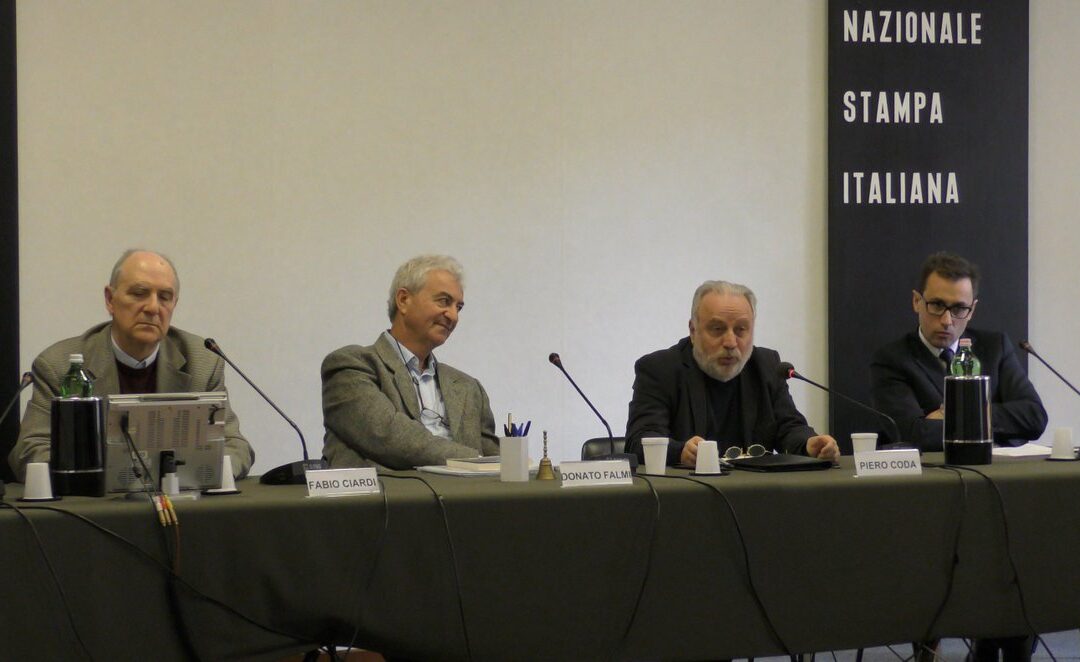
Nov 15, 2017 | Non categorizzato
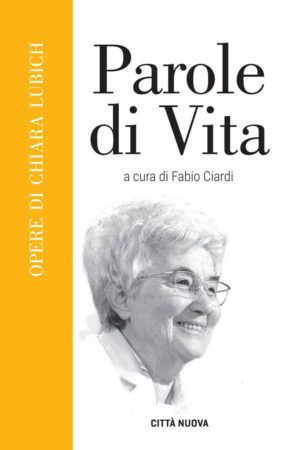 “I never wrote a book,” Chiara Lubich said in 1995 when she received the Author of the Year Award from the Catholic Publishers and Booksellers Union (UELCI), “even though many books bear my name.” There are many ways to write a book, and the way Chiara did it is truly a literary event. Her Italian biography lists 58 titles. Others appear only in non-Italian editions. Hundreds of articles and thousands of letters, along with documentary material have been collected by the Chiara Lubich Centre, which was established after her death to keep her memory alive. The writings scan her entire life, from 1920 in Trent where she was born, to Rocca di Papa where she died in 2008. Her first book, Meditations, has 27 Italian editions, 28 translations and a million printed copies. Meditations was the book that gave a start to Città Nuova Publishers in Rome, Italy (1959). The director of the Works of Chiara Lubich Series, Donato Falmi, commented: “In order to overcome the episodic manner in which Chiara’s writings were presented by Città nuova, a systematic publication project was begun in 2012,” which will not produce an opera omnia, but will classify the writings according to literary genres, which are organized in three blocks: the woman (the autobiographical element recovered not only in diaries and letters, but also in mystical writings); her spiritual path (found especially in texts of meditations, in the Words of Life, in texts where here spiritual, theological and cultural thought is developed); and the Work (the speeches in civil and ecclesiastical contexts, The Statutes and the Rules). Fourteen volumes are planned, each with its own large introduction that will provide a key to understanding the complexity of writings that the Focolare foundress left to us as her spiritual legacy.
“I never wrote a book,” Chiara Lubich said in 1995 when she received the Author of the Year Award from the Catholic Publishers and Booksellers Union (UELCI), “even though many books bear my name.” There are many ways to write a book, and the way Chiara did it is truly a literary event. Her Italian biography lists 58 titles. Others appear only in non-Italian editions. Hundreds of articles and thousands of letters, along with documentary material have been collected by the Chiara Lubich Centre, which was established after her death to keep her memory alive. The writings scan her entire life, from 1920 in Trent where she was born, to Rocca di Papa where she died in 2008. Her first book, Meditations, has 27 Italian editions, 28 translations and a million printed copies. Meditations was the book that gave a start to Città Nuova Publishers in Rome, Italy (1959). The director of the Works of Chiara Lubich Series, Donato Falmi, commented: “In order to overcome the episodic manner in which Chiara’s writings were presented by Città nuova, a systematic publication project was begun in 2012,” which will not produce an opera omnia, but will classify the writings according to literary genres, which are organized in three blocks: the woman (the autobiographical element recovered not only in diaries and letters, but also in mystical writings); her spiritual path (found especially in texts of meditations, in the Words of Life, in texts where here spiritual, theological and cultural thought is developed); and the Work (the speeches in civil and ecclesiastical contexts, The Statutes and the Rules). Fourteen volumes are planned, each with its own large introduction that will provide a key to understanding the complexity of writings that the Focolare foundress left to us as her spiritual legacy. 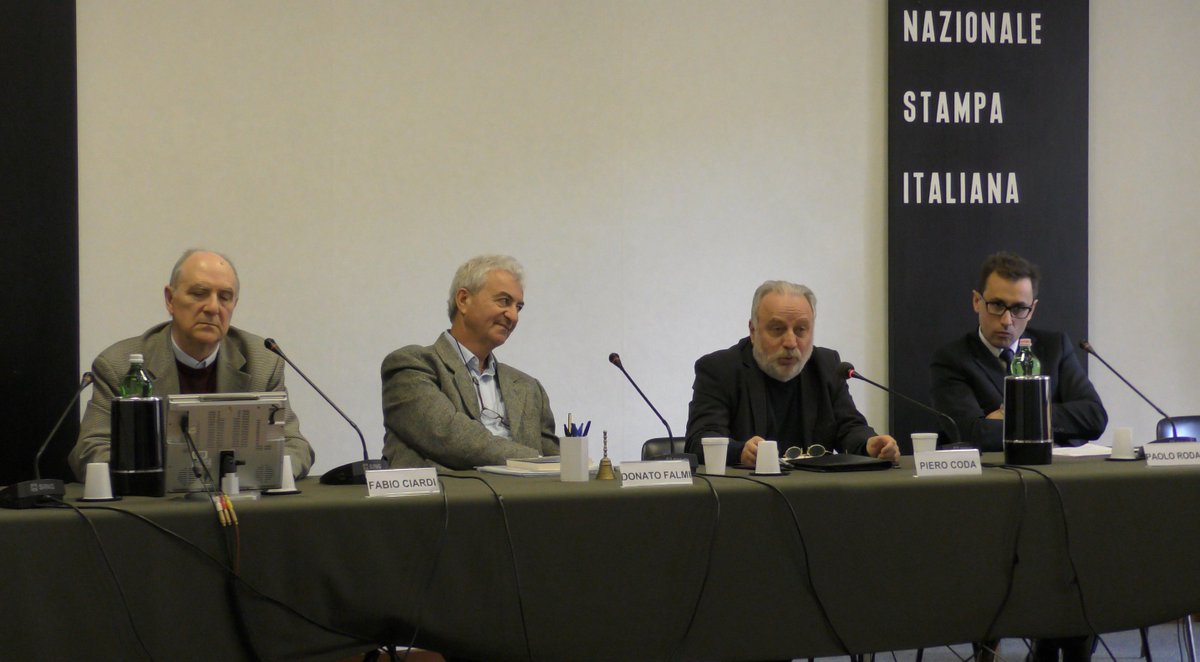 “It is quite a timely message,” commented Piero Coda, Rector of Sophia University Institute and member of the series’ scientific committee: There is no aspect of human life, or country where the leaven of this charism has not fermented. And yet,” he notes, “Chiara Lubich is still a widely unknown woman,” to discover and appreciate, even though her story and spirituality have anticipated many cultural paradigms that later materialized. “I was also in New York, with her, at the Malcolm X Mosque when she met with Imam W.D. Mohammed. There was a rabbi sitting beside me and it all seemed impossible to him. But she made it happen.” The literary production contained in the first volume is rather special. Compiled by Dr Fabio Ciardi, professor of Theology of Consecrated Life at the Claretianum Rome, her words are within the grasp of everyone, at times comments on sentences taken from the Gospels to be put into practice. These were first printed on handwritten leaflets, then mimeographed and, finally, printed in an ever growing number of copies. The Words of Life, with their simplicity and directness, have brought about a rediscovery of God’s Word in the twentieth century. In the experience of Chiara Lubich and her first companions, the Scriptures returned to being accessible to all, the humble and the simple, the educated and important, the children and the adults, the laity as well as to the consecrated. One can also discern prophetic signs in this of the universal call to holiness that was proclaimed many years later by the Second Vatican Council. The present edition, compiled by Fabio Ciardi, spans the period between 1943 and 2006. It is hoped that this monumental effort by Città Nuova and the Chiara Lubich Centre will be reflected in many other languages and cultural settings.
“It is quite a timely message,” commented Piero Coda, Rector of Sophia University Institute and member of the series’ scientific committee: There is no aspect of human life, or country where the leaven of this charism has not fermented. And yet,” he notes, “Chiara Lubich is still a widely unknown woman,” to discover and appreciate, even though her story and spirituality have anticipated many cultural paradigms that later materialized. “I was also in New York, with her, at the Malcolm X Mosque when she met with Imam W.D. Mohammed. There was a rabbi sitting beside me and it all seemed impossible to him. But she made it happen.” The literary production contained in the first volume is rather special. Compiled by Dr Fabio Ciardi, professor of Theology of Consecrated Life at the Claretianum Rome, her words are within the grasp of everyone, at times comments on sentences taken from the Gospels to be put into practice. These were first printed on handwritten leaflets, then mimeographed and, finally, printed in an ever growing number of copies. The Words of Life, with their simplicity and directness, have brought about a rediscovery of God’s Word in the twentieth century. In the experience of Chiara Lubich and her first companions, the Scriptures returned to being accessible to all, the humble and the simple, the educated and important, the children and the adults, the laity as well as to the consecrated. One can also discern prophetic signs in this of the universal call to holiness that was proclaimed many years later by the Second Vatican Council. The present edition, compiled by Fabio Ciardi, spans the period between 1943 and 2006. It is hoped that this monumental effort by Città Nuova and the Chiara Lubich Centre will be reflected in many other languages and cultural settings.
See video on Rome Reports (Vatican news agency) https://youtu.be/8RWX3ugmnh8
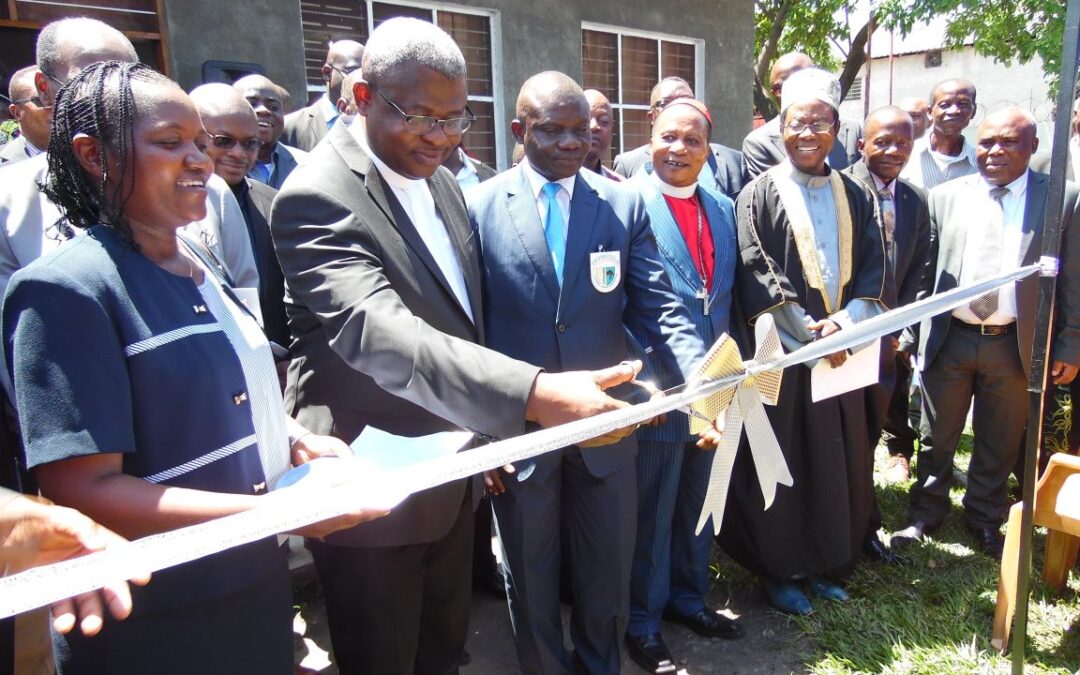
Nov 14, 2017 | Focolare Worldwide
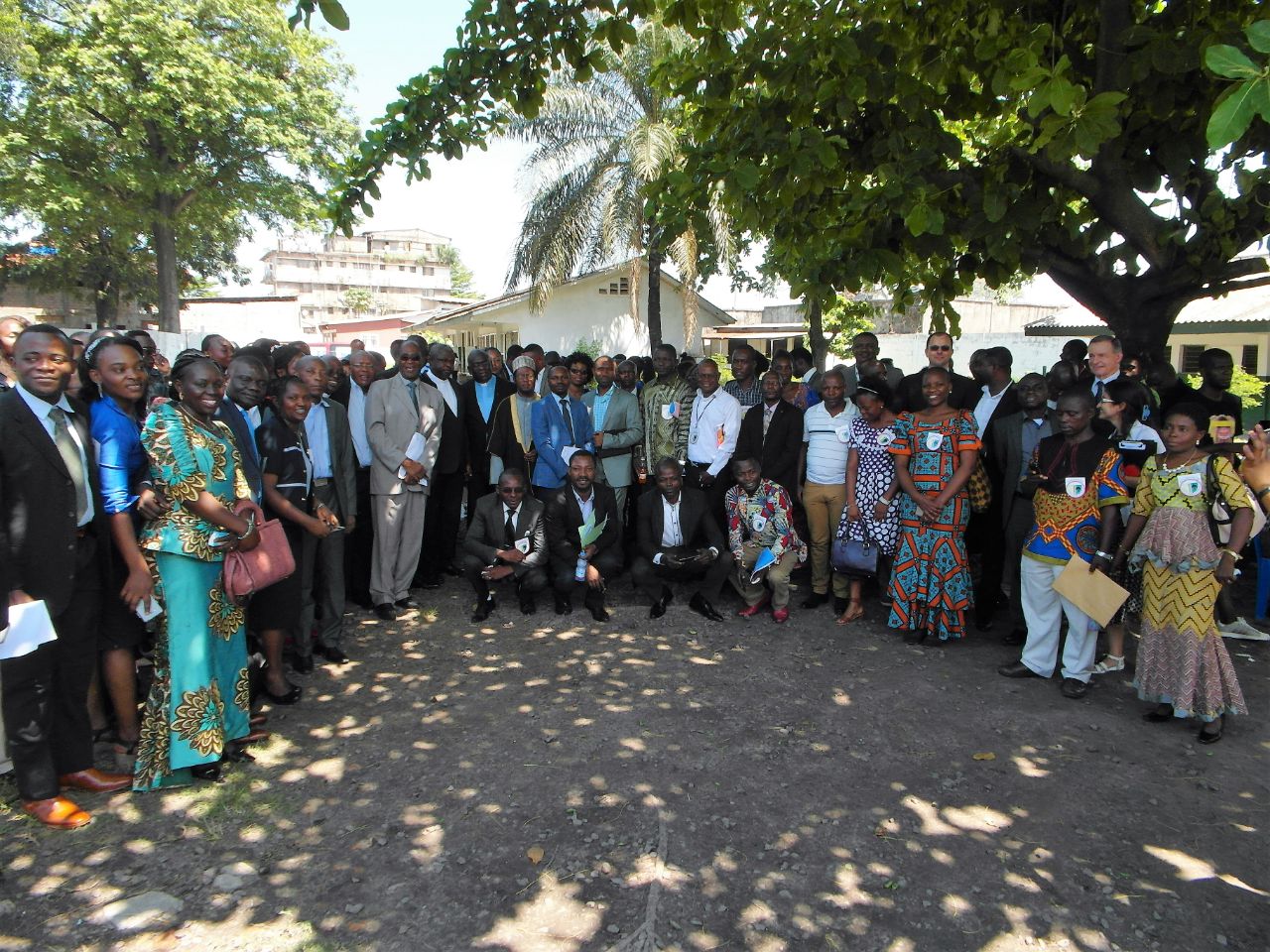 The political and social context is very dangerous and the per capita income is among the lowest in the world as pressure from international powers is being placed on the enormous natural resources of the region. But there is also the echo of the great African leaders from the twentieth century, from Nkruah to Senghor, from Lumumba to Nyerere that still resonates like a warning to leave the past behind and set great goals that “always seem impossible until done” (Mandela). It was in that context that on November 4th of last year the Ecoforleaders School of Higher Training in Communion Leadership was inaugurated in Kinshasa, Democratic Republic of the Congo in the presence of several political, diplomatic, academic ((among whom the Rectors of the Catholic University and the University of Mapon, and the two Emeritus Rectors of the Kasangani University and the National Pedagogy), Christian and Muslim religious leaders in an attempt to lift up a hope for openness in that African country. It all began with a group of African students who wondered how they could offer themselves for the building of a new Africa. Now they are working with the support of Sophia University Institute and the Focolare’s International Centre of the Movement for Unity in Politics.
The political and social context is very dangerous and the per capita income is among the lowest in the world as pressure from international powers is being placed on the enormous natural resources of the region. But there is also the echo of the great African leaders from the twentieth century, from Nkruah to Senghor, from Lumumba to Nyerere that still resonates like a warning to leave the past behind and set great goals that “always seem impossible until done” (Mandela). It was in that context that on November 4th of last year the Ecoforleaders School of Higher Training in Communion Leadership was inaugurated in Kinshasa, Democratic Republic of the Congo in the presence of several political, diplomatic, academic ((among whom the Rectors of the Catholic University and the University of Mapon, and the two Emeritus Rectors of the Kasangani University and the National Pedagogy), Christian and Muslim religious leaders in an attempt to lift up a hope for openness in that African country. It all began with a group of African students who wondered how they could offer themselves for the building of a new Africa. Now they are working with the support of Sophia University Institute and the Focolare’s International Centre of the Movement for Unity in Politics. 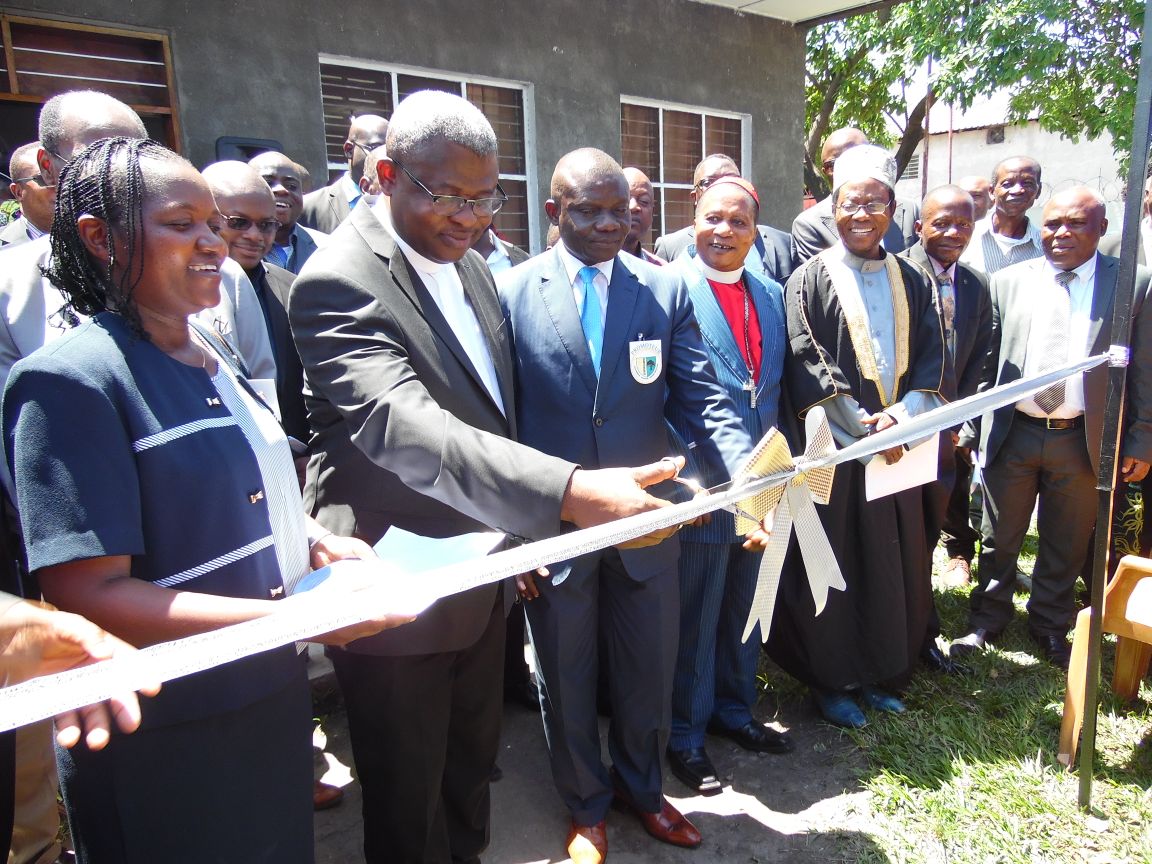 The Secretary of the Bishops Conference of the Democratic Republic of the Congo was invited to cut the ribbon, a man know for having conducted the dialogue between politicians of the majority and opposition leaders during the election controversy that linked the presidential election date to the next census. The Secretary remains a point of encounter between the parties until this day. Five students will begin courses given by a faculty that includes three university rectors and several tutors. This is not an isolated initiative, because the School is inserted into a broader project already presented at UNESCO, a project of formation in a leadership style inspired by universal brotherhood, which include the training of tutors and professors in Nairobi next January. The project is of interest to the whole East of Africa and will last for three years. Afterwards, it will be expanded to other regions of the continent. See also: News Repubblica Democratica del Congo
The Secretary of the Bishops Conference of the Democratic Republic of the Congo was invited to cut the ribbon, a man know for having conducted the dialogue between politicians of the majority and opposition leaders during the election controversy that linked the presidential election date to the next census. The Secretary remains a point of encounter between the parties until this day. Five students will begin courses given by a faculty that includes three university rectors and several tutors. This is not an isolated initiative, because the School is inserted into a broader project already presented at UNESCO, a project of formation in a leadership style inspired by universal brotherhood, which include the training of tutors and professors in Nairobi next January. The project is of interest to the whole East of Africa and will last for three years. Afterwards, it will be expanded to other regions of the continent. See also: News Repubblica Democratica del Congo

Nov 13, 2017 | Non categorizzato
 Yesterday, November 12,an earthquake with a magnitude of 7.3 caused hundreds of casualties in the Iraq-Iran border. 11 people died and thousands are wounded in Iraq, while in Iran the earthquake killed around 348 people and left 6,603 wounded. The devastated areas show entire buildings which had crumbled by the powerful tremor. The epicenter of the earthquake was located at a distance of 31 kilometres from the city of Halabja, 240km North-East of Baghdad, and about 15km from the Iranian border, but the shock waves have been felt by millions of people in Central Asia. Iraqi authorities have ordered urgent evacuation in the area surrounding the Darbandiyan hydroelectric power station. It is feared that many people will be buried under the rubble. Iran’s authorities also sent the country’s armed forces to give emergency help. According to the Mehr News agency, the Iraqi prime minister thanked Iran for its collaboration with Iraq. Pope Francis “expresses his sorrow towards all those who weep for the loss of their loved ones” and “offers his prayers for the dead”. The Pope also “invokes divine blessings of consolation and strength” for the wounded and for those who work in the search and rescue.
Yesterday, November 12,an earthquake with a magnitude of 7.3 caused hundreds of casualties in the Iraq-Iran border. 11 people died and thousands are wounded in Iraq, while in Iran the earthquake killed around 348 people and left 6,603 wounded. The devastated areas show entire buildings which had crumbled by the powerful tremor. The epicenter of the earthquake was located at a distance of 31 kilometres from the city of Halabja, 240km North-East of Baghdad, and about 15km from the Iranian border, but the shock waves have been felt by millions of people in Central Asia. Iraqi authorities have ordered urgent evacuation in the area surrounding the Darbandiyan hydroelectric power station. It is feared that many people will be buried under the rubble. Iran’s authorities also sent the country’s armed forces to give emergency help. According to the Mehr News agency, the Iraqi prime minister thanked Iran for its collaboration with Iraq. Pope Francis “expresses his sorrow towards all those who weep for the loss of their loved ones” and “offers his prayers for the dead”. The Pope also “invokes divine blessings of consolation and strength” for the wounded and for those who work in the search and rescue.
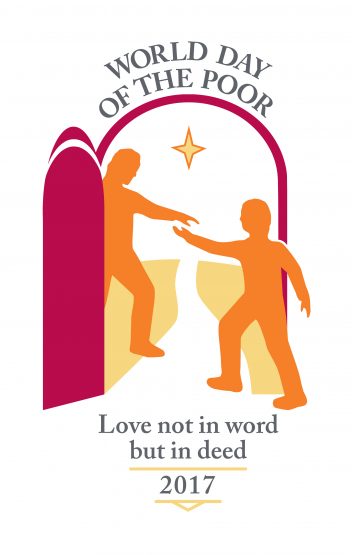
Nov 13, 2017 | Non categorizzato
 November 19 marks the first World Day of the Poor, which was announced by Pope Francis in order to focus attention, in a respectful and attentive way, on all those who are socially marginalized, excluded or discarded. It is also aimed for us all to choose a simpler lifestyle in response to our disposable and wasteful culture. “As long as Lazarus is at the door of our home,” the Pope said, “there can be no justice or social peace.” It is an invitation to work hard, especially during the week before the event, to create opportunities to meet, build friendship and solidarity, and offer tangible help. People are also being asked to invite the poor to participate in the Sunday Eucharist and later open their homes to them as privileged guests. The logo for the World Day of the Poor reflects its meaning, with two hands that extend toward each other, each offering something. They are two arms that express solidarity and invite the poor to come in and not stay at the door.
November 19 marks the first World Day of the Poor, which was announced by Pope Francis in order to focus attention, in a respectful and attentive way, on all those who are socially marginalized, excluded or discarded. It is also aimed for us all to choose a simpler lifestyle in response to our disposable and wasteful culture. “As long as Lazarus is at the door of our home,” the Pope said, “there can be no justice or social peace.” It is an invitation to work hard, especially during the week before the event, to create opportunities to meet, build friendship and solidarity, and offer tangible help. People are also being asked to invite the poor to participate in the Sunday Eucharist and later open their homes to them as privileged guests. The logo for the World Day of the Poor reflects its meaning, with two hands that extend toward each other, each offering something. They are two arms that express solidarity and invite the poor to come in and not stay at the door.
Nov 13, 2017 | Focolare Worldwide
Nov 12, 2017 | Non categorizzato
On 9 November, 2017, at the Vienna Cathedral – dedicated to St Stephen – hundreds of people gathered to pray for peace together with Cardinal Christoph Schönborn with an ecumenical group of ecclesiastical authorities. Members of the ecumenical network Together for Europe at the heart of the Austrian capital city, at the vigil of their annual Congress. They came from countries such as Portugal, Russia, England, and Greece. Their aim: unity and reconciliation among various Christian denominations and cultures, as well as solidarity and integration within Europe. See press release
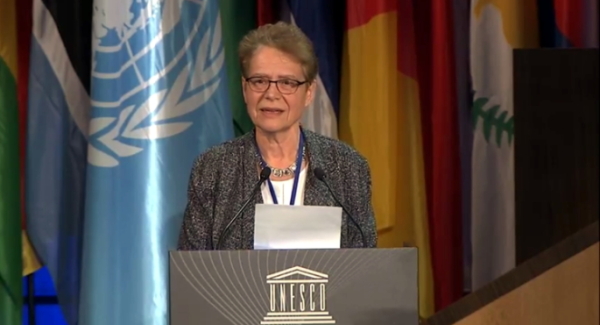
Nov 11, 2017 | Non categorizzato
 Within the framework of the 39th UNESCO General Conference, which at the end of two years reunited the Organisation’s 195 members last 4 November in Paris, Dr. Chantal Grevin, representative of New Humanity, presented some good practices against violent extremism. In her speech, Dr. Grevin evidenced the commitment of the Youth for a United World (juvenile section of New Humanity) and in particular the “United World Week” event during which the youths of New Humanity meet and exhibit the various actions aimed at promoting universal brotherhood. For some years now, such actions have been gathered in a specific dossier, already presented before various national UNESCO commissions. At the end, the New Humanity director acted as spokesman for the numerous International NGOs, the International Catholic Office for Infancy and the International Catholic Office for education, that have asked the UN to recognise the “United World Week” and other similar initiatives that aim to promote Art. 1 of the Universal Declaration of Human Rights as a common legacy for the building of a global citizenship. Read the entire article https://youtu.be/eWW_b4UEJDU
Within the framework of the 39th UNESCO General Conference, which at the end of two years reunited the Organisation’s 195 members last 4 November in Paris, Dr. Chantal Grevin, representative of New Humanity, presented some good practices against violent extremism. In her speech, Dr. Grevin evidenced the commitment of the Youth for a United World (juvenile section of New Humanity) and in particular the “United World Week” event during which the youths of New Humanity meet and exhibit the various actions aimed at promoting universal brotherhood. For some years now, such actions have been gathered in a specific dossier, already presented before various national UNESCO commissions. At the end, the New Humanity director acted as spokesman for the numerous International NGOs, the International Catholic Office for Infancy and the International Catholic Office for education, that have asked the UN to recognise the “United World Week” and other similar initiatives that aim to promote Art. 1 of the Universal Declaration of Human Rights as a common legacy for the building of a global citizenship. Read the entire article https://youtu.be/eWW_b4UEJDU
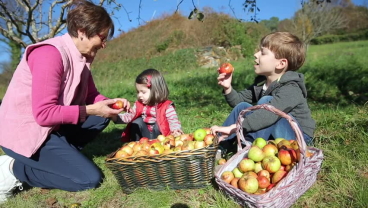
Nov 11, 2017 | Non categorizzato
 “The mystery of Providence that arrives in concrete terms in Christian life has always been unfathomable, because it has to do with the way God makes himself known to us that was revealed by Jesus: God’s Fatherhood. All of us have worries about material goods: fathers and mothers need to stretch their budget until the end of the month; directors of civil or religious organisations struggle to keep expenses within budget. Every day, turmoil and change occurs among peoples and nations seeking to find new economic alignments. Generally speaking, in terms of economics, the tough laws of competition are uppermost in people’s minds. We often hear that economics is like physics or mathematics. It runs in cycles and foreseeable processes that are necessary and determined. Some things can be forecast and there are inevitable disruptions and crises. Little can be changed, so the textbooks say. However, in one book we can instead find the true law governing economic life on earth, the law that Jesus proclaimed: “Strive first for the kingdom of God and his righteousness, and all these things will be given to you as well. (Mt 6:33) “There is no one who has left house or brothers or sisters or mother or father or children or fields, for my sake and for the sake of the good news, who will not receive a hundredfold now in this age” (Mk 10:29-30) In this law, we discover the mystery that occurs when the divine and human are joined. Economic laws certainly have value, but if we do not take into account the fact that Divine Providence exists, which also regulates economic factors, we will never understand why some great things happen. Heaven exists, as well as earth and Heaven has promised to intervene and help the little people on earth, if they look to Heaven. This is not a fairy-tale: it is the daily experience had by many Christian parents; it is the experience had by the Church and by the founders of Religious Orders and many apostles of practical charity. God intervenes in human affairs every time human beings want God to intervene, by adapting their lives to God’s life. All Christians can have this experience.” Pasquale Foresi – Parole di Vita [Words of Life] – Città Nuova, Roma, 1963 – pp.91-92
“The mystery of Providence that arrives in concrete terms in Christian life has always been unfathomable, because it has to do with the way God makes himself known to us that was revealed by Jesus: God’s Fatherhood. All of us have worries about material goods: fathers and mothers need to stretch their budget until the end of the month; directors of civil or religious organisations struggle to keep expenses within budget. Every day, turmoil and change occurs among peoples and nations seeking to find new economic alignments. Generally speaking, in terms of economics, the tough laws of competition are uppermost in people’s minds. We often hear that economics is like physics or mathematics. It runs in cycles and foreseeable processes that are necessary and determined. Some things can be forecast and there are inevitable disruptions and crises. Little can be changed, so the textbooks say. However, in one book we can instead find the true law governing economic life on earth, the law that Jesus proclaimed: “Strive first for the kingdom of God and his righteousness, and all these things will be given to you as well. (Mt 6:33) “There is no one who has left house or brothers or sisters or mother or father or children or fields, for my sake and for the sake of the good news, who will not receive a hundredfold now in this age” (Mk 10:29-30) In this law, we discover the mystery that occurs when the divine and human are joined. Economic laws certainly have value, but if we do not take into account the fact that Divine Providence exists, which also regulates economic factors, we will never understand why some great things happen. Heaven exists, as well as earth and Heaven has promised to intervene and help the little people on earth, if they look to Heaven. This is not a fairy-tale: it is the daily experience had by many Christian parents; it is the experience had by the Church and by the founders of Religious Orders and many apostles of practical charity. God intervenes in human affairs every time human beings want God to intervene, by adapting their lives to God’s life. All Christians can have this experience.” Pasquale Foresi – Parole di Vita [Words of Life] – Città Nuova, Roma, 1963 – pp.91-92
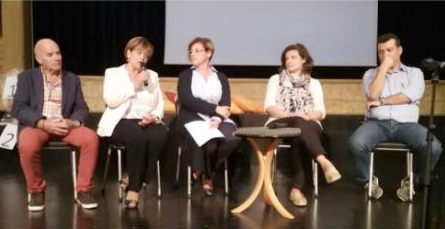
Nov 10, 2017 | Non categorizzato
 At the end of October, the Focolare Movement held a presentation day for the spirituality of unity and initiatives of the community in Greece, with testimonies of families, youths and a priest of the diocese of Athens. “The testimonials make our faith credible,” commented the Archbishop of Athens, Bishop Sebastianos Rossolatos who attended the event. “The Holy Spirit, through the centuries, has sent the charisms to renew the Church. Among these is also that of the Focolare.” An article was published in the Catholic Church’s national daily bulletin, and signed by the daily paper’s photographer, who attended a Focolare event for the first time: “It was a day for social issues concerning the future of our lives and the application of Christianity’s Golden Rule. For all, it was the start of a better lifestyle.”
At the end of October, the Focolare Movement held a presentation day for the spirituality of unity and initiatives of the community in Greece, with testimonies of families, youths and a priest of the diocese of Athens. “The testimonials make our faith credible,” commented the Archbishop of Athens, Bishop Sebastianos Rossolatos who attended the event. “The Holy Spirit, through the centuries, has sent the charisms to renew the Church. Among these is also that of the Focolare.” An article was published in the Catholic Church’s national daily bulletin, and signed by the daily paper’s photographer, who attended a Focolare event for the first time: “It was a day for social issues concerning the future of our lives and the application of Christianity’s Golden Rule. For all, it was the start of a better lifestyle.”
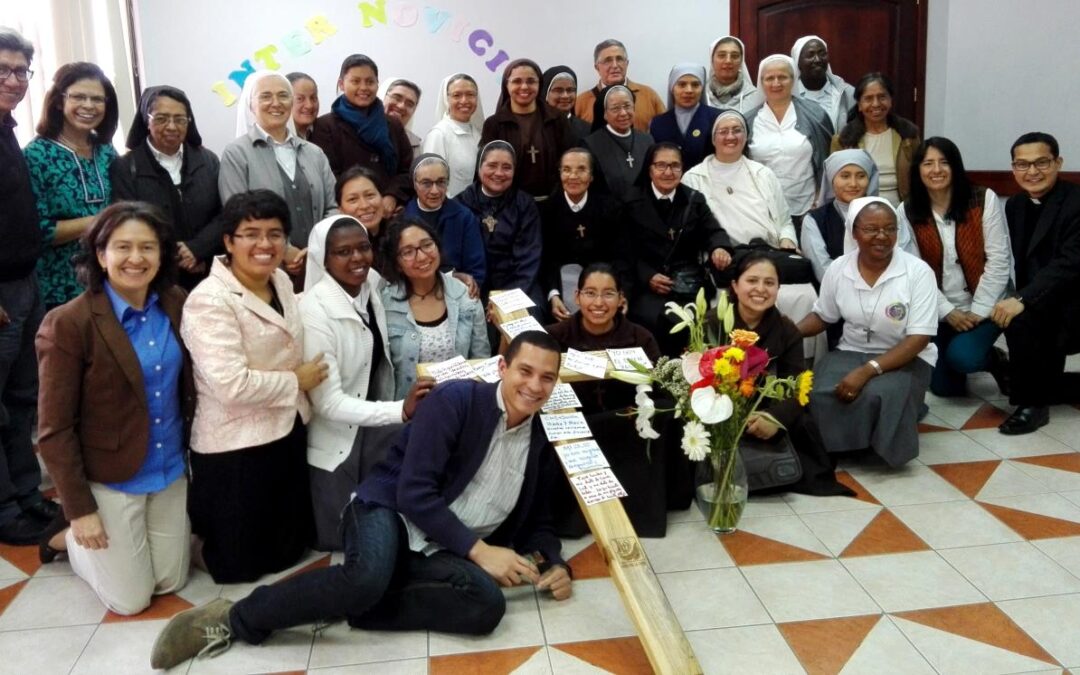
Nov 10, 2017 | Focolare Worldwide
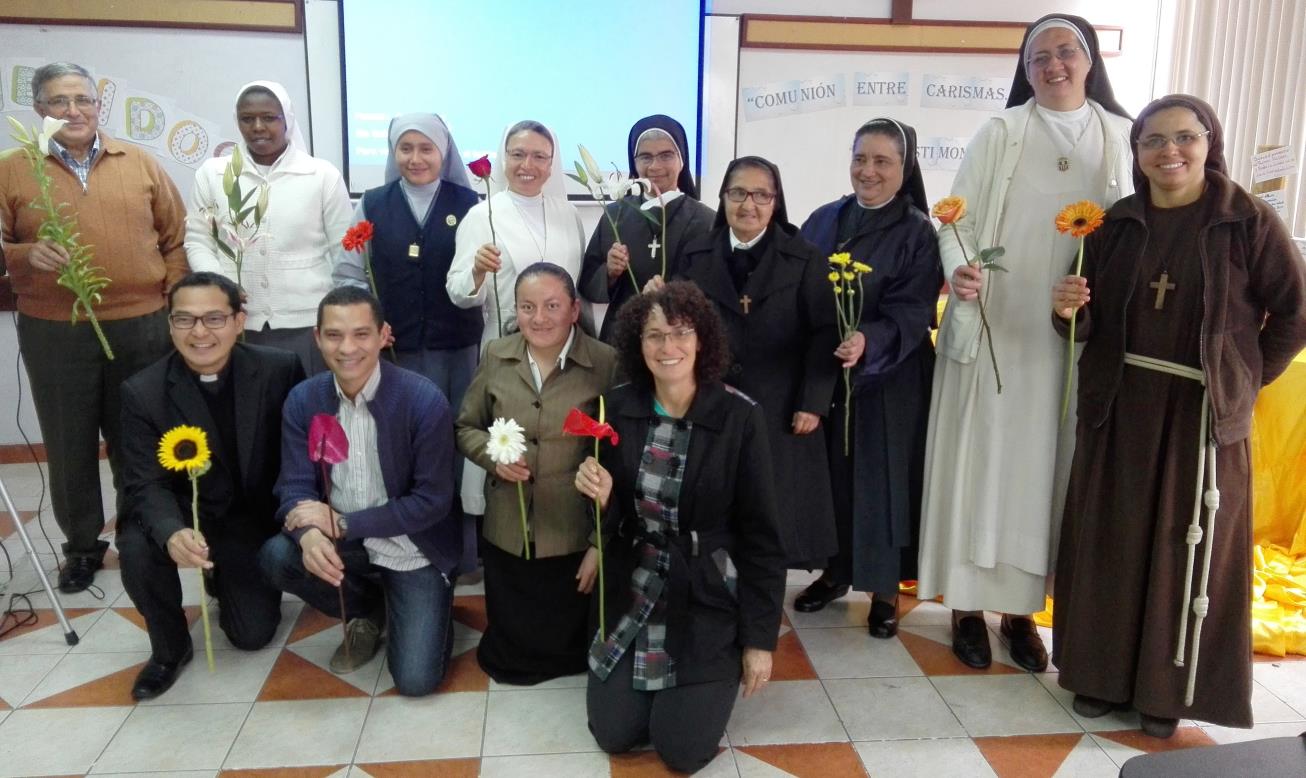 A magnificent garden of many flowers and colours – that is how the many farms appear in Ecuador that export their prized floral varieties worldwide. It is an image that Sr. Vanessa, a Franciscan youth missionary, used to introduce the spiritual retreat held 22 October in Quito, at the headquarters of the Ecuadorian Religious Conference. Sr. Vanessa had just recently finished a year at Casa Emmaus in Loppiano, the spirituality center for religious sisters who hope to go deeper into the Focolare charism. There in Ecuador she found no better example of the Church and its variety of charisms, with 27 consecrated sisters and one brother from 11 different congregations who had accepted the invitation. Utilizing a group dynamic, the young nun asked each participant to hang the word that each of the founders’ charisms was based on next to the crucifix there in the hall. This showed how the idea of each charism, brought about by the Spirit, is a new Christ unfolding throughout the centuries. Staying with her floral metaphor, each participant was given a flower that was different from the others, just as the charisms are different. They are different beauties that in communion, and in their common service of the Church, find themselves empowered and fulfilled.
A magnificent garden of many flowers and colours – that is how the many farms appear in Ecuador that export their prized floral varieties worldwide. It is an image that Sr. Vanessa, a Franciscan youth missionary, used to introduce the spiritual retreat held 22 October in Quito, at the headquarters of the Ecuadorian Religious Conference. Sr. Vanessa had just recently finished a year at Casa Emmaus in Loppiano, the spirituality center for religious sisters who hope to go deeper into the Focolare charism. There in Ecuador she found no better example of the Church and its variety of charisms, with 27 consecrated sisters and one brother from 11 different congregations who had accepted the invitation. Utilizing a group dynamic, the young nun asked each participant to hang the word that each of the founders’ charisms was based on next to the crucifix there in the hall. This showed how the idea of each charism, brought about by the Spirit, is a new Christ unfolding throughout the centuries. Staying with her floral metaphor, each participant was given a flower that was different from the others, just as the charisms are different. They are different beauties that in communion, and in their common service of the Church, find themselves empowered and fulfilled. 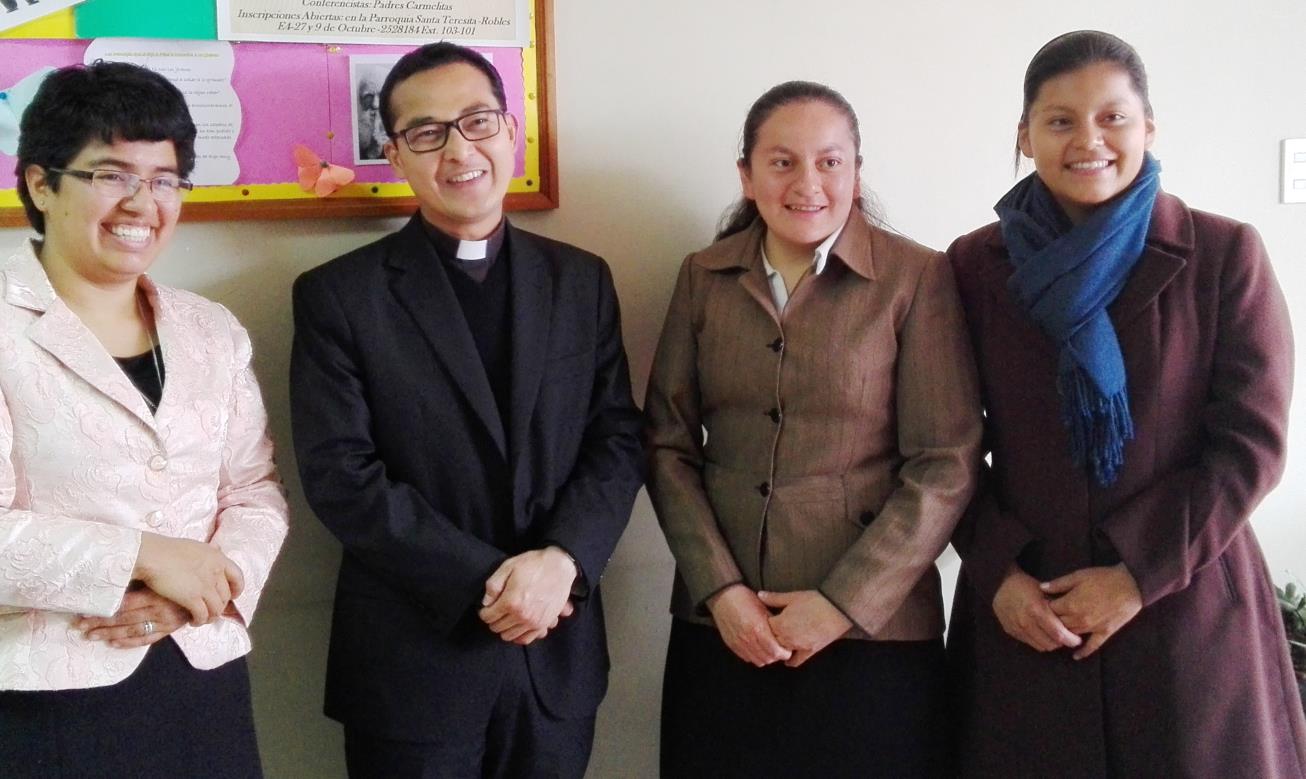 The program featured – in addition to talks that explored the value of communion between the new and ancient charisms in the Church and the truly different manner in which they developed or were nurtured – ample time for sharing. The Ecuadorian Religious Conference, in fact, had promoted the retreat with the title “Communion between charisms, a testimony of hope.” The occasion was the happy coincidence of the Mother Superior of the Little Servants of the Sacred Heart, Sr. Imelda Rizzato, visiting Ecuador. She has known about Focolare spirituality since her days in novitiate. She was able to share the impact that this spirituality had for her. Besides reinforcing her choice of vocation, it gave her a particular inclination to weave relationships of communion with those she met. In doing so, according to her superiors, she was living out the charism of her founder, Blessed Carlo Liviero, in an authentic way. In time the congregation gave her a number of responsibilities, to the point of asking her to be their highest guide. It is a role that she tries to carry out together with her sisters, with an openness and communion with other realities in the Church and other religious families. The goal is the “Church which goes forth” that the pope expects.
The program featured – in addition to talks that explored the value of communion between the new and ancient charisms in the Church and the truly different manner in which they developed or were nurtured – ample time for sharing. The Ecuadorian Religious Conference, in fact, had promoted the retreat with the title “Communion between charisms, a testimony of hope.” The occasion was the happy coincidence of the Mother Superior of the Little Servants of the Sacred Heart, Sr. Imelda Rizzato, visiting Ecuador. She has known about Focolare spirituality since her days in novitiate. She was able to share the impact that this spirituality had for her. Besides reinforcing her choice of vocation, it gave her a particular inclination to weave relationships of communion with those she met. In doing so, according to her superiors, she was living out the charism of her founder, Blessed Carlo Liviero, in an authentic way. In time the congregation gave her a number of responsibilities, to the point of asking her to be their highest guide. It is a role that she tries to carry out together with her sisters, with an openness and communion with other realities in the Church and other religious families. The goal is the “Church which goes forth” that the pope expects. 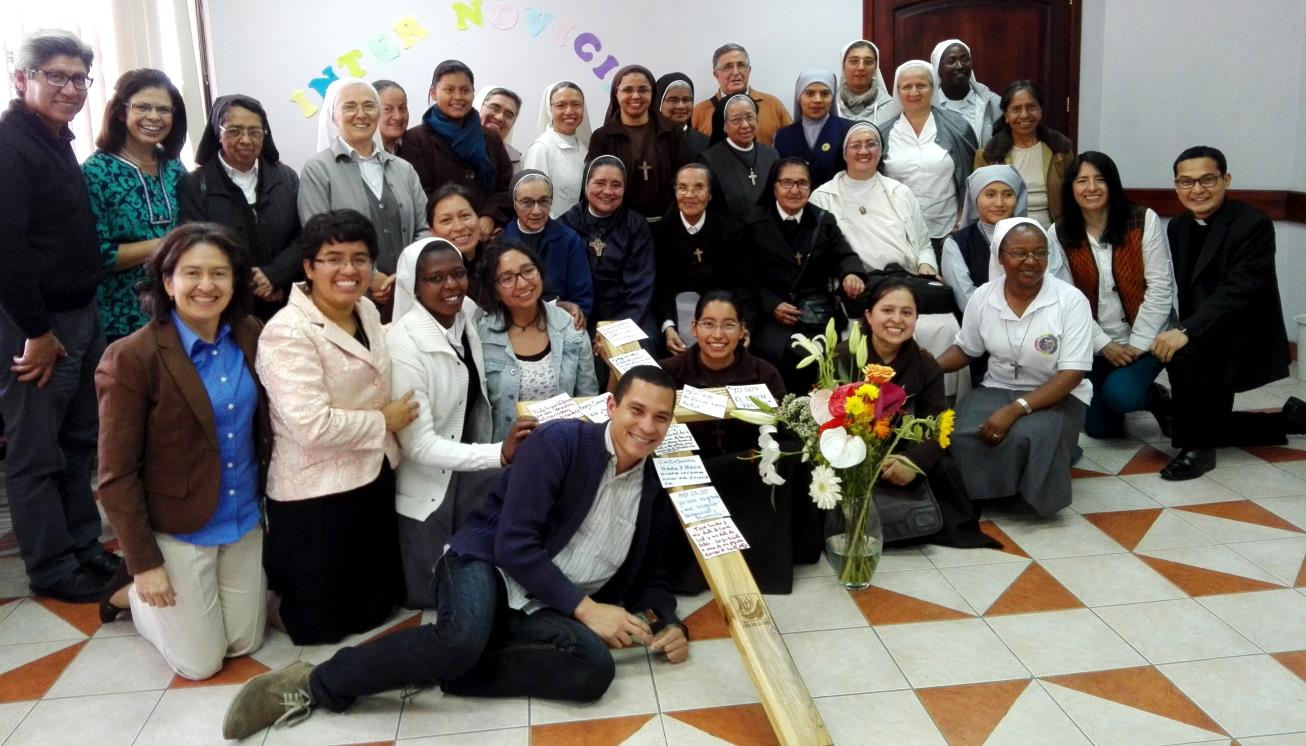 Sr Imelda and the other sisters who spoke were able to bear witness to how the charism of unity by no means conflicts with their individual charisms. On the contrary, it is a true help to accomplish what the Church expects of each charism, individually and in communion between them. News of the retreat even reached Apostolic Nunzio Monsignor Andrés Carrascosa, who not only allowed the sisters of the papal nunziature to participate, but sent his secretary to celebrate Mass. Staying for the entire meeting, the secretary said that it was a “true privilege to be there.” The day after the retreat some of the sisters wished to visit the Focolare center. They were putting down the foundations for their new path of unity between charisms in Ecuador, to open new horizons and give hope to the Church and the world.
Sr Imelda and the other sisters who spoke were able to bear witness to how the charism of unity by no means conflicts with their individual charisms. On the contrary, it is a true help to accomplish what the Church expects of each charism, individually and in communion between them. News of the retreat even reached Apostolic Nunzio Monsignor Andrés Carrascosa, who not only allowed the sisters of the papal nunziature to participate, but sent his secretary to celebrate Mass. Staying for the entire meeting, the secretary said that it was a “true privilege to be there.” The day after the retreat some of the sisters wished to visit the Focolare center. They were putting down the foundations for their new path of unity between charisms in Ecuador, to open new horizons and give hope to the Church and the world.
Nov 9, 2017 | Non categorizzato
On November 9, 28 years ago, the Government in East Germany declared the opening of the borders with the Federal Republic. To this announcement, tens of thousands of people in East Berlin descended on the streets armed with pick-axes, to demolish once and for all the wall dividing them from the West. The collapse of the wall was universally interpreted as the sign of a new era that had started. The East Berliners were greeted with huge jubilation by their brothers and sisters in the West, so much so that bars and cafes offered free beer for everyone! Less than a year later, on 3 October 1990, Germany was reunited definitively, thus becoming the Federal Republic of Germany. Today, the few features of what remained of the Berlin Wall have become the symbol of a historic era and a memorial to the 170 people who were killed in their desperate attempt to cross the border.
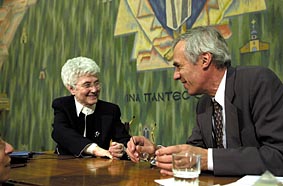
Nov 9, 2017 | Non categorizzato
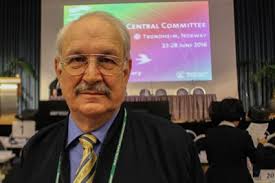
Georges “Yorgo” Lemopoulos

Geneva, October 2002: Chiara Lubich and Dr Konrad Raiser, who was then Secretary-General of WCC.
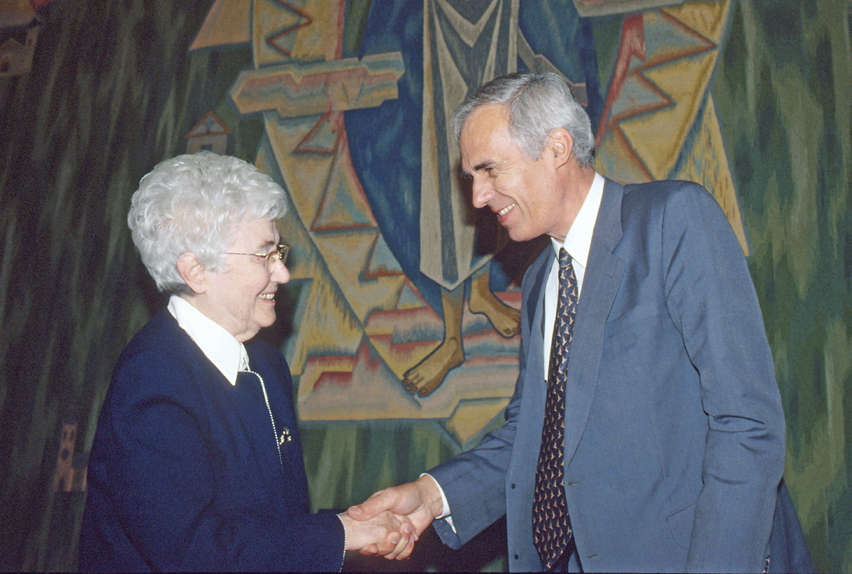
Nov 9, 2017 | Focolare Worldwide
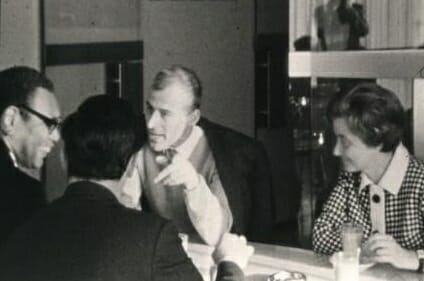
Geneva 1967: Chiara at the WCC with Philip Potter and Lukas Vischer

Geneva, October 2002: Chiara Lubich and Dr Konrad, then Secretary-General of WCC
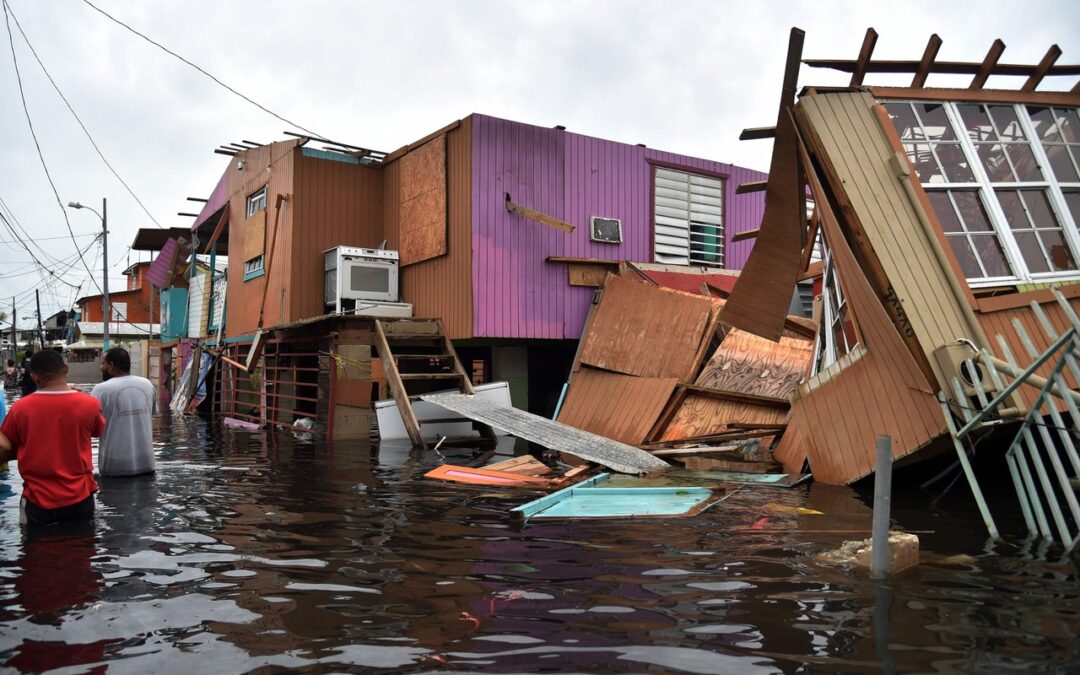
Nov 8, 2017 | Non categorizzato
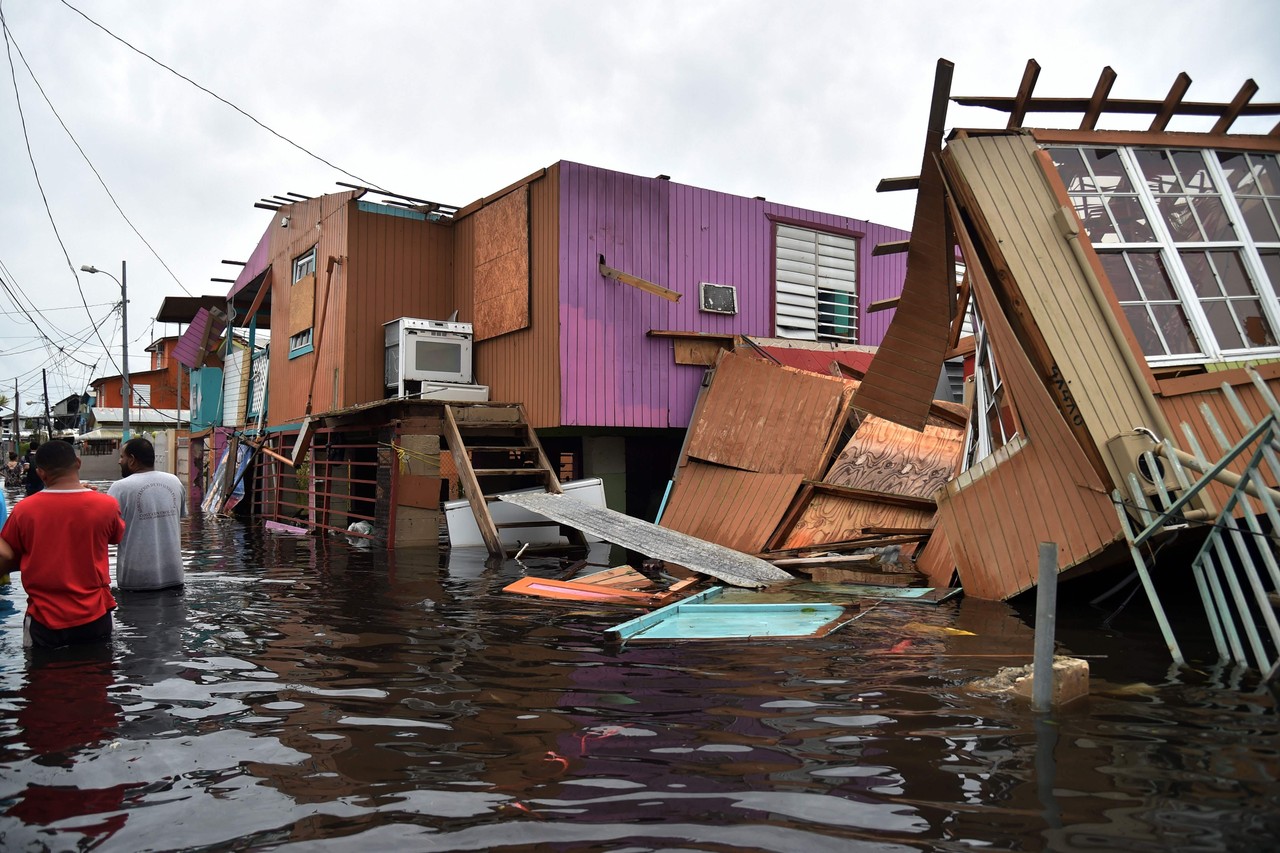 A month and a half has gone by since the passing of Hurricane Maria, which caused the death of ten people and the destruction of thousands of homes, with its 250 km winds and torrential rains. Puerto Rico hasn’t had such a wave of bad weather since 1928 when it was overwhelmed by a category 5 hurricane. From that day on, the island, with more than 3 million and a half inhabitants, suffers from a great problem with the water supply, food, medicine and electricity. The problems are not over, and it could provoke an exodus never witnessed before, further reducing the possibility of mid-term recovery. In the midst of these huge difficulties, the local Focolare community has also contributed its share, with collections of food and clothing to lift up the local population. “Some of us had some physical damages,” they write “especially in one family that lost everything, managing to salvage on a few small objects from the fury of the hurricane. At the moment they are in a small apartment that was placed at their service, but the entire community is conducting a communion of good to support them. The reconstruction of the area will be slow, but we have faith in God and have placed ourselves in His hands.” There have been many experiences with neighbours and people in difficulty. “Yesterday, for the second time, a well-dressed woman was walking down my street in a confused, aimless state. She was obviously lost. I followed her, without letting her out of my sight, until she was met by another person who had been looking for her. She explained to me that the woman suffered from Alzheimer’s and had come out of the institution she was staying in, because the back door had been opened by the hurricane, the electrical generator wasn’t working and it was just too hot. When I got back home I spoke with a friend who distributes benzene. He promised me that he would take some to them. Other people I contacted went to repair the door. Now the door is secure again.” “Yesterday I got in line early, at five o’clock in the morning, to buy some petrol. I saw a bus in the rear-view mirror of my car. It was a long wait, so I was able watch the scene. In the driver’s seat, a very angry man who continued to curse and swear. Next to him, a woman, perhaps his wife. An awful smell of tobacco smoke was pouring out of the driver’s window. The line was moving slowly in front of me – around twenty cars. As if that wasn’t enough, the news began to spread that the gas station would open only at eight and not six as I had thought. As I waited, the woman approached me and asked if I would help her to move the bus, because her husband had left and her feet didn’t reach the pedals. At first I refused, with the excuse that I wasn’t able to drive a bus. But the real reason was something else: I really didn’t like the way that man was acting. I realized I had to change my attitude and welcome her request as if Jesus himself had made it. When the driver returned, I explained that I was the one who moved his bus at the request of his wife. He began to let it all out, describing all his problems to me, for the next three hours. By the time we were finished filling up on gas, he was a completely different person, We shook hands. I had managed to overcome my prejudice.” “The street I live on was completely blocked with debris and uprooted trees. The majority of my neighbours are old and in frail physical health. I began wondering what would happen if there were need of an ambulance. I began to saw tree trunks and move them off the road. In the end, we had lunch together with whatever anyone had to share.” “We wanted to share water and food provisions with neighbours. Our own reserves dwindled, but the rapport among us intensified”
A month and a half has gone by since the passing of Hurricane Maria, which caused the death of ten people and the destruction of thousands of homes, with its 250 km winds and torrential rains. Puerto Rico hasn’t had such a wave of bad weather since 1928 when it was overwhelmed by a category 5 hurricane. From that day on, the island, with more than 3 million and a half inhabitants, suffers from a great problem with the water supply, food, medicine and electricity. The problems are not over, and it could provoke an exodus never witnessed before, further reducing the possibility of mid-term recovery. In the midst of these huge difficulties, the local Focolare community has also contributed its share, with collections of food and clothing to lift up the local population. “Some of us had some physical damages,” they write “especially in one family that lost everything, managing to salvage on a few small objects from the fury of the hurricane. At the moment they are in a small apartment that was placed at their service, but the entire community is conducting a communion of good to support them. The reconstruction of the area will be slow, but we have faith in God and have placed ourselves in His hands.” There have been many experiences with neighbours and people in difficulty. “Yesterday, for the second time, a well-dressed woman was walking down my street in a confused, aimless state. She was obviously lost. I followed her, without letting her out of my sight, until she was met by another person who had been looking for her. She explained to me that the woman suffered from Alzheimer’s and had come out of the institution she was staying in, because the back door had been opened by the hurricane, the electrical generator wasn’t working and it was just too hot. When I got back home I spoke with a friend who distributes benzene. He promised me that he would take some to them. Other people I contacted went to repair the door. Now the door is secure again.” “Yesterday I got in line early, at five o’clock in the morning, to buy some petrol. I saw a bus in the rear-view mirror of my car. It was a long wait, so I was able watch the scene. In the driver’s seat, a very angry man who continued to curse and swear. Next to him, a woman, perhaps his wife. An awful smell of tobacco smoke was pouring out of the driver’s window. The line was moving slowly in front of me – around twenty cars. As if that wasn’t enough, the news began to spread that the gas station would open only at eight and not six as I had thought. As I waited, the woman approached me and asked if I would help her to move the bus, because her husband had left and her feet didn’t reach the pedals. At first I refused, with the excuse that I wasn’t able to drive a bus. But the real reason was something else: I really didn’t like the way that man was acting. I realized I had to change my attitude and welcome her request as if Jesus himself had made it. When the driver returned, I explained that I was the one who moved his bus at the request of his wife. He began to let it all out, describing all his problems to me, for the next three hours. By the time we were finished filling up on gas, he was a completely different person, We shook hands. I had managed to overcome my prejudice.” “The street I live on was completely blocked with debris and uprooted trees. The majority of my neighbours are old and in frail physical health. I began wondering what would happen if there were need of an ambulance. I began to saw tree trunks and move them off the road. In the end, we had lunch together with whatever anyone had to share.” “We wanted to share water and food provisions with neighbours. Our own reserves dwindled, but the rapport among us intensified”
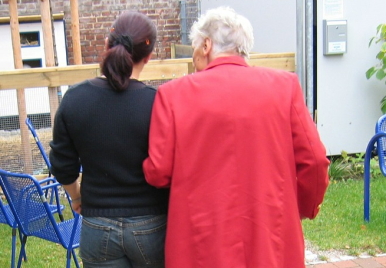
Nov 7, 2017 | Non categorizzato
 A friend falls ill Our friend Lia, who still has teenage children, was diagnosed with a malignant tumour. The whole community banded together around her with a prayer chain and gestures of solidarity. Once a week we got together at church for an hour of adoration and to ask the gift of healing for her. We tried to understand how to lighten those difficult days. We took on a number of tasks: someone made food, carefully choosing the appropriate ingredients for her; someone else put money in common to pay for medicine. These were small actions that helped her not to feel alone, but part of a community. When her health permitted, she would tell of her experience at community meetings. After a round of chemotherapy, any trace of the tumour had disappeared. For us it was an answer to our prayers and our commitment to love and serve her in a privileged way. (C.V., Brazil) Despite the wrongs done After my husband died I had to put up with tiresome humiliations from his relatives, who wanted me out of the room we had always lived in. One brother-in-law in particular, despite being the godfather of one of our four children, started making quite a few problems. Suddenly this brother-in-law got sick. Each time he fell ill, I ran to buy him medicine to ease the pain and brought it to him. My neighbours asked, “Why are you doing this, after everything you went through?” I responded that for me, to love means to put myself at the service of others. A few days later my brother-in-law died, and I stayed there and comforted his wife, helping her with all the things that her husband used to take care of. She later thanked me publicly. Now she lives with us and we are truly one family. (R.P., India) The mushroom expert As I was walking through the woods gathering mushrooms, I came upon a man lying on the ground. I went to him and helped him get back up. He was trembling. He pointed toward where he lived – a rusted out container among the trees. I tried to get him to lie down on some kind of bed. I later went back a number of times to see him, bringing him food and medicine. He was a great expert on mushrooms and made a living selling them. In the time we shared, he taught me where to find the best ones and how to dig them up. He started to tell me about his life, business failures and abandonment. One day I found him with a high fever, and I brought him in. He was in serious condition. He told me: “By now you know all about me, but the most important thing is that I always had faith in God. To have met you was a sign from him.” He then told me he had money hidden and gave me the task of getting it and giving it to someone who needed it. Now, each time I go gathering mushrooms, I think of him like a guiding angel. (R.S. Poland)
A friend falls ill Our friend Lia, who still has teenage children, was diagnosed with a malignant tumour. The whole community banded together around her with a prayer chain and gestures of solidarity. Once a week we got together at church for an hour of adoration and to ask the gift of healing for her. We tried to understand how to lighten those difficult days. We took on a number of tasks: someone made food, carefully choosing the appropriate ingredients for her; someone else put money in common to pay for medicine. These were small actions that helped her not to feel alone, but part of a community. When her health permitted, she would tell of her experience at community meetings. After a round of chemotherapy, any trace of the tumour had disappeared. For us it was an answer to our prayers and our commitment to love and serve her in a privileged way. (C.V., Brazil) Despite the wrongs done After my husband died I had to put up with tiresome humiliations from his relatives, who wanted me out of the room we had always lived in. One brother-in-law in particular, despite being the godfather of one of our four children, started making quite a few problems. Suddenly this brother-in-law got sick. Each time he fell ill, I ran to buy him medicine to ease the pain and brought it to him. My neighbours asked, “Why are you doing this, after everything you went through?” I responded that for me, to love means to put myself at the service of others. A few days later my brother-in-law died, and I stayed there and comforted his wife, helping her with all the things that her husband used to take care of. She later thanked me publicly. Now she lives with us and we are truly one family. (R.P., India) The mushroom expert As I was walking through the woods gathering mushrooms, I came upon a man lying on the ground. I went to him and helped him get back up. He was trembling. He pointed toward where he lived – a rusted out container among the trees. I tried to get him to lie down on some kind of bed. I later went back a number of times to see him, bringing him food and medicine. He was a great expert on mushrooms and made a living selling them. In the time we shared, he taught me where to find the best ones and how to dig them up. He started to tell me about his life, business failures and abandonment. One day I found him with a high fever, and I brought him in. He was in serious condition. He told me: “By now you know all about me, but the most important thing is that I always had faith in God. To have met you was a sign from him.” He then told me he had money hidden and gave me the task of getting it and giving it to someone who needed it. Now, each time I go gathering mushrooms, I think of him like a guiding angel. (R.S. Poland)
Nov 6, 2017 | Focolare Worldwide
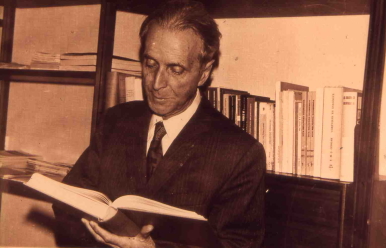
Nov 4, 2017 | Non categorizzato
 Just as war is ignorance, instinct and darkness, peace is science, civilization and light. Expecting – as we did – to have a better society from carnage, good from evil, black from white, is the same as expecting a better education for the heads it severs. Science, which was meant to devise exciting tools, will make the next war an exquisite case of refined, methodological stupidity. Fear is the great regulator of human relationships. Stimulated by fear, drained and exhausted lands keep disproportionately large and costly armies standing. There would be a solution: to substitute fear with mutual trust, indifference with friendship. But the solution would be too . . . easy; that is why it is so difficult. And it would bankrupt various oligarchies. I would have a good solution for the impulsive and powerful youngsters, deputies and public figures, improvised journalists and bank rats, for the tatsteless little misses to the spinsters on the committees, for speculators both high and low, for the generals and the professors, for the supporters of war – I would leave them in one of the trenches for ten minutes under a debilitating bombing, as all reason is lost and all nature rebells. When they come out of that, they’ll understand what war is – and they’ll curse it. This honoured society of ministers, deputies and journalists who presume to explain the significance of war to the rest of us, should understand once and for all that all their discourse turns our stomachs. We want peace and serenity, and we want the violence that they would unleash to be gone. Is that asking too much? Igino Giordani, from Rivolta Cattolica (Rome: Edizioni Gobettiane, 2016), 10-13.
Just as war is ignorance, instinct and darkness, peace is science, civilization and light. Expecting – as we did – to have a better society from carnage, good from evil, black from white, is the same as expecting a better education for the heads it severs. Science, which was meant to devise exciting tools, will make the next war an exquisite case of refined, methodological stupidity. Fear is the great regulator of human relationships. Stimulated by fear, drained and exhausted lands keep disproportionately large and costly armies standing. There would be a solution: to substitute fear with mutual trust, indifference with friendship. But the solution would be too . . . easy; that is why it is so difficult. And it would bankrupt various oligarchies. I would have a good solution for the impulsive and powerful youngsters, deputies and public figures, improvised journalists and bank rats, for the tatsteless little misses to the spinsters on the committees, for speculators both high and low, for the generals and the professors, for the supporters of war – I would leave them in one of the trenches for ten minutes under a debilitating bombing, as all reason is lost and all nature rebells. When they come out of that, they’ll understand what war is – and they’ll curse it. This honoured society of ministers, deputies and journalists who presume to explain the significance of war to the rest of us, should understand once and for all that all their discourse turns our stomachs. We want peace and serenity, and we want the violence that they would unleash to be gone. Is that asking too much? Igino Giordani, from Rivolta Cattolica (Rome: Edizioni Gobettiane, 2016), 10-13.
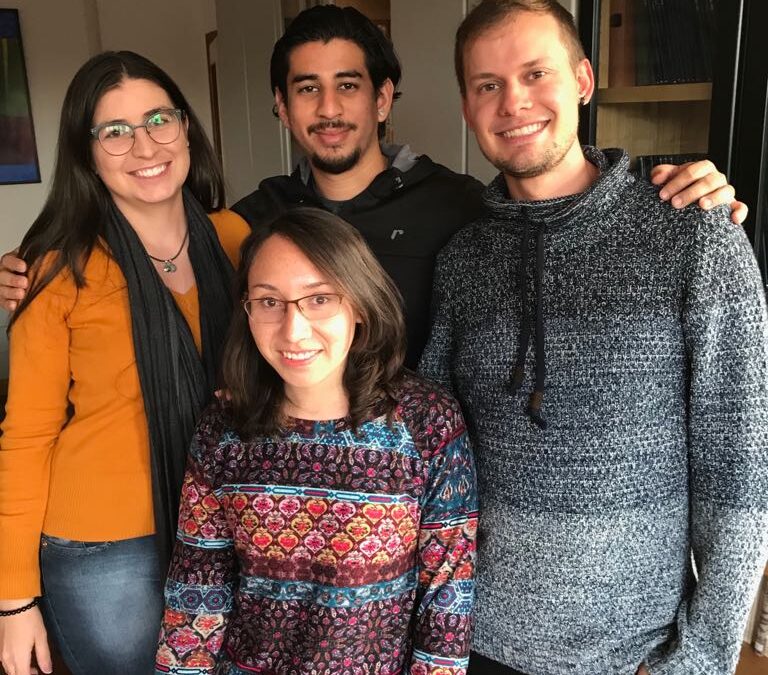
Nov 4, 2017 | Non categorizzato
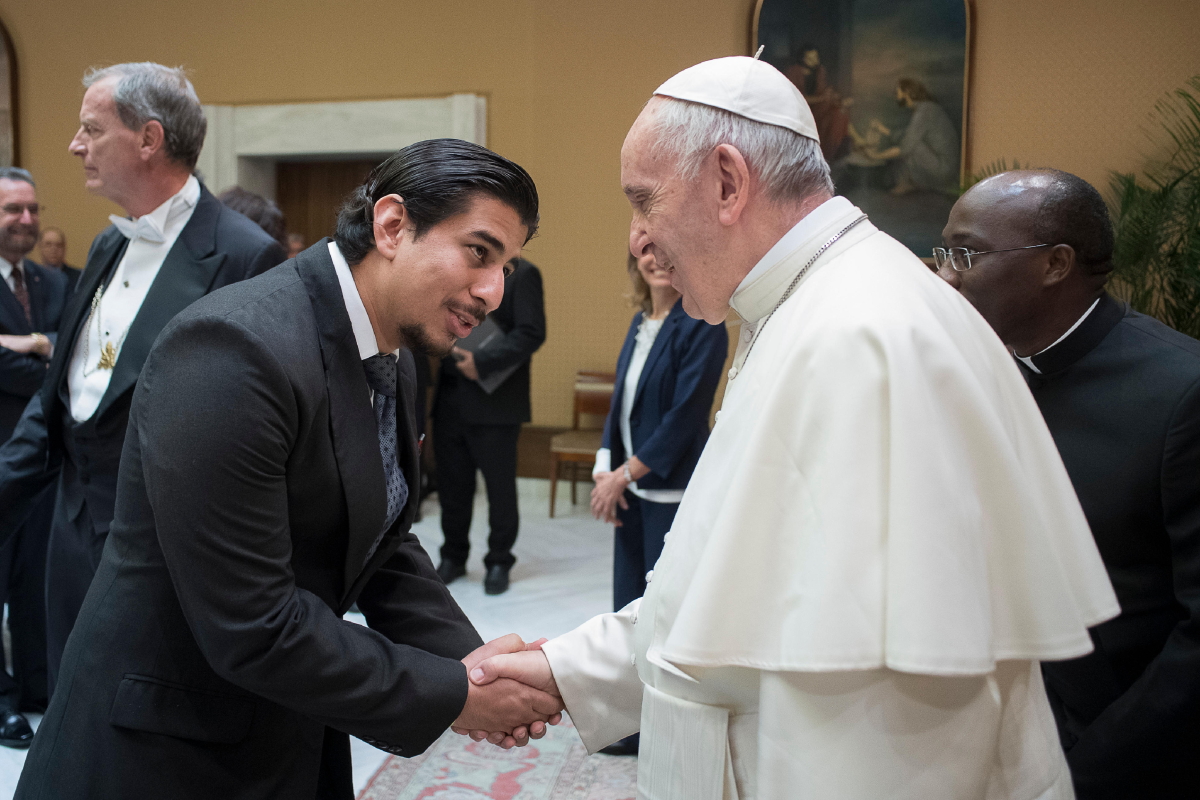
Nelson from El Salvador greets Pope Francis. Photo credit: © Osservatore Romano
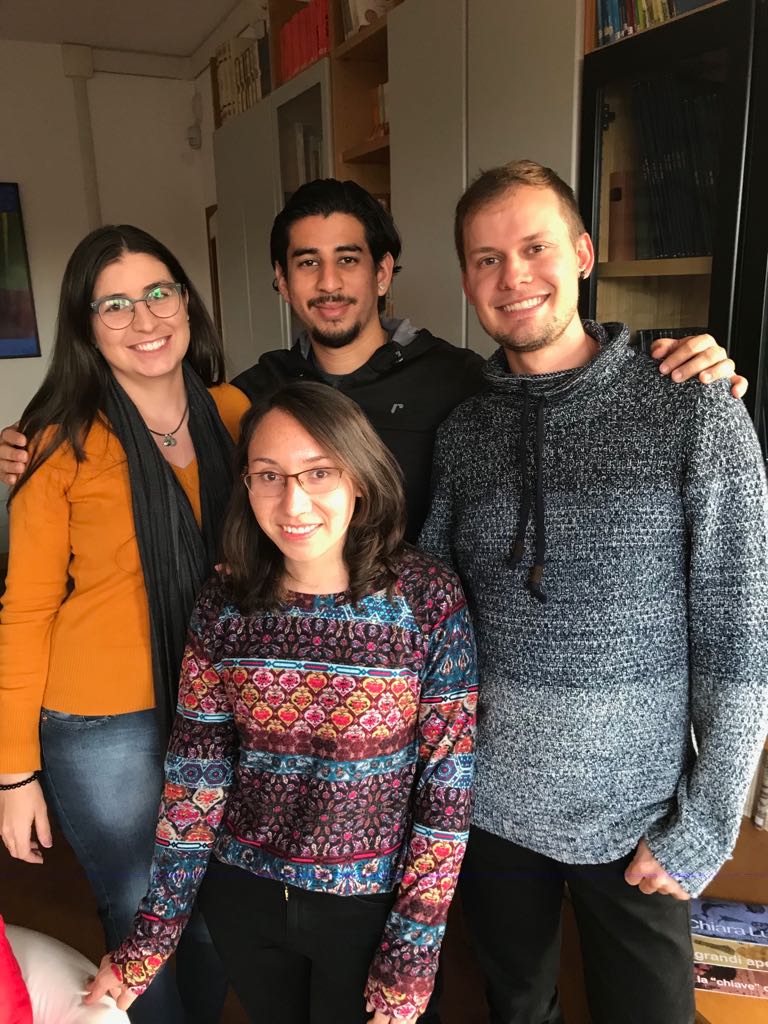 “We had the opportunity to build a rapport with many of the leaders attending. They were interested and asked us many questions. Two of them told us about projects that they hope to accomplish. “Raissa and I,” says Nelson, “were busy translating for a Brazilian cardinal into Portuguese. We rejoiced when they said they hoped that young people would also attend the next meetings, which was in sync with what the pope had said about the upcoming Youth Synod in October 2018. “For us it was really great to see that Religions for Peace is not really about the different faiths facing off, but a place to cooperate in favor of peace and saving the environment. To work for peace means to work for the planet: often wars are caused by inequality and poverty and produce ecological disasters. “In her address, Focolare President Maria Voce announced that Genfest 2018, ‘Beyond all borders,’ would take place in Manila. ‘Ten thousand young people will gather from all latitudes, ethnicities, cultures, religions – motivated by the idea of building a united world.’ “To see these important religious leaders together seemed like we were already participating as observers at a tiny Genfest where people work for peace and unity. “We went to carry out a service, but we didn’t expect to receive such a great gift: to greet the pope and receive, in the name of all the Gen and young people of the Focolare, such encouragement from him: ‘Adelante!’”
“We had the opportunity to build a rapport with many of the leaders attending. They were interested and asked us many questions. Two of them told us about projects that they hope to accomplish. “Raissa and I,” says Nelson, “were busy translating for a Brazilian cardinal into Portuguese. We rejoiced when they said they hoped that young people would also attend the next meetings, which was in sync with what the pope had said about the upcoming Youth Synod in October 2018. “For us it was really great to see that Religions for Peace is not really about the different faiths facing off, but a place to cooperate in favor of peace and saving the environment. To work for peace means to work for the planet: often wars are caused by inequality and poverty and produce ecological disasters. “In her address, Focolare President Maria Voce announced that Genfest 2018, ‘Beyond all borders,’ would take place in Manila. ‘Ten thousand young people will gather from all latitudes, ethnicities, cultures, religions – motivated by the idea of building a united world.’ “To see these important religious leaders together seemed like we were already participating as observers at a tiny Genfest where people work for peace and unity. “We went to carry out a service, but we didn’t expect to receive such a great gift: to greet the pope and receive, in the name of all the Gen and young people of the Focolare, such encouragement from him: ‘Adelante!’”
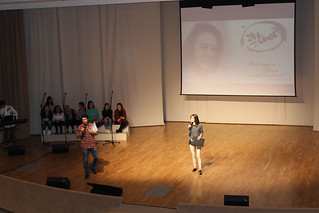
Nov 3, 2017 | Non categorizzato
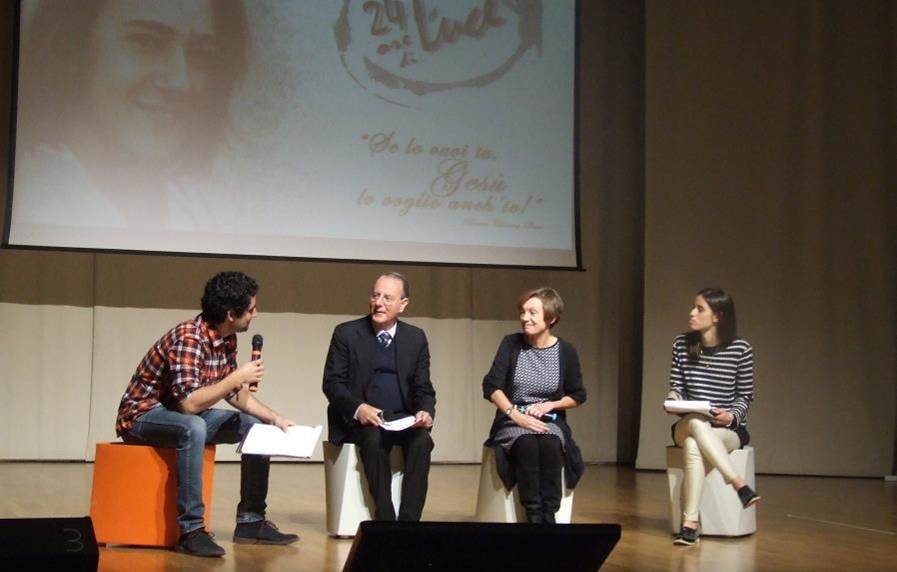 What could be so special about a teenager, and why does her life continue to illuminate anyone who comes across her even for one moment? One very lively and international group tells us. They were in Loppiano, Italy, for the 24 Hours of Light event that took place from noon on Saturday, October 28 until noon on Sunday, October 29th. It was an experience of fraternity that left them all marked by their encounter with God. It was the experience of Chiara Luce Badano. She was only 18 years old when, stricken with an incurable form of cancer, she bore witness until her final breath to the fullness of joy that can only be had in God-Love and giving oneself to others. She was declared Blessed on September 25, 2010. Many events were held around the world during this month when her liturgical feast occurs, all of them highlighting the exemplarity of her life. “A ray of very brilliant light has illuminated us too,” say the young people who were at Loppiano for the event, “and it continues to illuminate many others. With Chiara Luce, keeping our eyes on Jesus Crucified and Forsaken, we’ll be able not to shake in front of any kind of situation. On the contrary, we’ll become rays of light right where we are, helping to guide our human family towards universal brotherhood.”
What could be so special about a teenager, and why does her life continue to illuminate anyone who comes across her even for one moment? One very lively and international group tells us. They were in Loppiano, Italy, for the 24 Hours of Light event that took place from noon on Saturday, October 28 until noon on Sunday, October 29th. It was an experience of fraternity that left them all marked by their encounter with God. It was the experience of Chiara Luce Badano. She was only 18 years old when, stricken with an incurable form of cancer, she bore witness until her final breath to the fullness of joy that can only be had in God-Love and giving oneself to others. She was declared Blessed on September 25, 2010. Many events were held around the world during this month when her liturgical feast occurs, all of them highlighting the exemplarity of her life. “A ray of very brilliant light has illuminated us too,” say the young people who were at Loppiano for the event, “and it continues to illuminate many others. With Chiara Luce, keeping our eyes on Jesus Crucified and Forsaken, we’ll be able not to shake in front of any kind of situation. On the contrary, we’ll become rays of light right where we are, helping to guide our human family towards universal brotherhood.” 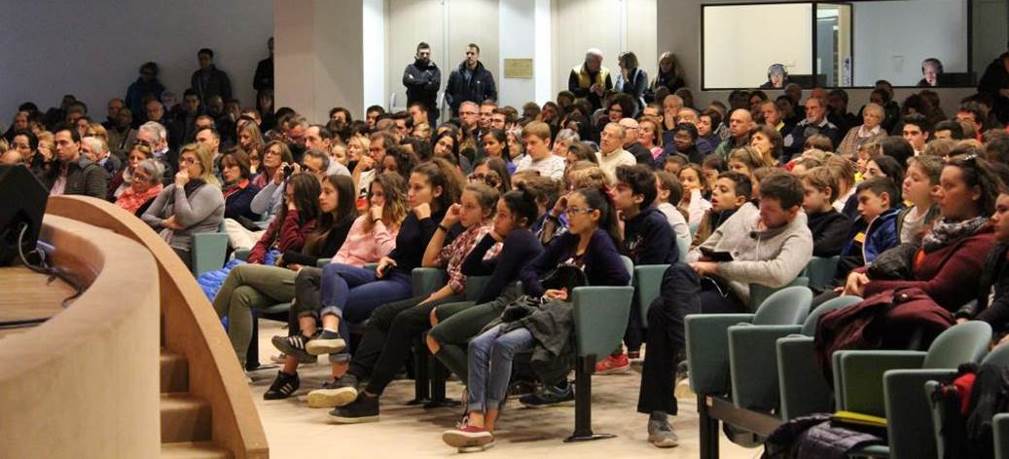 The program included songs, recitations, dances, real life experiences along with a bit of the thoughtlessness that is typical of teenagers, and the drive that is typical of people who have come to the realization that they have only one life. They’ve taken Chiara Lubich’s words to heart. Chiara was always quite frank with young people: “Living for something so-so would be too skimpy for a young person. It would be better to live for something great. So, live for Love. Sow love in every corner, so that an invasion of love will really take place and the civilization of love that we’re all waiting for will come true thanks also to you.” On the evening of the first day, as the glittering stars and the sparkles of a bonfire seemed to touch, a crowd of young people jammed into a hall that was being named after Chiara Luce. The image of the Blessed Chiara Luce, after its unveiling, seemed to spur the young people to want to become “light”, to form new and different constellations here on earth, living constellations made of people who love one another.
The program included songs, recitations, dances, real life experiences along with a bit of the thoughtlessness that is typical of teenagers, and the drive that is typical of people who have come to the realization that they have only one life. They’ve taken Chiara Lubich’s words to heart. Chiara was always quite frank with young people: “Living for something so-so would be too skimpy for a young person. It would be better to live for something great. So, live for Love. Sow love in every corner, so that an invasion of love will really take place and the civilization of love that we’re all waiting for will come true thanks also to you.” On the evening of the first day, as the glittering stars and the sparkles of a bonfire seemed to touch, a crowd of young people jammed into a hall that was being named after Chiara Luce. The image of the Blessed Chiara Luce, after its unveiling, seemed to spur the young people to want to become “light”, to form new and different constellations here on earth, living constellations made of people who love one another. 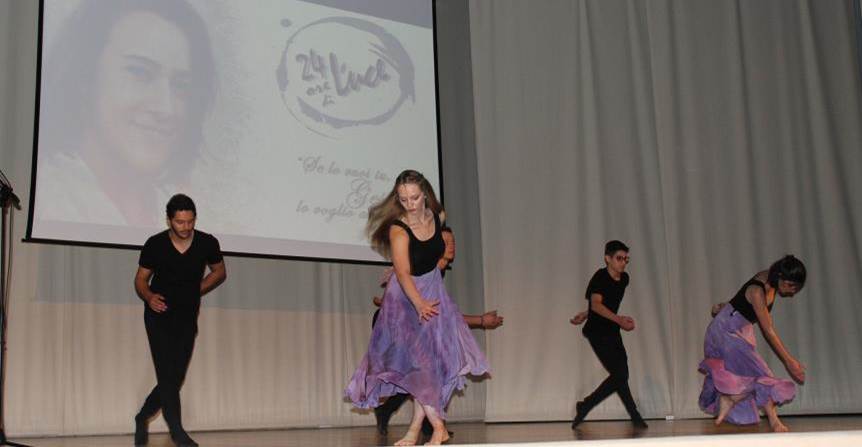 On the morning of Sunday, October 29th, Loppiano’s main auditorium was packed with young people. Thanks to a live streaming, Chiara Luce’s message ran thousands of kilometres, all the way to one group in Nepal. The final Mass was celebrated at the Shrine of Mary the Theotokos, which wasn’t able to hold the entire crowd that was celebrating the young Blessed who has been proposed as example for the upcoming Synod of Young People in 2018. “What are we left with after these 24 hours? Love, fullness, light, security, trust that life can change. But also the need for teamwork, sacrifice, unity at the expense of our pride. Chiara Luce often said: Anyone who loves is not little. Indeed, her greatness was clearly manifested when she even said yes to the pain of the illness. She found Jesus in that pain, someone who was like her, a man on a cross who cried out His abandonment. Looking at His example we’ll be able to become a ray of light too, ready to risk the darkness in which the world is immersed.” Source: Loppiano online: http://www.loppiano.it/ Photo gallery on Flickr
On the morning of Sunday, October 29th, Loppiano’s main auditorium was packed with young people. Thanks to a live streaming, Chiara Luce’s message ran thousands of kilometres, all the way to one group in Nepal. The final Mass was celebrated at the Shrine of Mary the Theotokos, which wasn’t able to hold the entire crowd that was celebrating the young Blessed who has been proposed as example for the upcoming Synod of Young People in 2018. “What are we left with after these 24 hours? Love, fullness, light, security, trust that life can change. But also the need for teamwork, sacrifice, unity at the expense of our pride. Chiara Luce often said: Anyone who loves is not little. Indeed, her greatness was clearly manifested when she even said yes to the pain of the illness. She found Jesus in that pain, someone who was like her, a man on a cross who cried out His abandonment. Looking at His example we’ll be able to become a ray of light too, ready to risk the darkness in which the world is immersed.” Source: Loppiano online: http://www.loppiano.it/ Photo gallery on Flickr 
https://www.youtube.com/watch?v=1XbJVCElU_o&feature=youtu.be
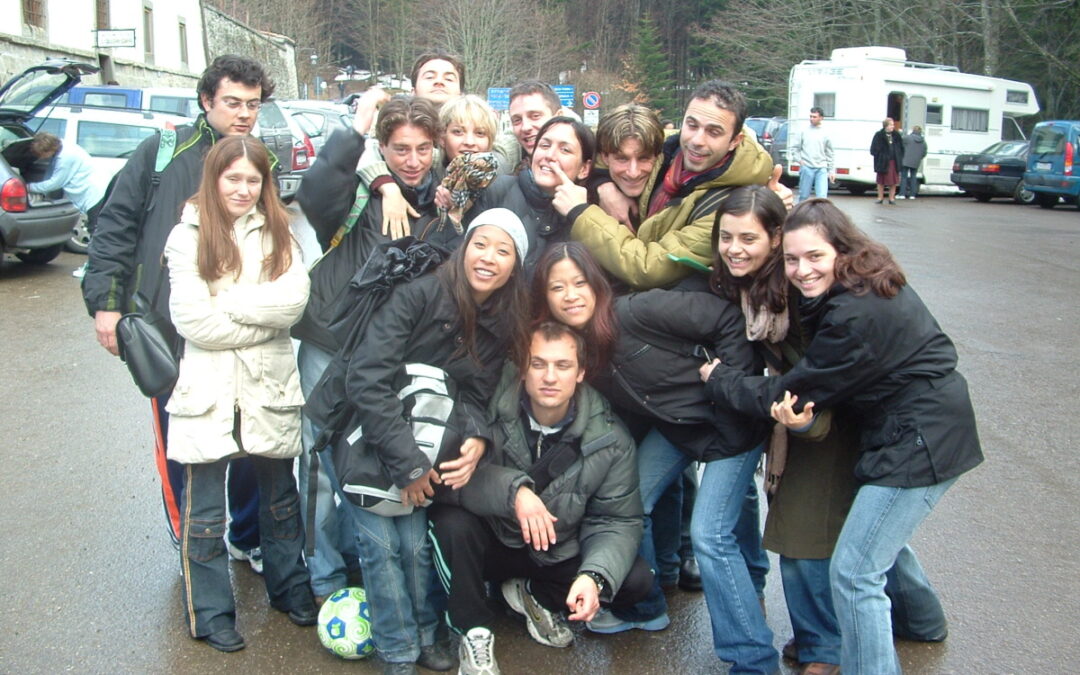
Nov 2, 2017 | Non categorizzato
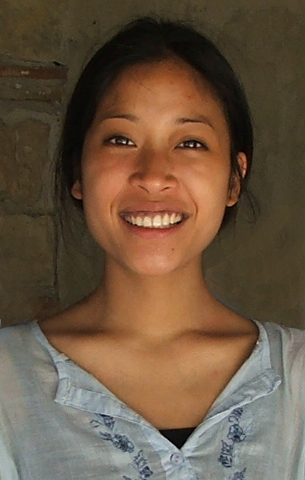 Hers is a moving story. It began when her parents, who were still quite young, swam across the Mekong river, fleeing the regime in their country, Laos, to reach Thailand. Eventually, after enormous challenges, they landed in Italy and were welcomed by a family they hadn’t ever met who live in Loppiano, the Focolare’s international community. And it was right there at the house of Raffaella and Roberto Cardinali that Sengsoury (which means “ray of light” in Laotian) and her twin sister Sourinia came into the world on September 12, 1979. Ever since she was small, “Senny” showed a special fondness for the Gospel spirit of unity and love that fuels Loppiano. When she was 9 she asked to be baptized, choosing the name Francesca. Becoming involved enthusiastically in the Gen Movement, when she became a teen she was on the front line with Sourinia preparing Supercongress 1997. When she was 23 she achieved her dream of spending the entire year at Mariapolis Lia, the Focolare’s Argentinian little city, where young people head to from all over the world. It was an experience that brought her to a more radical choice of God, and to choose a love that was more practical and polished than ever for those she met. Sengsoury loved to write poetry and lyrics that she sang together with her sister, accompanying her beautiful voice with guitar. She enrolled in beauty school in Florence. Those who know her describe her as a girl who was fascinating because of her perceptiveness, natural grace and radiant eyes. Yet she was also a person whose determination to follow Jesus could floor you. She and her boyfriend Marco became close and began to make plans for the future. In 2004, when she was 25, a sudden, serious autoimmune disease changed her life. Four years later she dictated a letter to a friend for Chiara Lubich where she described her situation: “I have a rare disease that has made it difficult for me to get around, to use language. There’s a lot of pain – sometimes shooting pain – in my bones and muscles. “These last few years, thanks to the support of my ‘grandparents’ Raffaella and Roberto, from Focolare young people and from many from the movement, I tried to transform these moments of pain into ‘drops of love’ for Jesus, including the long stretches in the hospital, tests and medicines. “At Christmas I checked in to a facility near Florence for therapy. However, bronchitis forced me to return to the hospital. I suffered a lot, and not just physically. I asked myself why it was me in this situation. I am the youngest in the ward, I have to be fed by tube and wear an oxygen mask. I have seen many of my dreams shattered: getting married, a career, travel, guitar, singing. “Sometimes I feel that Jesus is so far away. I turn to Mary, but she too is not close to me. Yet answer always comes: from a reflection, a spiritual writing, or a word from those who come to visit me. Peace returns, and with it the strength to say ‘for you Jesus; in every situation, like a sleepless night because of the pain. I don’t want to give up, and I ask Jesus to help me make it and to fulfil God’s design for me. I want so much to become a saint!”
Hers is a moving story. It began when her parents, who were still quite young, swam across the Mekong river, fleeing the regime in their country, Laos, to reach Thailand. Eventually, after enormous challenges, they landed in Italy and were welcomed by a family they hadn’t ever met who live in Loppiano, the Focolare’s international community. And it was right there at the house of Raffaella and Roberto Cardinali that Sengsoury (which means “ray of light” in Laotian) and her twin sister Sourinia came into the world on September 12, 1979. Ever since she was small, “Senny” showed a special fondness for the Gospel spirit of unity and love that fuels Loppiano. When she was 9 she asked to be baptized, choosing the name Francesca. Becoming involved enthusiastically in the Gen Movement, when she became a teen she was on the front line with Sourinia preparing Supercongress 1997. When she was 23 she achieved her dream of spending the entire year at Mariapolis Lia, the Focolare’s Argentinian little city, where young people head to from all over the world. It was an experience that brought her to a more radical choice of God, and to choose a love that was more practical and polished than ever for those she met. Sengsoury loved to write poetry and lyrics that she sang together with her sister, accompanying her beautiful voice with guitar. She enrolled in beauty school in Florence. Those who know her describe her as a girl who was fascinating because of her perceptiveness, natural grace and radiant eyes. Yet she was also a person whose determination to follow Jesus could floor you. She and her boyfriend Marco became close and began to make plans for the future. In 2004, when she was 25, a sudden, serious autoimmune disease changed her life. Four years later she dictated a letter to a friend for Chiara Lubich where she described her situation: “I have a rare disease that has made it difficult for me to get around, to use language. There’s a lot of pain – sometimes shooting pain – in my bones and muscles. “These last few years, thanks to the support of my ‘grandparents’ Raffaella and Roberto, from Focolare young people and from many from the movement, I tried to transform these moments of pain into ‘drops of love’ for Jesus, including the long stretches in the hospital, tests and medicines. “At Christmas I checked in to a facility near Florence for therapy. However, bronchitis forced me to return to the hospital. I suffered a lot, and not just physically. I asked myself why it was me in this situation. I am the youngest in the ward, I have to be fed by tube and wear an oxygen mask. I have seen many of my dreams shattered: getting married, a career, travel, guitar, singing. “Sometimes I feel that Jesus is so far away. I turn to Mary, but she too is not close to me. Yet answer always comes: from a reflection, a spiritual writing, or a word from those who come to visit me. Peace returns, and with it the strength to say ‘for you Jesus; in every situation, like a sleepless night because of the pain. I don’t want to give up, and I ask Jesus to help me make it and to fulfil God’s design for me. I want so much to become a saint!” 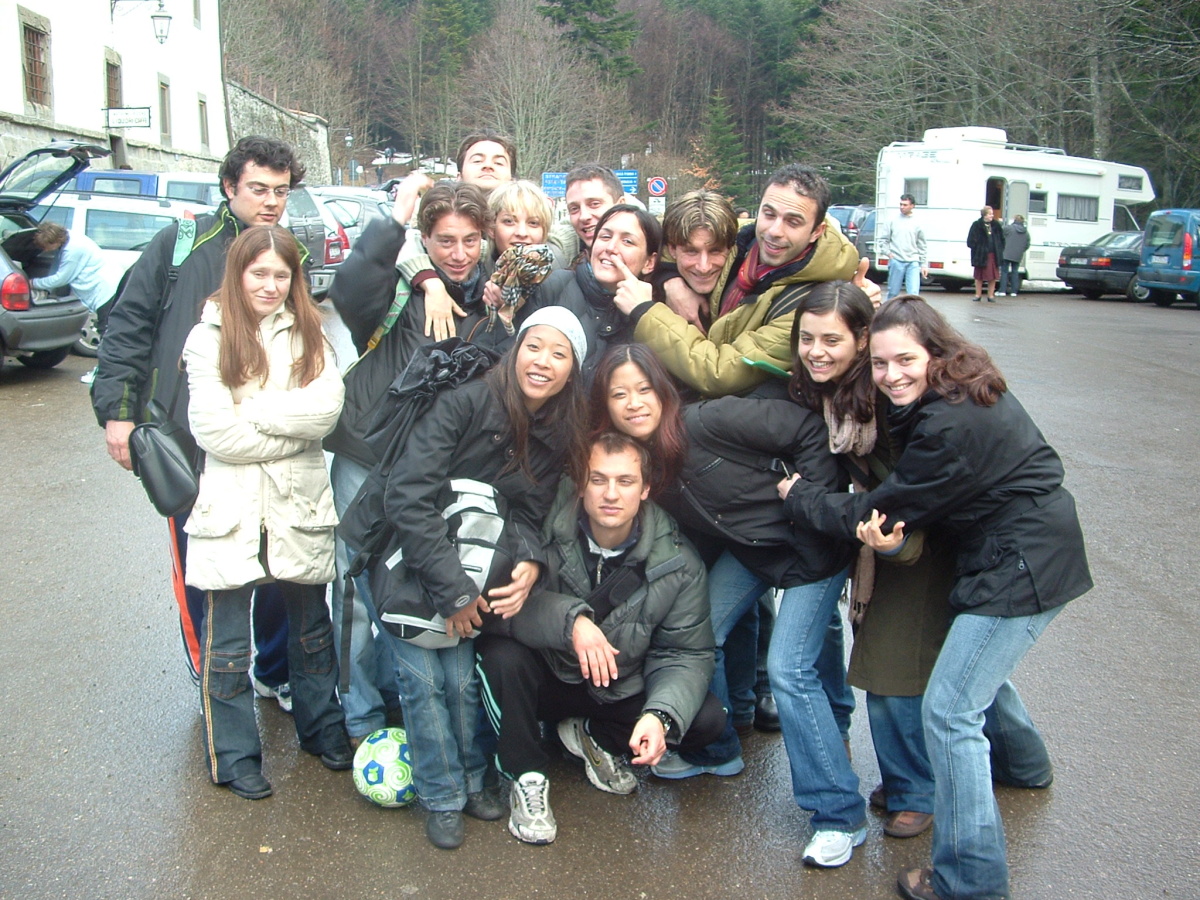 The Focolare community got involved in many ways, from moral and economic support for her parents to taking turns at her side, even to celebrate and share. From her bed, Sengsoury spread a special love. “There is only the present!” she confided to a Gen. With her feeble voice, she started to sing “O sole mio” to Jesus. She was more and more determined to offer him every suffering and transform them – as she used to say – into ‘golden nuggets’. On September 16, 2008, she began intensive treatment. In the days before her passing on September 24, she became more than ever that “ray of light,” dispelling every darkness with many a “yes” to Jesus. Those near to her sensed it through a hint in her eye or a squeeze of her hand. For them, for the ward staff and for all the young people of the movement, Sengsoury is – as her name says – a true ray of light, a vibrant light, an authentic witness of the Gospel lived.
The Focolare community got involved in many ways, from moral and economic support for her parents to taking turns at her side, even to celebrate and share. From her bed, Sengsoury spread a special love. “There is only the present!” she confided to a Gen. With her feeble voice, she started to sing “O sole mio” to Jesus. She was more and more determined to offer him every suffering and transform them – as she used to say – into ‘golden nuggets’. On September 16, 2008, she began intensive treatment. In the days before her passing on September 24, she became more than ever that “ray of light,” dispelling every darkness with many a “yes” to Jesus. Those near to her sensed it through a hint in her eye or a squeeze of her hand. For them, for the ward staff and for all the young people of the movement, Sengsoury is – as her name says – a true ray of light, a vibrant light, an authentic witness of the Gospel lived.
Nov 1, 2017 | Focolari nel Mondo
https://www.focolare.org/gb/files/2017/10/201711WOL.mp3 (more…)
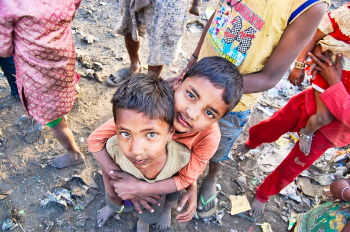
Nov 1, 2017 | Non categorizzato
 Great saints have always begun by moving toward God and toward the poor and underprivileged in an unconventional way. They left where they were from and went out towards the poor – not to give alms, but to share life, to take others’ lives in, in such a way that their own radically changed. The radical choice of God is really, in most cases in the history of salvation, a choice of the poor, a choice of the young in society, a choice of the most vulnerable. It is a choice that is not only about making the situation better, not just increase a bit of donations, or even living a small and temporary part of their lives and then go back to their own situation. It always comes from metanoia – a deep change in mentality, sensibility and being. I belong to them, I am like them, exactly like them before God, and I am not any better than them. No, I am at their level and, in fact, the Most Holy One came down to that level. From a homily on January 11, 1993. Klaus Hemmerle, The Light Within all Things, Rome: Citta’ Nuova, 1998, p. 340.
Great saints have always begun by moving toward God and toward the poor and underprivileged in an unconventional way. They left where they were from and went out towards the poor – not to give alms, but to share life, to take others’ lives in, in such a way that their own radically changed. The radical choice of God is really, in most cases in the history of salvation, a choice of the poor, a choice of the young in society, a choice of the most vulnerable. It is a choice that is not only about making the situation better, not just increase a bit of donations, or even living a small and temporary part of their lives and then go back to their own situation. It always comes from metanoia – a deep change in mentality, sensibility and being. I belong to them, I am like them, exactly like them before God, and I am not any better than them. No, I am at their level and, in fact, the Most Holy One came down to that level. From a homily on January 11, 1993. Klaus Hemmerle, The Light Within all Things, Rome: Citta’ Nuova, 1998, p. 340.
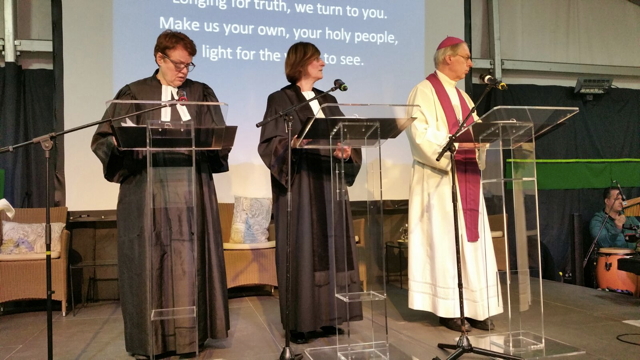
Oct 31, 2017 | Non categorizzato
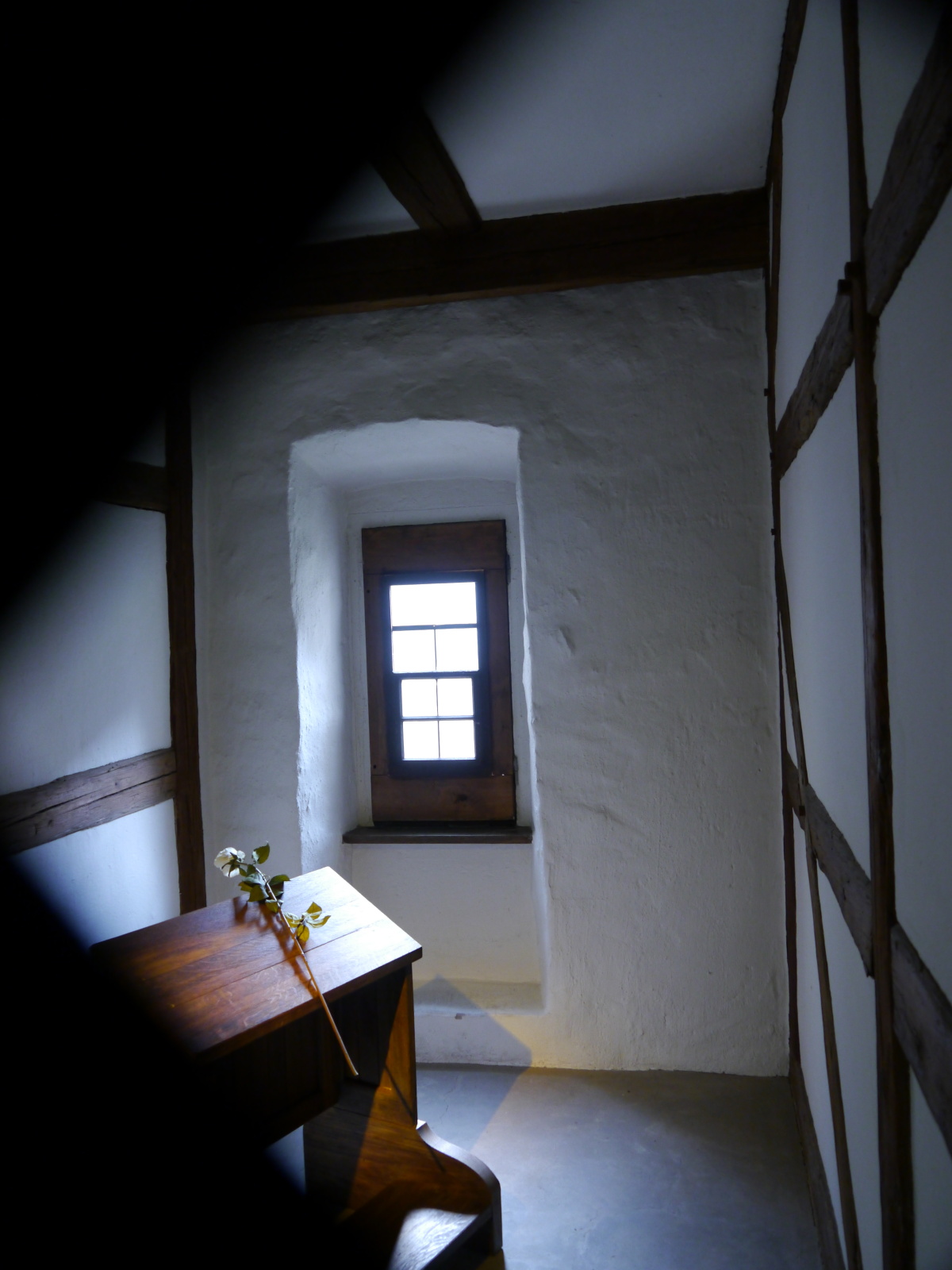
Erfurt: cell in Luther’s monastery
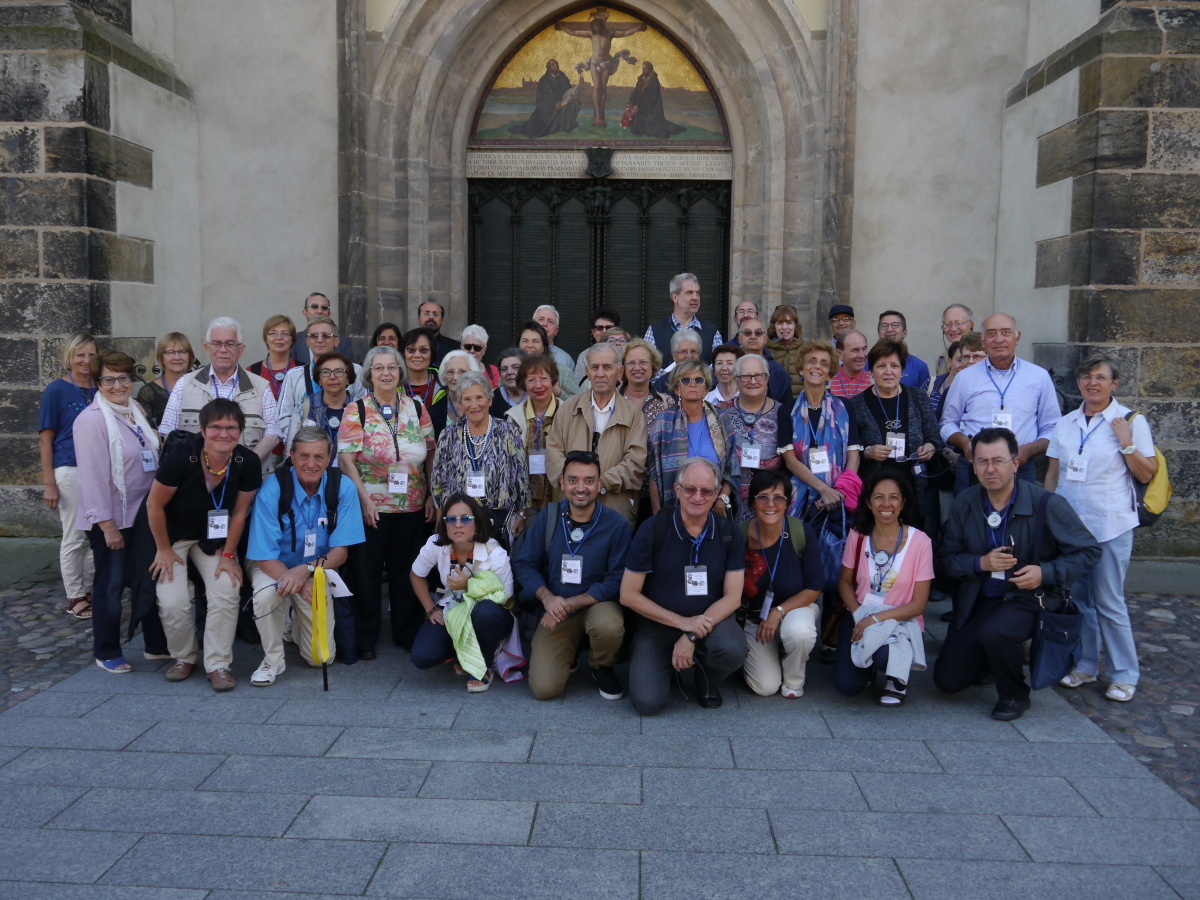 Throughout the year numerous encounters, conferences, ecumenical days and moments of common prayer in a variety of contexts and settings were held, almost always at local churches. They were opportunities to delve into the treasure of the different Christian traditions not only Catholic and Lutheran in a genuine family atmosphere. In May, during the Ecumenical Week called “Walking Together” and held at the Mariapolis Centre in Castel Gandolfo, Italy, Maria Voce spoke to 700 people from 42 countries and 69 different churches, identifying in the “five imperatives” of the Walking Together document the basis for any kind of fruitful ecumenical effort. Several presentations were made, including that of a new biography Lutero, L’uomo della Rivoluzione [Luther, the Man of the Revolution], written by Mario Dal Bello from Città Nuova. In Italy, the Focolare community held two evening programmes at Torino and Bra, with presentations by Hubertus Blaumeiser, a Catholic expert on Luther, and by Waldensian, Dr Paolo Ricca.
Throughout the year numerous encounters, conferences, ecumenical days and moments of common prayer in a variety of contexts and settings were held, almost always at local churches. They were opportunities to delve into the treasure of the different Christian traditions not only Catholic and Lutheran in a genuine family atmosphere. In May, during the Ecumenical Week called “Walking Together” and held at the Mariapolis Centre in Castel Gandolfo, Italy, Maria Voce spoke to 700 people from 42 countries and 69 different churches, identifying in the “five imperatives” of the Walking Together document the basis for any kind of fruitful ecumenical effort. Several presentations were made, including that of a new biography Lutero, L’uomo della Rivoluzione [Luther, the Man of the Revolution], written by Mario Dal Bello from Città Nuova. In Italy, the Focolare community held two evening programmes at Torino and Bra, with presentations by Hubertus Blaumeiser, a Catholic expert on Luther, and by Waldensian, Dr Paolo Ricca.  In Holland, leaders of the main Christian Churches began the Unity On the March Day. In Brazil, following a symposium promoted by the national ecumenical commission on Luther’s Comments on the Magnificat, there was an evening held at Mariapolis Ginetta which was followed via live streaming by many young people in 650 listening locations. In Venezuela several encounters and moments of prayer were held by the focolare communities. At Mariapolis Fiore in Poland the day event held in September for the 500th anniversary was the opportunity for a particular kind of witness: the fifteen year ecumenical pilgrimage shared by the people of Poland and Germany. In Ireland, on the initiative of the Focolare Movement and the Lutheran Church, studies were held, conference and an Ecumenical Bible week, which also involved the Anglican and Presbyterian Churches. There were also journeys to significant landmarks of the Reformation and of the life of Martin Luther. In the month of August, there was a seminar on Luther in Zwochau with fifty Catholics, Lutherans Waldensians and one Coptic-Orthodox, from several European countries, Egypt and Argentina. Included in the programme was a visit to Wartburg Castle and the city of Wittenberg, Effort where the young Luther entered the Augustinian Order, and Lipsia where his legacy met up with the musical genius of J. S. Bach. One Italian group visited another significant landmark, the city of Augusta, to get to know the Ecumenical Mariapolis of Ottmaring. A similar pilgrimage took place in June, promoted by the Ecumenical Commission of Hong Kong and accompanied by several focolarini. In Sweden, the Focolare community solemnly underwrote “the imperatives” and handed their signatures over to the Lutheran Archbishop. The Gen Verde performing arts group, through its concert concert “On the Other Side “, contributed to the commemoration in Stadthagen (Germany). These were but a few steps on a road that is still very long, which are added to many others that set the direction of the common search for truth and salvation, with an open gaze focused on all the Churches. It’s a new page in history.
In Holland, leaders of the main Christian Churches began the Unity On the March Day. In Brazil, following a symposium promoted by the national ecumenical commission on Luther’s Comments on the Magnificat, there was an evening held at Mariapolis Ginetta which was followed via live streaming by many young people in 650 listening locations. In Venezuela several encounters and moments of prayer were held by the focolare communities. At Mariapolis Fiore in Poland the day event held in September for the 500th anniversary was the opportunity for a particular kind of witness: the fifteen year ecumenical pilgrimage shared by the people of Poland and Germany. In Ireland, on the initiative of the Focolare Movement and the Lutheran Church, studies were held, conference and an Ecumenical Bible week, which also involved the Anglican and Presbyterian Churches. There were also journeys to significant landmarks of the Reformation and of the life of Martin Luther. In the month of August, there was a seminar on Luther in Zwochau with fifty Catholics, Lutherans Waldensians and one Coptic-Orthodox, from several European countries, Egypt and Argentina. Included in the programme was a visit to Wartburg Castle and the city of Wittenberg, Effort where the young Luther entered the Augustinian Order, and Lipsia where his legacy met up with the musical genius of J. S. Bach. One Italian group visited another significant landmark, the city of Augusta, to get to know the Ecumenical Mariapolis of Ottmaring. A similar pilgrimage took place in June, promoted by the Ecumenical Commission of Hong Kong and accompanied by several focolarini. In Sweden, the Focolare community solemnly underwrote “the imperatives” and handed their signatures over to the Lutheran Archbishop. The Gen Verde performing arts group, through its concert concert “On the Other Side “, contributed to the commemoration in Stadthagen (Germany). These were but a few steps on a road that is still very long, which are added to many others that set the direction of the common search for truth and salvation, with an open gaze focused on all the Churches. It’s a new page in history.
Listen to interview given to the BBC Radio (Ulster) by Swiss theologian Fr Hubertus Blaumeiser during the Sunday Sequence program on The Reformation (30/10/2017). Fr Blaumeiser is recognised as one of the leading authorities on Luther. http://www.bbc.co.uk/programmes/p05lc3dn
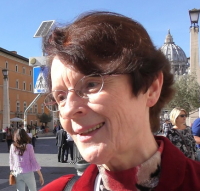
Oct 30, 2017 | Non categorizzato
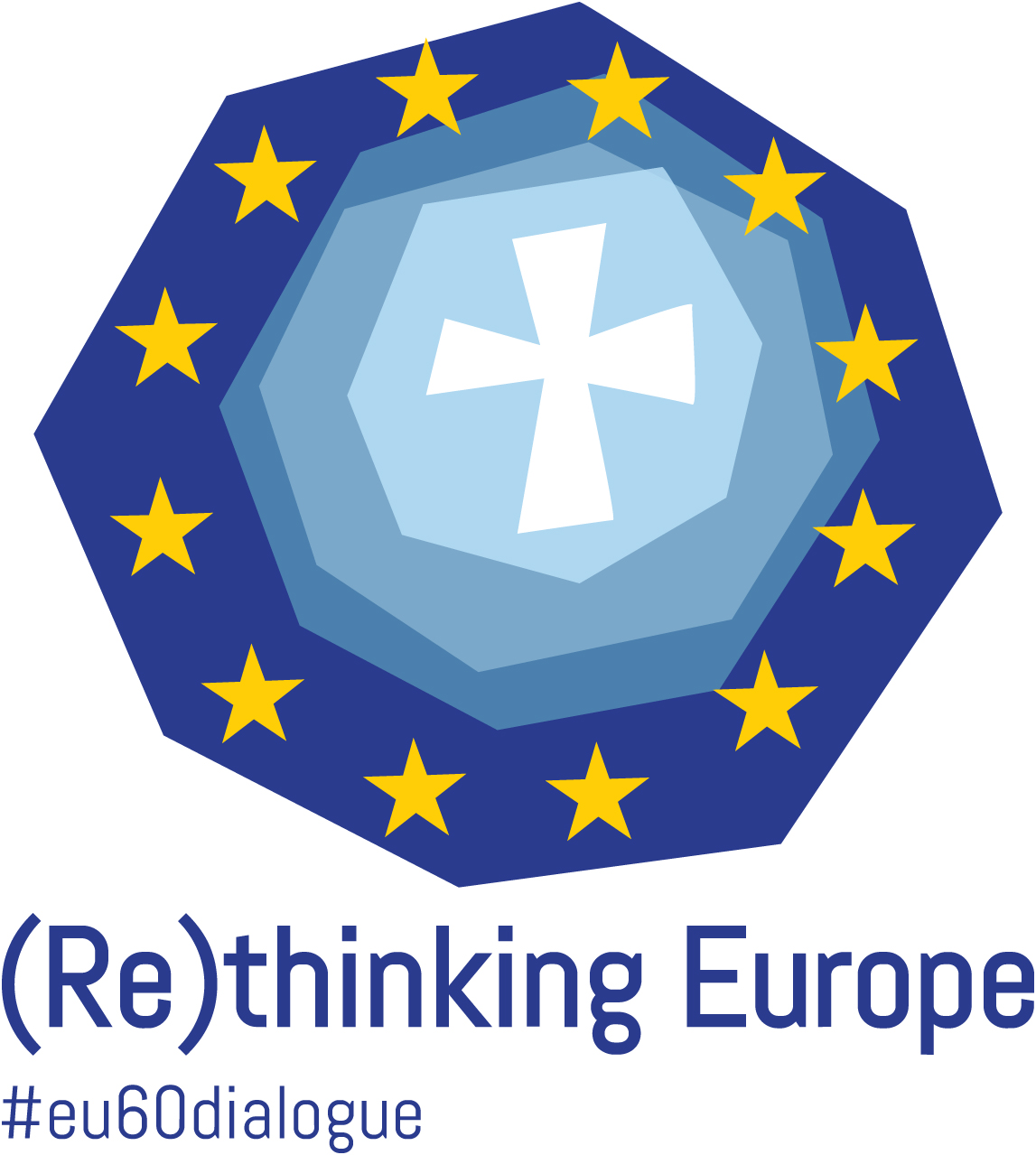 The convention entitled“(Re)Thinking Europe. A Christian contribution to the future of the Project for Europe” was held in the Vatican from 27 to 29 October. It was organised by the Commission of the European Bishops’ Conference (COMECE) in cooperation with the Secretary of State. “The commitment of Christians has to constitute a promise of peace,” Pope Francis said at the conclusion of the works. This is not “a time to build trenches, but rather, to work to fully pursue the dream of the Founding Fathers of a united and peaceful Europe, a community of peoples who want to share a future of development and peace.”
The convention entitled“(Re)Thinking Europe. A Christian contribution to the future of the Project for Europe” was held in the Vatican from 27 to 29 October. It was organised by the Commission of the European Bishops’ Conference (COMECE) in cooperation with the Secretary of State. “The commitment of Christians has to constitute a promise of peace,” Pope Francis said at the conclusion of the works. This is not “a time to build trenches, but rather, to work to fully pursue the dream of the Founding Fathers of a united and peaceful Europe, a community of peoples who want to share a future of development and peace.”

Ilona Toth
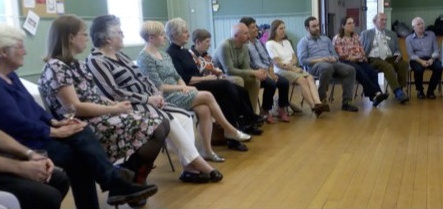
Oct 30, 2017 | Non categorizzato
 A small crowd gathered together despite the pouring rain and there was a tree of stylized branches on which many peace messages sprouted like leaves. This is just one of the more recent snapshots of an ongoing friendship between the Focolare community of Scotland and the Muslims of the Ahl Al Bait Society, founded in 1991 with the aim of promoting cultural legacy and religious faith of the Muslim minority in the country, and helping it to integrate into its social context. Together, the two communities have been promoting for some time now, moments of sharing, encounter and common prayer, where interreligious dialogue is proposed as a key element to face and heal the many divisions that are dangerously affecting the social weft, not only in Europe. Last 19 September, umbrellas opened under a grey sky to give a colourful sign of this commitment. Among those attending the Wake for Peace and Hope were some civil and religious personages, among which were Lord Provost, representative of the city’s Municipal Council, Metropolitan Archbishop Emeritus of Glasgow, Mario Conti, and some exponents of the Muslim Council of Scotland.
A small crowd gathered together despite the pouring rain and there was a tree of stylized branches on which many peace messages sprouted like leaves. This is just one of the more recent snapshots of an ongoing friendship between the Focolare community of Scotland and the Muslims of the Ahl Al Bait Society, founded in 1991 with the aim of promoting cultural legacy and religious faith of the Muslim minority in the country, and helping it to integrate into its social context. Together, the two communities have been promoting for some time now, moments of sharing, encounter and common prayer, where interreligious dialogue is proposed as a key element to face and heal the many divisions that are dangerously affecting the social weft, not only in Europe. Last 19 September, umbrellas opened under a grey sky to give a colourful sign of this commitment. Among those attending the Wake for Peace and Hope were some civil and religious personages, among which were Lord Provost, representative of the city’s Municipal Council, Metropolitan Archbishop Emeritus of Glasgow, Mario Conti, and some exponents of the Muslim Council of Scotland. 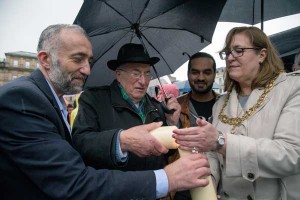 The organisers explained that this initiative was inspired by the appeal launched by Pope Francis for solidarity with Syrian people. Liz Taite of the Focolare Movement explained: “In a moment in which various circumstances are sowing division and conflicts, the Focolare Movement, together with people of different faiths, intends to publicly promote a message of peace. This event is the sign that God is at work and that peace is possible.” Azzam Mohammad, director of the Ahl Al Bait Society said: “Together we want to bring down the barriers, eliminate the fear and diffidence, and increase comprehension and mutual respect. We worked with sincerity and heartiness as a team, and it was a success. This is a step that marks the history of our common endeavours and will be an example for all the communities around us. Now we have started to plan for the next event.”
The organisers explained that this initiative was inspired by the appeal launched by Pope Francis for solidarity with Syrian people. Liz Taite of the Focolare Movement explained: “In a moment in which various circumstances are sowing division and conflicts, the Focolare Movement, together with people of different faiths, intends to publicly promote a message of peace. This event is the sign that God is at work and that peace is possible.” Azzam Mohammad, director of the Ahl Al Bait Society said: “Together we want to bring down the barriers, eliminate the fear and diffidence, and increase comprehension and mutual respect. We worked with sincerity and heartiness as a team, and it was a success. This is a step that marks the history of our common endeavours and will be an example for all the communities around us. Now we have started to plan for the next event.”  In August, Daniel, of Glasgow had participated in the Summer School Interfaith Engagement in Theory and Practice, a course/workshop dedicated to interreligious dialogue, and promoted for some years now by the Sophia University Institute and the Risalat Institute of Qum (Iran) in Tonadico, Northern Italy. This year the participants came from Canada, Europe and the United States. “I think that my city can understand the values of multiculturalism and integration. When we are united and supportive, and you recognise your own values in those who, at first sight, seem to be different, we can face the daily battles in a different way. These encounters between different faiths and cultures are testimonies of how unity is possible even when we are different. This diversity strengthens us and reminds us to greet each other as brothers and sisters, welcoming each other with open arms and a smile. We all can become messengers of hope and peace and engines of change.”
In August, Daniel, of Glasgow had participated in the Summer School Interfaith Engagement in Theory and Practice, a course/workshop dedicated to interreligious dialogue, and promoted for some years now by the Sophia University Institute and the Risalat Institute of Qum (Iran) in Tonadico, Northern Italy. This year the participants came from Canada, Europe and the United States. “I think that my city can understand the values of multiculturalism and integration. When we are united and supportive, and you recognise your own values in those who, at first sight, seem to be different, we can face the daily battles in a different way. These encounters between different faiths and cultures are testimonies of how unity is possible even when we are different. This diversity strengthens us and reminds us to greet each other as brothers and sisters, welcoming each other with open arms and a smile. We all can become messengers of hope and peace and engines of change.”
Oct 29, 2017 | Non categorizzato, Spiritualità, Word of
for ages 4-8 | for ages 9-17 | Print | Audio Jesus was speaking to the crowds that followed him, telling them about the new lifestyle of those who want to be his disciples, a way of life that went “against the current” in comparison to the usual way of thinking (see Mt 23:1–11). In his day (and today, too) it was easy to talk in high moral terms and then not live accordingly, seeking prestige in society, wanting to be seen or using others for personal advantage. Jesus asks his disciples to have a completely different logic when relating to others, as he himself had: “The greatest among you will be your servant.” At a September 1982 meeting in Payerne, Switzerland, Chiara Lubich shared her spiritual experience with people who wanted to discover how to live out the Gospel: “We must keep our gaze fixed on the one Father of so many children, and then consider all people as children of that one Father … “Jesus, who is our model, taught us two things that are ultimately one: to be children of our one Father and to be brothers and sisters to one another … God was calling us to universal brotherhood and sisterhood.” This is what is new, to love everyone just as Jesus did, because all people — you and me and every person on the face of the earth — are children of God, who have always been loved and wanted by him. In this way, we discover that the brother or sister we should love in concrete ways (with our muscles too) is every single person we meet on a daily basis. This means my dad, my mother-in-law and my rebellious child. It means someone in prison, a street beggar, someone who is disabled, my manager and the cleaners at work. It means my colleague in a political party and the person who has different political opinions than I do. It means people of our faith and culture, as well as foreigners. The characteristically Christian attitude toward every brother or sister is to serve them. “The greatest among you will be your servant.” “To strive for the primacy of the Gospel by putting ourselves at the service of everyone,” Chiara continued, “what is the best way to serve? “To make ourselves one with everyone we meet, feeling what they feel within ourselves: helping as though their problems were our own, made ours by love … No longer living just thinking of ourselves but seeking to bear other people’s burdens and to share their joys.” Each of our skills and good points, all that we might feel “great” about, is an opportunity to serve that should not be lost. Our work skills, our artistic talents, our knowledge, but also being able to laugh or make people laugh — or the time given to listening to someone who is unsure about what to do or who is in difficulty. There’s the energy of youth, but also the power of prayer, when physical strength lessens. “The greatest among you will be your servant.” Sooner or later, this selfless Gospel love kindles within the heart of our brothers and sisters the same desire to share, renewing relationships in the family, the parish, in workplaces and places where people relax, laying the foundations for a new society. Here’s an experience from Hermez, a teenager from the Middle East: “It was Sunday, and as soon as I woke up I asked Jesus to help me love all day long. I realized my parents had gone to an early Mass, and it occurred to me to clean and tidy the house. “I tried to do everything well, even putting some flowers on the table! Then I prepared breakfast and set the table. “When they came back, my parents were surprised and happy seeing all I had done. That Sunday, breakfast together was especially joyful; we spent time talking about many things, and I was able to share many experiences I had had that week. “That small act of love had set the tone for a fantastic day! By Letizia Magri
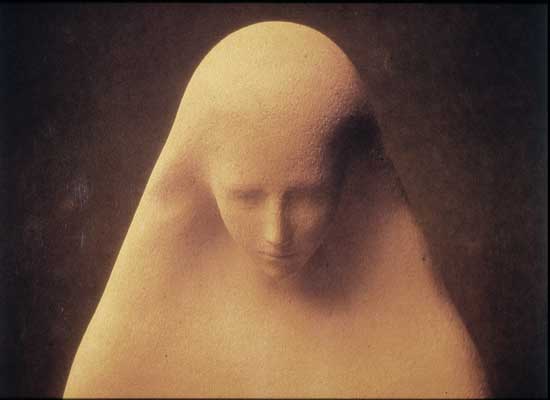
Oct 28, 2017 | Non categorizzato

Ave Cerquetti, ‘Mater Christi’ – Rome, 1971
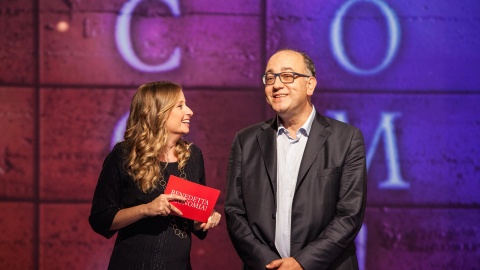
Oct 28, 2017 | Non categorizzato
 What connections can there be among the Bible and work, business, finance? Beginning tomorrow, an eight part series on Tv2000 with Luigino Bruni, focolarino, economist and passionate Bible enthusiast, instructor at Lumsa University in Rome, Italy, and Sophia University Institute in Loppiano, Italy. He will discuss with political world figures, labour union members and with workers, managers, business people who will present their testimonies of an economy oriented towards the human person. Based on the Economy of Communion, which considers as actors in the economy all those people that are not content with just turning a profit or themselves, but are open to the needs of the poorer folks, involving business owners, leaders and workers, students and ordinary citizens in the application of an economic culture that is marked by communion and reciprocity. In each episode a new connection will be made between a Bible passage and an aspect of the economy. The series will offer an opportunity to reflect on the original reasons, but also the current reasons for the inequity in the social fabric: insecurity, speculative logic, injustice, market intrusion in the public sphere and insecurity. There will also be business people and workers in the studio and via satellite to focus attention on small and medium-sized companies that have already exprienced success combining justice and market, profit and the common good, employment and solidarity. Beginning from the account of the Israelites in Egypt, found in the Book of Exodus, it considers the defence of workers rights. The second episode is an economic reading of the parable of the Prodigal Son and a comparison of themes of mercy and forgiveness with stories of business owners who have founded their business on a model of acceptance and sharing. A passage from Isaiah will raise a discussion in the episode dedicated to the “sacrificial model” adopted by many career managers, and by others that have been refuted in favour of free choice. A review of the story of Job, who falls into ruin and believes he is guilty, will be used to reflect on the hidden risks of the cult of merit. A page from the book of Jeremiah dedicated to false idols, will analyze the some of the motives that push many men and women of today into buying and consumerism on holy days, succumbing to the logic of the market square. Poverty and wealth will be themes of the sixth episode, in which the provocation of the Beatitudes will be confronted with the tendency to hide the value and meaning of poverty, sobriety and acceptance. The reading of the story of the Tower of Babel, mother of all failed businesses, will help to understand the errors that still today can lead a business into failure or towards mistaken ethical and social choices, and to discuss the social and economic consequences of organized crime. Finally, in the last episode, the reading of the story of Noah’s Ark will provide the opportunity to reflect on the “builders of arks of hope” that are still present in our day, with several stories of people that were able to veer in a different direction after very negative expriences, towards a more positive future for themselves and others.
What connections can there be among the Bible and work, business, finance? Beginning tomorrow, an eight part series on Tv2000 with Luigino Bruni, focolarino, economist and passionate Bible enthusiast, instructor at Lumsa University in Rome, Italy, and Sophia University Institute in Loppiano, Italy. He will discuss with political world figures, labour union members and with workers, managers, business people who will present their testimonies of an economy oriented towards the human person. Based on the Economy of Communion, which considers as actors in the economy all those people that are not content with just turning a profit or themselves, but are open to the needs of the poorer folks, involving business owners, leaders and workers, students and ordinary citizens in the application of an economic culture that is marked by communion and reciprocity. In each episode a new connection will be made between a Bible passage and an aspect of the economy. The series will offer an opportunity to reflect on the original reasons, but also the current reasons for the inequity in the social fabric: insecurity, speculative logic, injustice, market intrusion in the public sphere and insecurity. There will also be business people and workers in the studio and via satellite to focus attention on small and medium-sized companies that have already exprienced success combining justice and market, profit and the common good, employment and solidarity. Beginning from the account of the Israelites in Egypt, found in the Book of Exodus, it considers the defence of workers rights. The second episode is an economic reading of the parable of the Prodigal Son and a comparison of themes of mercy and forgiveness with stories of business owners who have founded their business on a model of acceptance and sharing. A passage from Isaiah will raise a discussion in the episode dedicated to the “sacrificial model” adopted by many career managers, and by others that have been refuted in favour of free choice. A review of the story of Job, who falls into ruin and believes he is guilty, will be used to reflect on the hidden risks of the cult of merit. A page from the book of Jeremiah dedicated to false idols, will analyze the some of the motives that push many men and women of today into buying and consumerism on holy days, succumbing to the logic of the market square. Poverty and wealth will be themes of the sixth episode, in which the provocation of the Beatitudes will be confronted with the tendency to hide the value and meaning of poverty, sobriety and acceptance. The reading of the story of the Tower of Babel, mother of all failed businesses, will help to understand the errors that still today can lead a business into failure or towards mistaken ethical and social choices, and to discuss the social and economic consequences of organized crime. Finally, in the last episode, the reading of the story of Noah’s Ark will provide the opportunity to reflect on the “builders of arks of hope” that are still present in our day, with several stories of people that were able to veer in a different direction after very negative expriences, towards a more positive future for themselves and others.
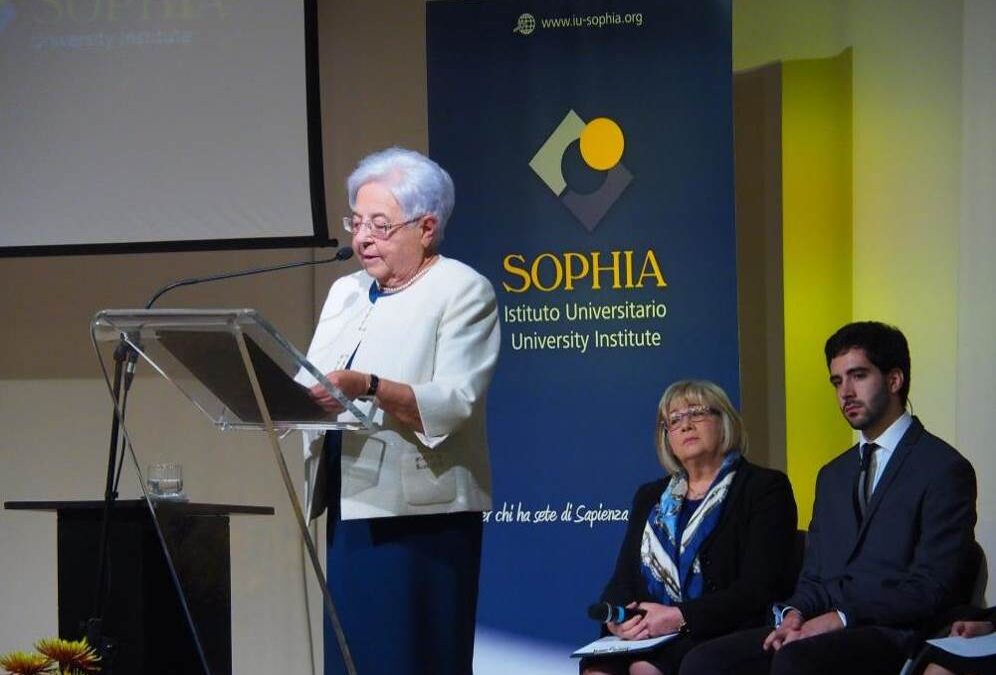
Oct 27, 2017 | Non categorizzato
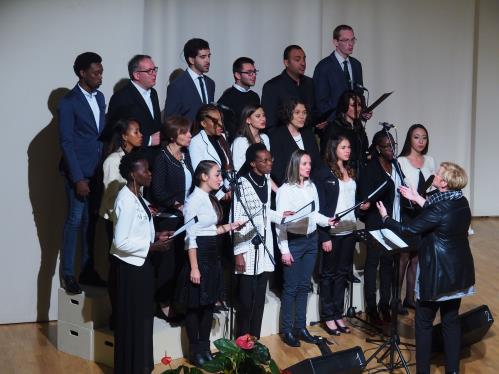 As processes of isolation increase around the world, Sophia University Institute opens a courageous new Centre for Global Studies which will “provide tools for understanding, managing and changing processes of global relations,” explained Pasquale Ferrara, Italian Ambassador to Algeria and president of the new Centre. “The new centre is the result of ten years of academic experience, and its goal is the training of a new generation of leaders that is capable of facing the complexity, and motivated to work for dialogue and peace.” “No country, no group can allow itself to become isolated from the other,” said Paolo Frizzi, professor of Religions and Global Processes, and Director of the Centre. “We are in the middle of an uncertain passage, which is transient and happening on many levels.
As processes of isolation increase around the world, Sophia University Institute opens a courageous new Centre for Global Studies which will “provide tools for understanding, managing and changing processes of global relations,” explained Pasquale Ferrara, Italian Ambassador to Algeria and president of the new Centre. “The new centre is the result of ten years of academic experience, and its goal is the training of a new generation of leaders that is capable of facing the complexity, and motivated to work for dialogue and peace.” “No country, no group can allow itself to become isolated from the other,” said Paolo Frizzi, professor of Religions and Global Processes, and Director of the Centre. “We are in the middle of an uncertain passage, which is transient and happening on many levels. 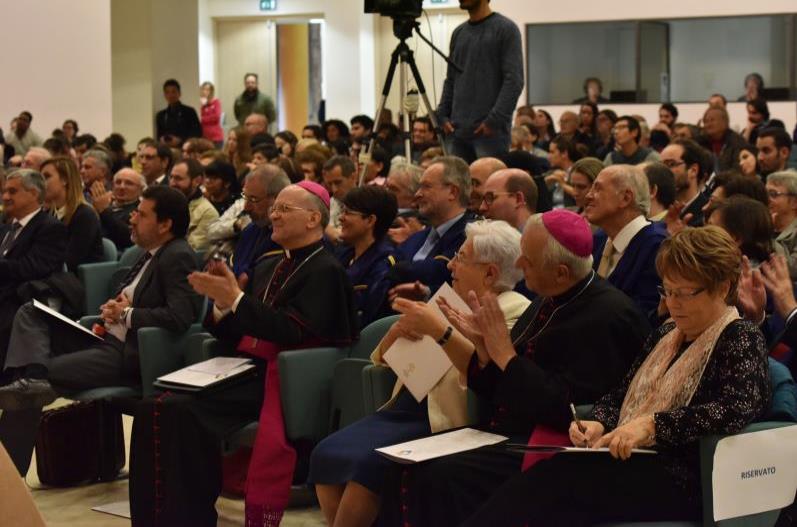 Sophia Institute, the result of Chiara Lubich’s intuition, has tripled its offerings this year: Master Degree in Economics and Management, Trinitarian Ontology and Culture of Unity, with their respective doctorates. President Msgr Piero Coda explains: “The complex nature of the national and global horizon requires a relentless effort oriented towards the unity of the human family guided by a new thought. In these ten years, Sophia has grown into an Intercultural, inter and trans-disciplinary centre where an integral relationship is nurtured among study, experience and research.”
Sophia Institute, the result of Chiara Lubich’s intuition, has tripled its offerings this year: Master Degree in Economics and Management, Trinitarian Ontology and Culture of Unity, with their respective doctorates. President Msgr Piero Coda explains: “The complex nature of the national and global horizon requires a relentless effort oriented towards the unity of the human family guided by a new thought. In these ten years, Sophia has grown into an Intercultural, inter and trans-disciplinary centre where an integral relationship is nurtured among study, experience and research.”
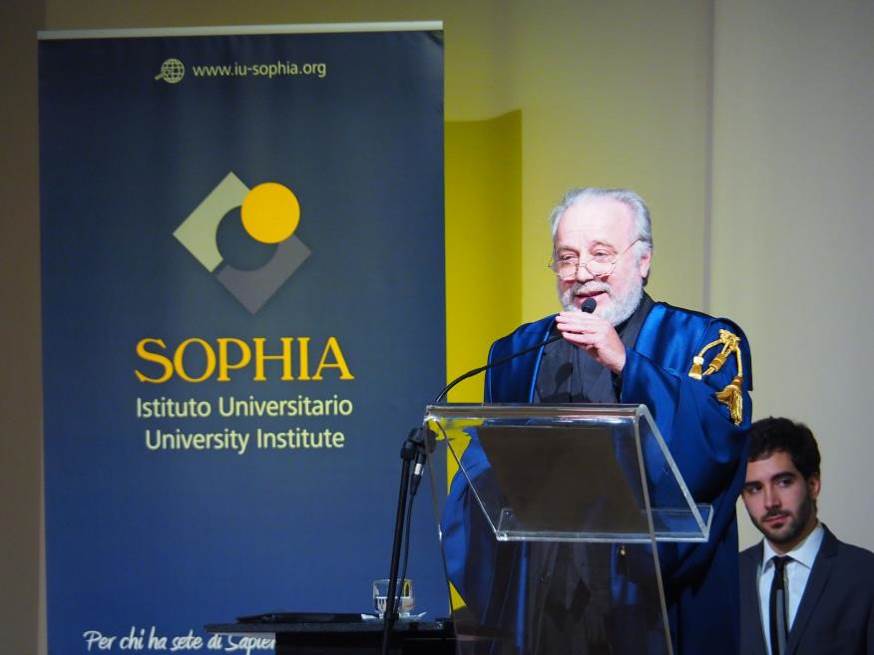
Msgr Piero Coda
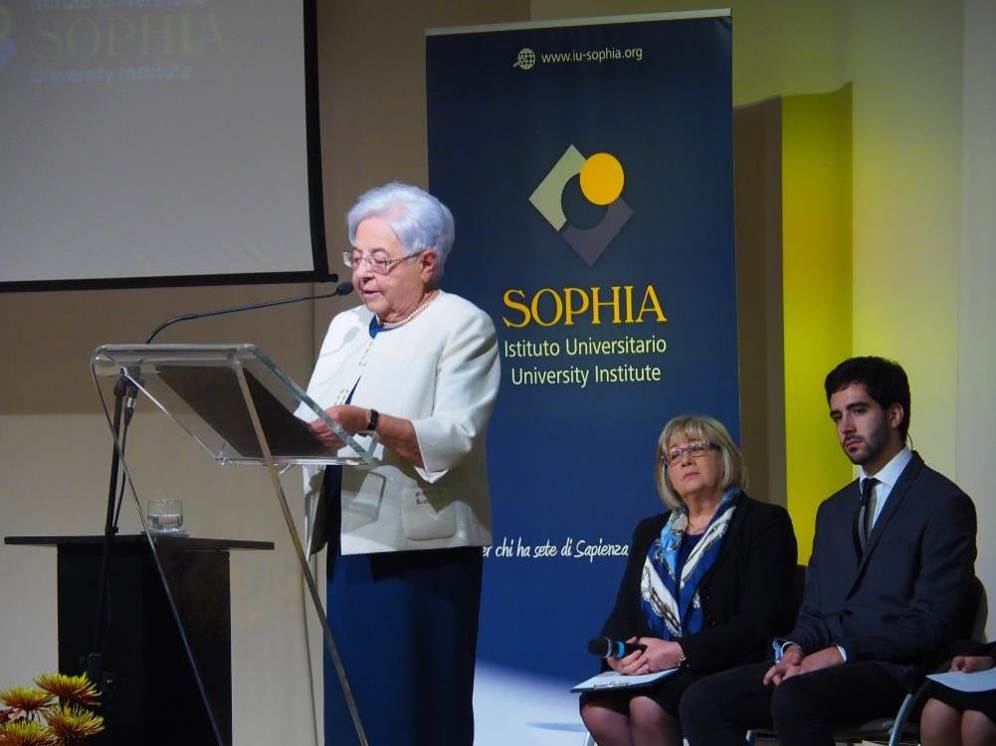
Maria Voce
Oct 26, 2017 | Non categorizzato
Together for Europe (TfE) is an initiative of over 300 Christian Movements and Communities belonging to different Churches in Europe. The Steering Committee which is entrusted with a coordination role is composed of the following members: Christophe D’Aloisio (Fraternité orthodoxe en Europe occidentale), Marco Impagliazzo (Community of Sant’Egidio), Michelle Moran (ICCRS / Sion Community), Gerhard Pross (CVJM/YMCA Esslingen), Thomas Roemer (CVJM/YMCA Munich), Gérard Testard (Efesia), Maria Voce (Focolare Movement) and Fr. Heinrich Walter (Schoenstatt). In 2017, the “Friends” of TfE network will hold their annual conference in Vienna, a city that is a bridge connecting Eastern and Western Europe. A total of 120 participants from around 20 Eastern and Western European countries and 40 Movements are expected to attend. Their main aim will be to pool ideas on three topics:
- What culture is generated by the history of Together for Europe?
- What is our specific contribution to Europe?
- Dialogue between East and West: a mutual enrichment
This network of people embraces all of Europe from England to Russia, from Portugal to Greece. Their shared mission: through the upcoming meeting, to strengthen communion among their individual charisms and build united and multifaceted Europe, with strong social cohesion and cultural diversity. The meeting will open, on 9th November 2017, in the Stephansdom Cathedral of Vienna, with an Ecumenical prayer for Europe. All those who wish for peace in Europe and in the world, are invited to take part in this moment of prayer. Cardinal Christoph Schoenborn, Archbishop of Vienna, Auxiliary Bishop Emeritus Helmuth Kraetzl, Catholic Church, Archpriest Vicar Ivan Petkin, Bulgarian Orthodox Church in Austria, Chorbishop Emanuel Aydin, Syrian Orthodox Church in Austria, Patriarchal Delegate Tiran Petrosyan, Armenian Apostolic Church, Patrick Curran, Archdeacon of the Eastern Archdeaconry of the Anglican Church in Europe, together with all the present will bring before God needs and opportunities of our continent. The intention of the prayer is extremely timely: unity in diversity, peace in justice. Following personalities will address the gathering: Thomas Hennefeld, Superintendent of the Reformed Church of Austria and President of the Ecumenical Council of Churches in Austria, and Joerg Wojahn, Head of the European Commission Representation in Austria. For further information on Together for Europe
Oct 26, 2017 | Non categorizzato
A group of young Columbian architects of the “De La Salle” University of Bogotà and Italians of “G. D’Annunzio” University of Pescara are undertaking a new stage of the traveling workshop, “Habitandando,” organized by the network of the Focolare Movement Dialogue in Architecture. From 24 to 28 October there will be a trip from Bogotà into the interior of the country, with stopovers in some colonial towns and the Amazon plains. From 30 October to 5 November a week of study-work will follow in the Altos de Cazuca district in the outskirts of Bogotà. This is a depressed area, lacking in primary infrastructure and renowned also for security-related problems. The objective is to design and experiment through creative projects and teamwork, architectonic and urban solutions aimed at generating change and creating spaces for the local community. This will be an extreme context at the limit of the resources, technological possibilities, and social and cultural environmental sustainability.
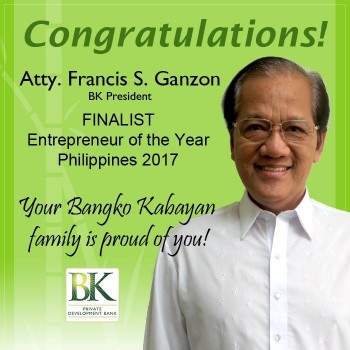
Oct 26, 2017 | Focolare Worldwide
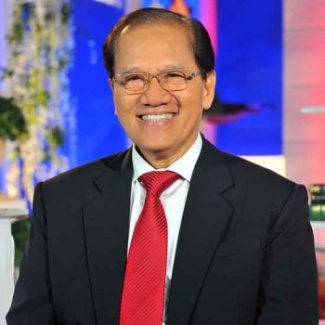 It is currently one of the biggest rural banks of the Philippines. But when Francis Ganzon (67 years old) took the helm in 1989, it only had one branch. Since then, the Institute has engaged in the support and empowering of the small and medium enterprises (SME), through the offer of quality financial systems “with a workforce united with God,” as the Bank site describes its “mission”. After obtaining his law degree, Ganzon dedicated himself to saving an institute, the Ibaan Rural Bank, Inc. (IRB), which was involved in cases of fraud. “I promoted a different work style, focusing on compliance with the laws, professionalism and centrality of the people, and promoted new practices in line with Christian values.” Ganzon embraced the spirit of the Economy of Communion, the international network of entrepreneurs engaged in putting the Social Doctrine of the Church into practice. “Subsequently, we created the Ibaan Rural Bank Foundation, with the objective of extending the microcredit programme also to deserving students with economic difficulties, through scholarships. The Asian financial crisis of 1997 also struck our bank, but we did not close down also thanks to the trust of our clients. That same year, the Bank celebrated its 40th Anniversary, and we changed its name to Bangko Kabayan (fraternity bank) as a further effort to supply people in need with the possibility to access microcredits in order to elevate their own standard of living.”
It is currently one of the biggest rural banks of the Philippines. But when Francis Ganzon (67 years old) took the helm in 1989, it only had one branch. Since then, the Institute has engaged in the support and empowering of the small and medium enterprises (SME), through the offer of quality financial systems “with a workforce united with God,” as the Bank site describes its “mission”. After obtaining his law degree, Ganzon dedicated himself to saving an institute, the Ibaan Rural Bank, Inc. (IRB), which was involved in cases of fraud. “I promoted a different work style, focusing on compliance with the laws, professionalism and centrality of the people, and promoted new practices in line with Christian values.” Ganzon embraced the spirit of the Economy of Communion, the international network of entrepreneurs engaged in putting the Social Doctrine of the Church into practice. “Subsequently, we created the Ibaan Rural Bank Foundation, with the objective of extending the microcredit programme also to deserving students with economic difficulties, through scholarships. The Asian financial crisis of 1997 also struck our bank, but we did not close down also thanks to the trust of our clients. That same year, the Bank celebrated its 40th Anniversary, and we changed its name to Bangko Kabayan (fraternity bank) as a further effort to supply people in need with the possibility to access microcredits in order to elevate their own standard of living.”  “Many clients – continued Ganzon – did not have collaterals, but we considered them as worthy people. This created a rapport of mutual trust: the bank trusted people and granted loans, and the clients trusted the bank. In this way Bangko Kabayan had a strong social impact, improving the lives of many people and many small enterprises. Then it became the preferred credit provider of the SME in our region, opening 23 branches in the provinces of Batangas, Quezon and Laguna.” In the near future, Bangko Kabayan will be committed to building a balanced portfolio of loans and capital, and in investing further in the new technologies, particularly in internet banking. Up to now Bangko Kabayan has been receiving various awards. In 2007, it received the best Capital Build-up in the PremiLandbank and was ranked among the best credit institutes at global level for microcredit. From 2008 to 2011 and again in 2013 and 2015, it was nominated in the region where it has its main office, a partner of the Land Bank of the Philippines. It moreover received Microenterprise access to the MF EAGLE award for bank service from 2003 to 2007 and again in 2010 and 2011. «Determination and integrity will always be compensated,” concluded Ganzon. “I am anxiously waiting for the day in which bank transactions can be done with a handshake instead of on paper.”
“Many clients – continued Ganzon – did not have collaterals, but we considered them as worthy people. This created a rapport of mutual trust: the bank trusted people and granted loans, and the clients trusted the bank. In this way Bangko Kabayan had a strong social impact, improving the lives of many people and many small enterprises. Then it became the preferred credit provider of the SME in our region, opening 23 branches in the provinces of Batangas, Quezon and Laguna.” In the near future, Bangko Kabayan will be committed to building a balanced portfolio of loans and capital, and in investing further in the new technologies, particularly in internet banking. Up to now Bangko Kabayan has been receiving various awards. In 2007, it received the best Capital Build-up in the PremiLandbank and was ranked among the best credit institutes at global level for microcredit. From 2008 to 2011 and again in 2013 and 2015, it was nominated in the region where it has its main office, a partner of the Land Bank of the Philippines. It moreover received Microenterprise access to the MF EAGLE award for bank service from 2003 to 2007 and again in 2010 and 2011. «Determination and integrity will always be compensated,” concluded Ganzon. “I am anxiously waiting for the day in which bank transactions can be done with a handshake instead of on paper.”
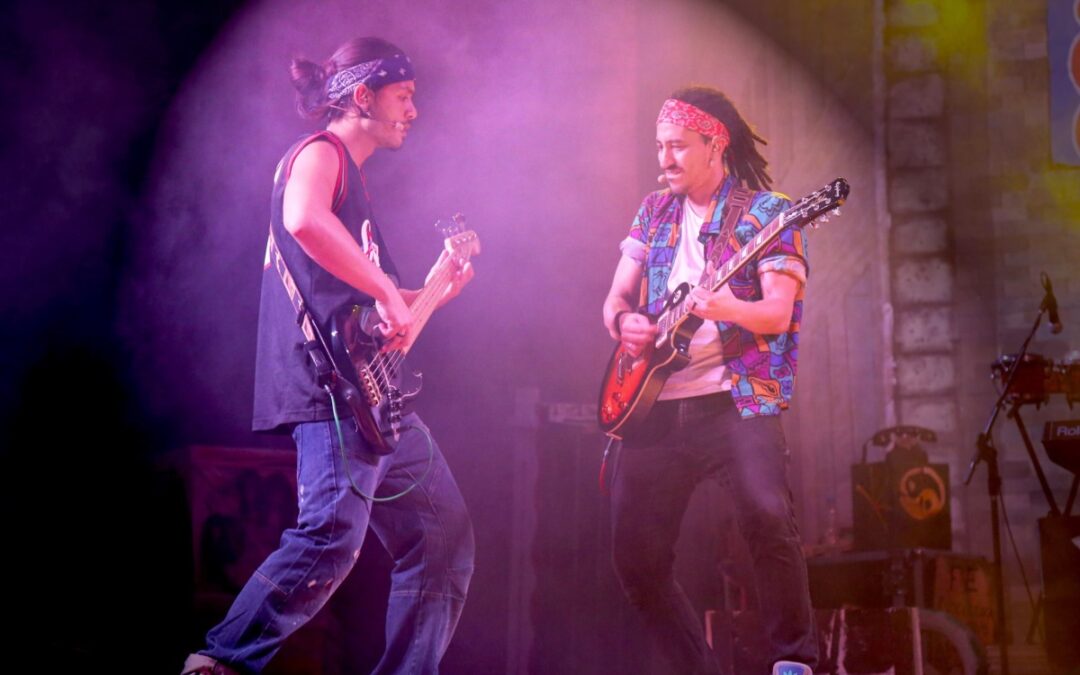
Oct 25, 2017 | Non categorizzato
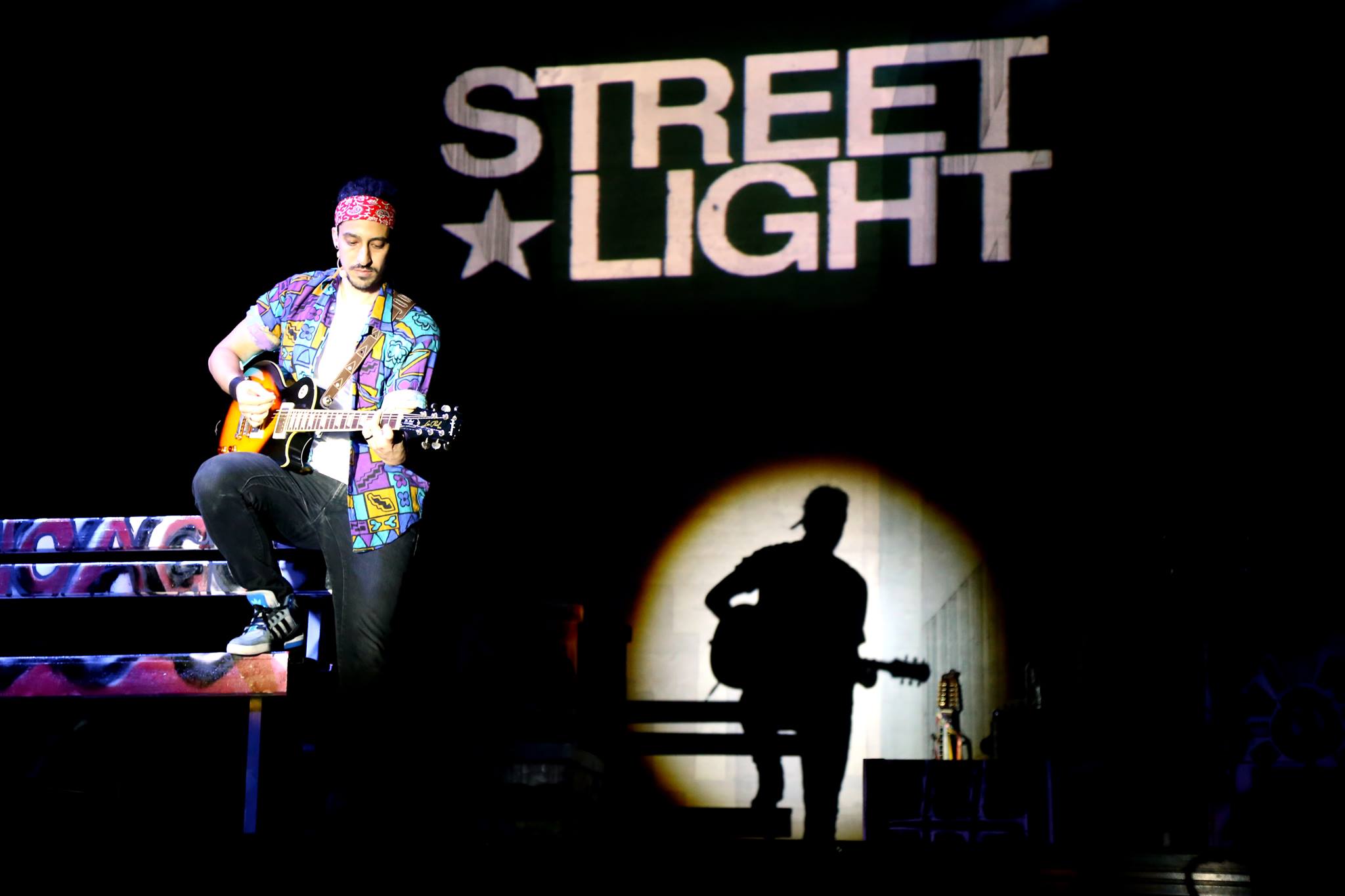 Organized by the Fazenda da Esperança, the Gen Rosso band’s Brazilian tour “Every life has a hope” is now underway. After a first stopover in the State of Santa Caterina, the tour will move on to the Central and Northern regions of the country. Joinville, ten hours by coach from Sao Paolo, is a modern city and a reference point for all dance enthusiasts, and not only the South Americans. Apart from Moscow, it is the only one that hosts a school of the Bolshoi Theater, where the old Russian method is taught. In the city of dance, from last 24 September to 1 October, nine Bolshoi ballet dancers and four others of the Cultural Centre contributed in setting up a musical. Streetlight is an original project that was staged with over 200 youths with drug addiction problems. In three days of intense work, they learnt and practiced dance steps and music, side by side with artists and youngsters, inspired by the motto one for the other. At the end, the curtain rose and the show was staged. It was not a job performed “for” the youth, but “with” the youth, said Globo TV – the most popular TV channel in Brazil – which dedicated several spots and interviews to the programme. A workshop dedicated to the educators and social workers working in the city, was held simultaneously on themes regarding the psychological, social and family processes connected to the rehab from the various types of addictions.
Organized by the Fazenda da Esperança, the Gen Rosso band’s Brazilian tour “Every life has a hope” is now underway. After a first stopover in the State of Santa Caterina, the tour will move on to the Central and Northern regions of the country. Joinville, ten hours by coach from Sao Paolo, is a modern city and a reference point for all dance enthusiasts, and not only the South Americans. Apart from Moscow, it is the only one that hosts a school of the Bolshoi Theater, where the old Russian method is taught. In the city of dance, from last 24 September to 1 October, nine Bolshoi ballet dancers and four others of the Cultural Centre contributed in setting up a musical. Streetlight is an original project that was staged with over 200 youths with drug addiction problems. In three days of intense work, they learnt and practiced dance steps and music, side by side with artists and youngsters, inspired by the motto one for the other. At the end, the curtain rose and the show was staged. It was not a job performed “for” the youth, but “with” the youth, said Globo TV – the most popular TV channel in Brazil – which dedicated several spots and interviews to the programme. A workshop dedicated to the educators and social workers working in the city, was held simultaneously on themes regarding the psychological, social and family processes connected to the rehab from the various types of addictions. 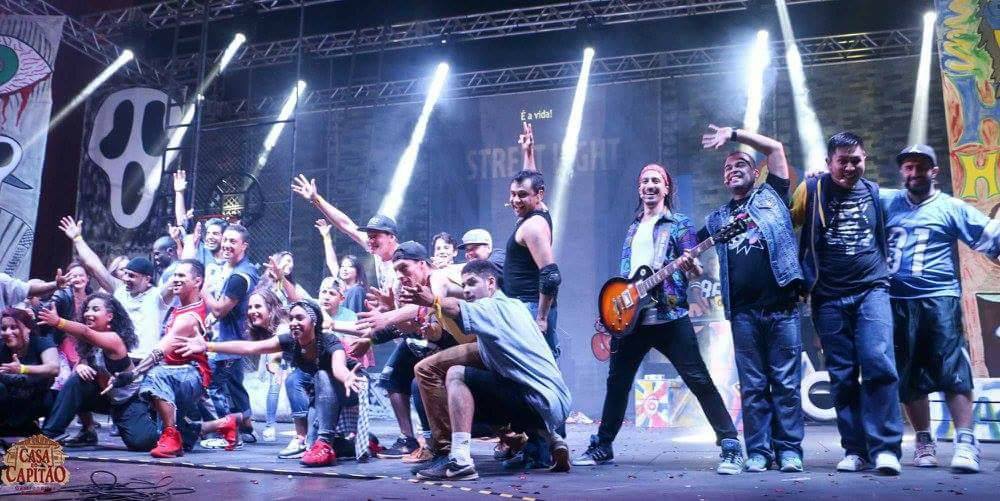 Fr. Luiz, current president of the Fazenda together with Angelucia, Nelson and Iracì, some of the pioneers of the “factory” of hope, which has spread from Brazil to Latin America, the Philippines, Africa, Russia and Central Europe, worked side by side with Gen Rosso, which for that occasion expanded its team, involving also other members of the local Focolare community. Enthusiasm among the youths involved onstage was sky-high. “It is really worthwhile to try and overcome one’s limits. I thank the Fazenda for giving us this opportunity to work with Gen Rosso”.
Fr. Luiz, current president of the Fazenda together with Angelucia, Nelson and Iracì, some of the pioneers of the “factory” of hope, which has spread from Brazil to Latin America, the Philippines, Africa, Russia and Central Europe, worked side by side with Gen Rosso, which for that occasion expanded its team, involving also other members of the local Focolare community. Enthusiasm among the youths involved onstage was sky-high. “It is really worthwhile to try and overcome one’s limits. I thank the Fazenda for giving us this opportunity to work with Gen Rosso”. 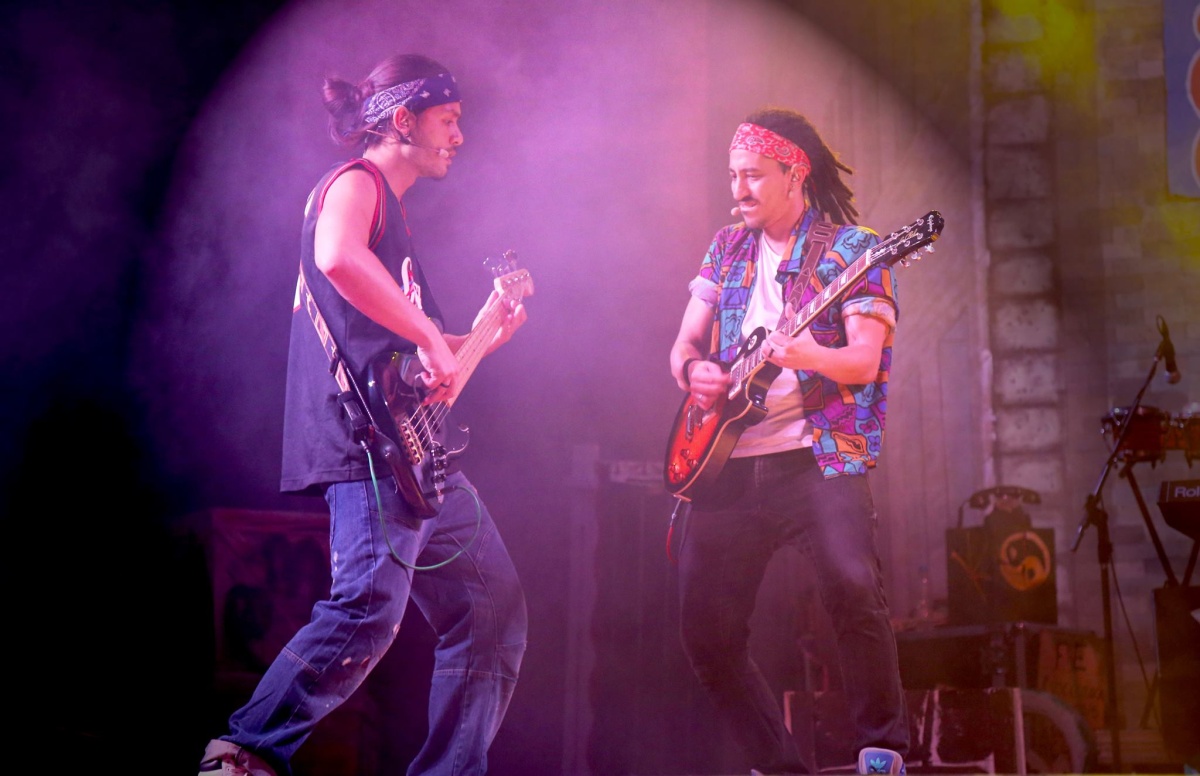 So taken by the music and the rhythm, a boy who in the past headed a violent gang, said: “The adrenalin I had experienced while doing bad things, was for me, the utmost. But I saw that one can be even happier in doing good, without drugs and alcohol. This is something new for me.” William, of the Bolshoi school: “I learned that one can dance not only with technique and discipline but also with one’s heart. It was a joyous and likewise harmonious experience expressed also with a smile.” A ballerina of the Cultural Centre said: ”Our professionalism encountered the force of a lifestyle of many youths: a surprise for me and a miracle of art for one another.” Also the public expressed surprise and enthusiasm: “I saw my city get involved.” “It is art that becomes service to society.” “You have strengthened unity among the various civil communities; a very precious experience which we must pursue in the future.” Meanwhile, after the concert in every city of the tour, the group continued the work to ensure that connections between the various social institutions engaged in the education and rehabilitation from drugs and other addictions, were consolidated and strengthened, so as not to allow the streetlights to dim. Streetlight Video.
So taken by the music and the rhythm, a boy who in the past headed a violent gang, said: “The adrenalin I had experienced while doing bad things, was for me, the utmost. But I saw that one can be even happier in doing good, without drugs and alcohol. This is something new for me.” William, of the Bolshoi school: “I learned that one can dance not only with technique and discipline but also with one’s heart. It was a joyous and likewise harmonious experience expressed also with a smile.” A ballerina of the Cultural Centre said: ”Our professionalism encountered the force of a lifestyle of many youths: a surprise for me and a miracle of art for one another.” Also the public expressed surprise and enthusiasm: “I saw my city get involved.” “It is art that becomes service to society.” “You have strengthened unity among the various civil communities; a very precious experience which we must pursue in the future.” Meanwhile, after the concert in every city of the tour, the group continued the work to ensure that connections between the various social institutions engaged in the education and rehabilitation from drugs and other addictions, were consolidated and strengthened, so as not to allow the streetlights to dim. Streetlight Video.
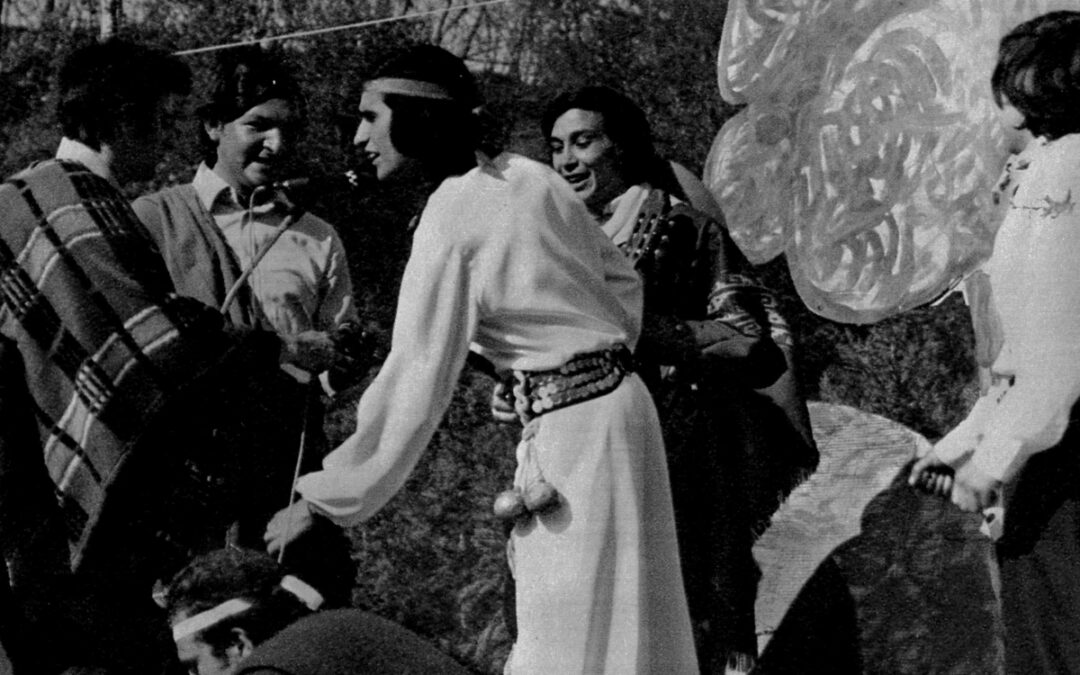
Oct 24, 2017 | Non categorizzato
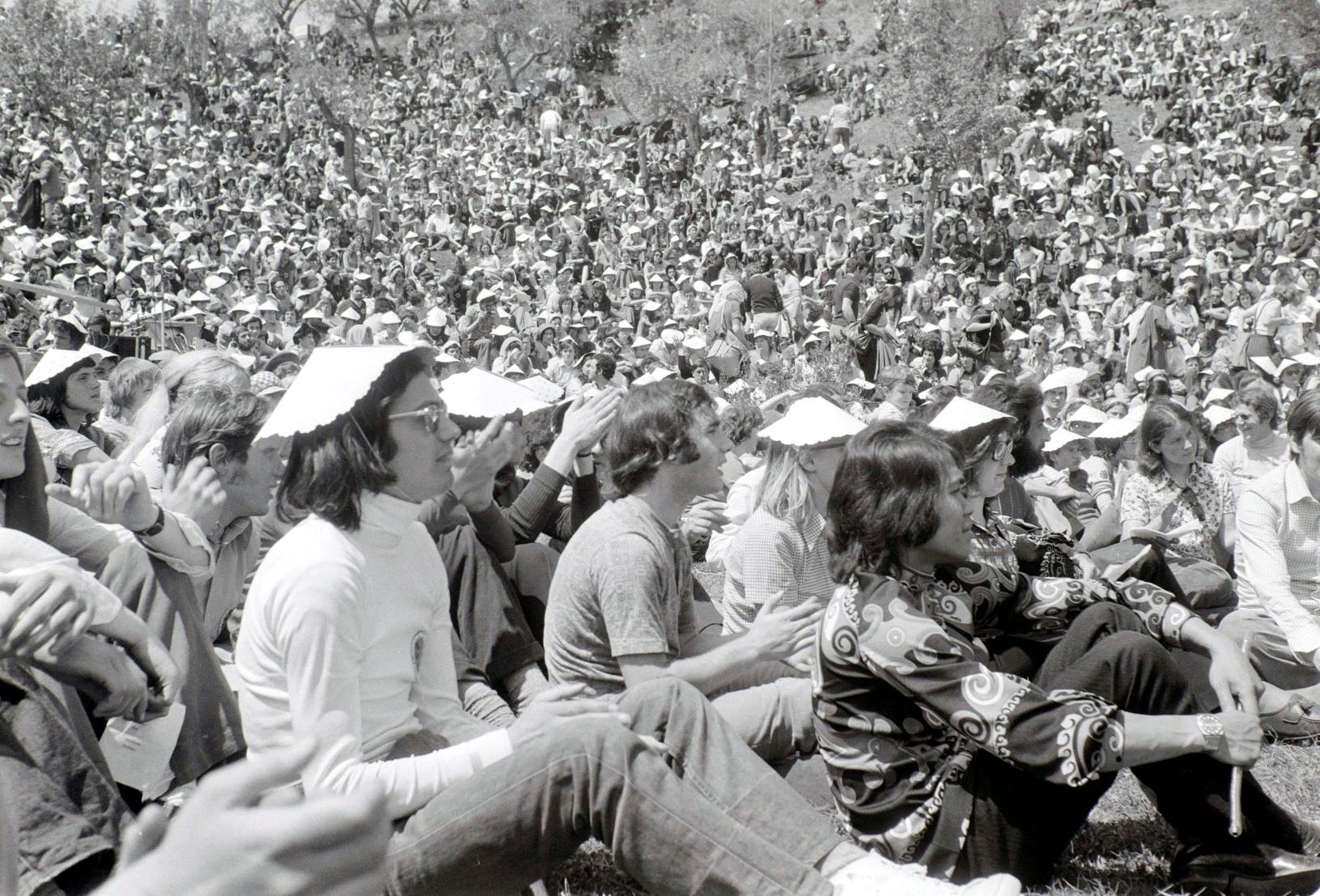 An unending line of buses filled with young people clamoured up the narrow roads that rose from Incisa Valdarno, Italy, to Loppiano. Such a long carcade hadn’t been expected and threatened to throw off the plans. Who would have expected 10,000 young people to come for what would then turn into a yearly event in many cities of the world? It was a real invasion that made all the jaws of Loppiano’s citizens drop. It began on a day of spring sunshine that burst from hearts and faces after a vigil of wind and rain: the first Genfest in history! And I was there! Yes, I was there! “Vivir para cantarlo,” García Márquez would say. “I live to sing it!” I can still see Loppiano’s natural amphitheatre in front of me, filled to the brim with young people from Italy and several other European countries, many hours of travel behind them – and also representatives from other countries around the world: like me from Argentina.
An unending line of buses filled with young people clamoured up the narrow roads that rose from Incisa Valdarno, Italy, to Loppiano. Such a long carcade hadn’t been expected and threatened to throw off the plans. Who would have expected 10,000 young people to come for what would then turn into a yearly event in many cities of the world? It was a real invasion that made all the jaws of Loppiano’s citizens drop. It began on a day of spring sunshine that burst from hearts and faces after a vigil of wind and rain: the first Genfest in history! And I was there! Yes, I was there! “Vivir para cantarlo,” García Márquez would say. “I live to sing it!” I can still see Loppiano’s natural amphitheatre in front of me, filled to the brim with young people from Italy and several other European countries, many hours of travel behind them – and also representatives from other countries around the world: like me from Argentina.
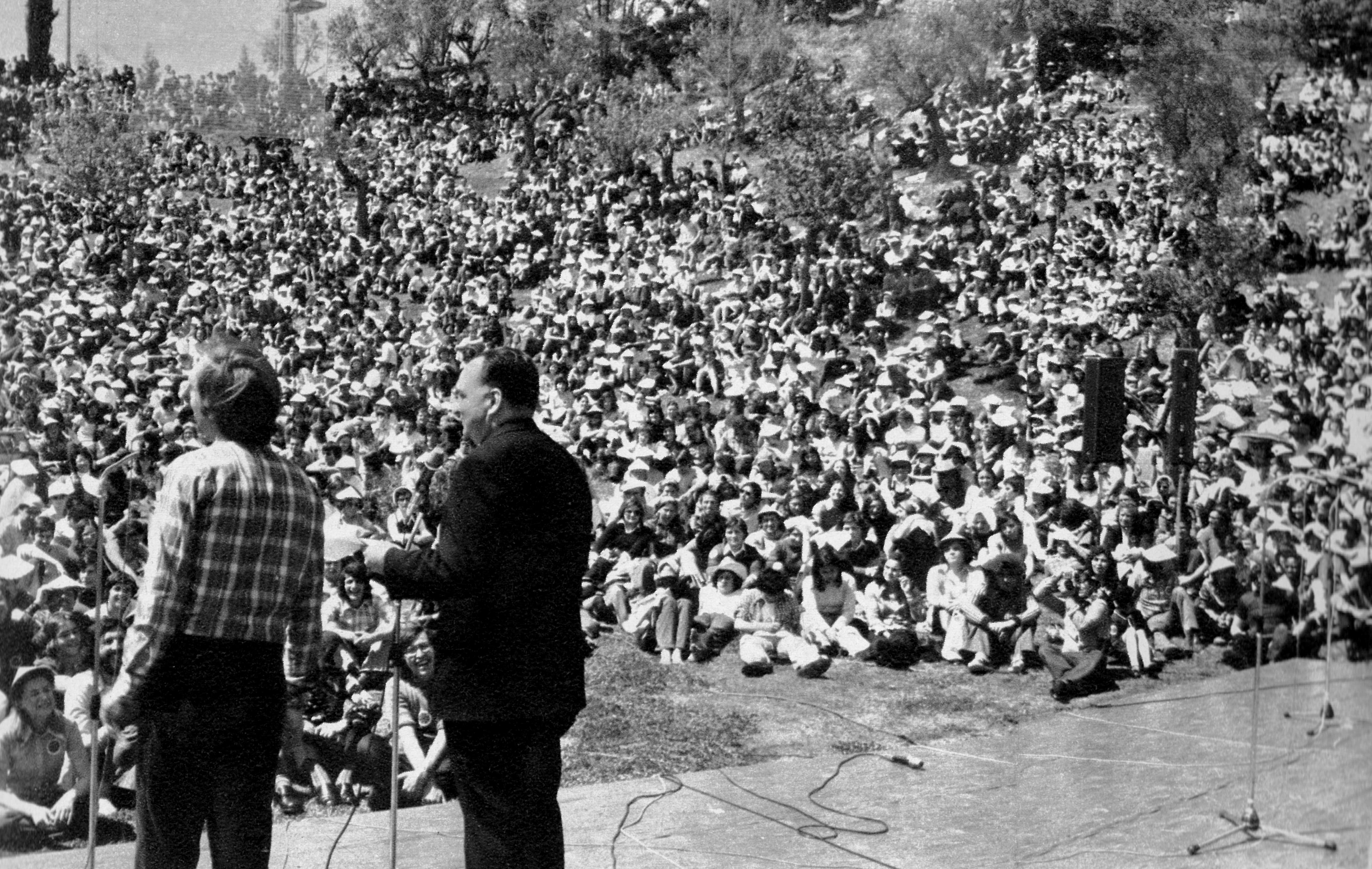
Fr Pasquale Foresi delivered a message from Pope Paul VI
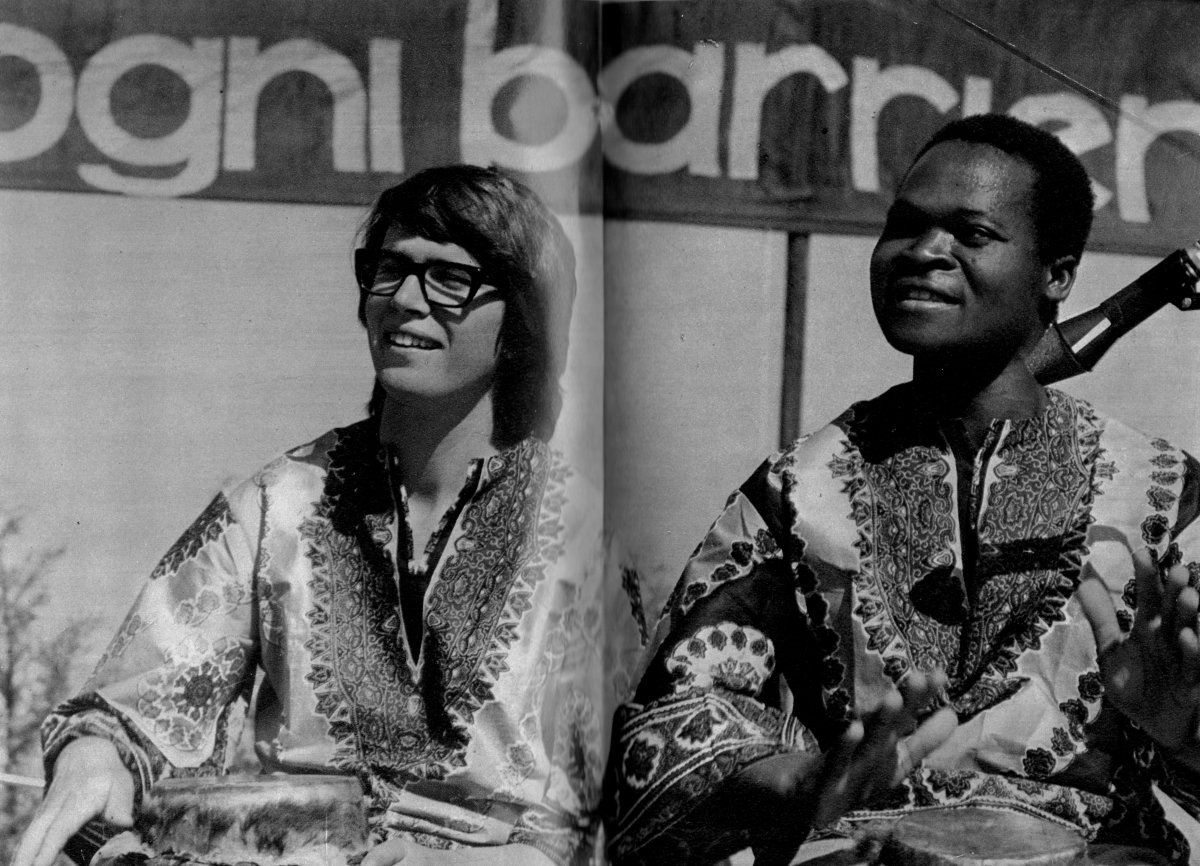
Participants from South Africa
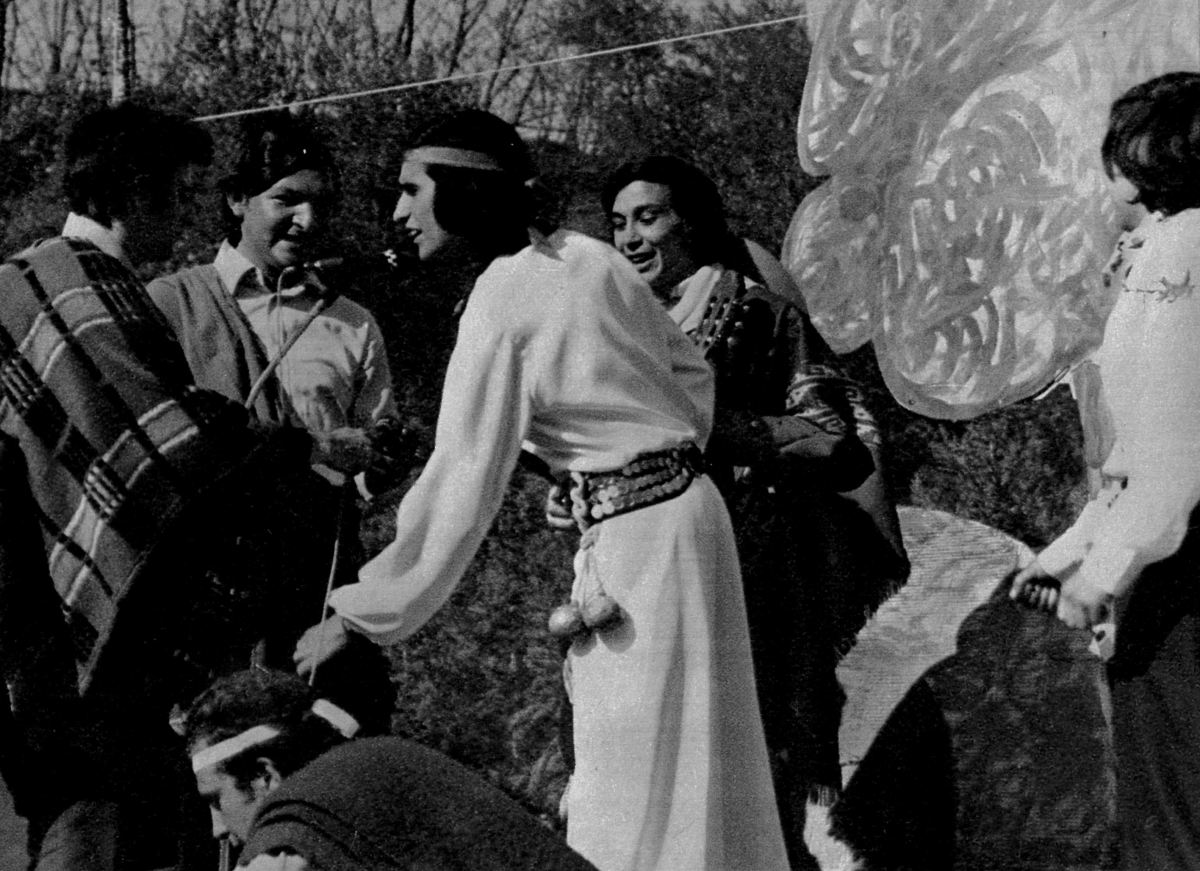
The group from Argentina
Gustavo Clariá

 For the first time after 36 years, Poland was the host country of the annual ecumenical convention of the Bishop-friends of the Focolare Movement. After Jerusalem, Istanbul, London, Augsburg and other “symbolic” cities of the ecumenical commitment, Katowice, capital of Slesia, an ancient city of almost 300,000 inhabitant, welcomed, from 15 to 18 November, 35 bishops of different Churches: Orthodox, Syriac-Orthodox, Evangelical-Lutherans, Anglican, Methodists and Catholics from Germany, Austria, England, Ireland, Sweden, Poland, Hungary, Lithuania, Latvia, Czech Republic, but also Brazil, Cyprus, India, Democratic Republic of Congo, Thailand and the USA. Along with around thirty lay people the bishops gathered in Katowice represented a cross section of various social and ecclesial communities, driven by the desire to make an experience of fraternal communion. “Together we confess, together we go forth” was the title of the Convention, which was organized not only by the Focolare Movement, but also by the local Catholic Archdiocese and the Evangelical-Lutheran Church of Augustinian Confession, the Orthodox Church of Sosnowiec, the Faculty of Theology of the Slesia University and the city of Katowice itself, represented by mayor Marcin Krupa.
For the first time after 36 years, Poland was the host country of the annual ecumenical convention of the Bishop-friends of the Focolare Movement. After Jerusalem, Istanbul, London, Augsburg and other “symbolic” cities of the ecumenical commitment, Katowice, capital of Slesia, an ancient city of almost 300,000 inhabitant, welcomed, from 15 to 18 November, 35 bishops of different Churches: Orthodox, Syriac-Orthodox, Evangelical-Lutherans, Anglican, Methodists and Catholics from Germany, Austria, England, Ireland, Sweden, Poland, Hungary, Lithuania, Latvia, Czech Republic, but also Brazil, Cyprus, India, Democratic Republic of Congo, Thailand and the USA. Along with around thirty lay people the bishops gathered in Katowice represented a cross section of various social and ecclesial communities, driven by the desire to make an experience of fraternal communion. “Together we confess, together we go forth” was the title of the Convention, which was organized not only by the Focolare Movement, but also by the local Catholic Archdiocese and the Evangelical-Lutheran Church of Augustinian Confession, the Orthodox Church of Sosnowiec, the Faculty of Theology of the Slesia University and the city of Katowice itself, represented by mayor Marcin Krupa.  The convention opened with the reflection of Lesley Ellison, an Anglican, on “The Spirituality of unity: an ecumenical spirituality,” and had as its central theme “Mary, the Mother of Jesus,” with the theological studies in the various Catholic, Evangelic, Anglican and Orthodox perspectives. There were many encounters, celebrations and moments of prayer according to the various traditions, sealed by a “pact of mutual love” to live fraternal communion and to “love the Church of the other as one’s own Brendan Leahly is the Catholic bishop of Limerick (Irelanda), expert and counselor of ecumenical dialogue in his country. Interviewed on the phone, he said: “I want to underline the warm welcome received in Katowice, which I had already visited in 1991, on the occasion of Chiara Lubich’s encounter with the Focolare centers of Western and Eastern Europe. It is a highly developed city, which valorizes diversity and hospitality. Just as what we experienced in these days, the hospitality of the Faculty of Theology which hosted us, but also of the Catholic, Lutheran and Orthodox Churches.” The convention was the occasion to get to know one another better, and acquire a deeper knowledge of the different ecclesial and socio-cultural realities we live in, especially in the Middle East and Eastern Europe. We realize that we cannot offer solutions for the problems of those countries (especially regarding the Middle East), but we can at least carry one another’s burdens. Feeling the suffering of others has enlarged my heart. Now I no longer feel only like an Irish bishop, I carry within also the situations and problems of the other bishops. But with a new hope. In every country there are signs of hope, and the steps taken at ecumenical level go to prove this fact. For example in the Czech Republic a process of mutual forgiveness is underway for the errors committed. Ecumenism – he continued– is a reality that started its path many years ago, and will meet ever new situations and give new testimonials. It is, after all, an experience of giving and receiving. What strikes me is the strong Catholic faith which is deeply rooted here in Poland, but also the openness to dialogue with the representatives of the other communities.”
The convention opened with the reflection of Lesley Ellison, an Anglican, on “The Spirituality of unity: an ecumenical spirituality,” and had as its central theme “Mary, the Mother of Jesus,” with the theological studies in the various Catholic, Evangelic, Anglican and Orthodox perspectives. There were many encounters, celebrations and moments of prayer according to the various traditions, sealed by a “pact of mutual love” to live fraternal communion and to “love the Church of the other as one’s own Brendan Leahly is the Catholic bishop of Limerick (Irelanda), expert and counselor of ecumenical dialogue in his country. Interviewed on the phone, he said: “I want to underline the warm welcome received in Katowice, which I had already visited in 1991, on the occasion of Chiara Lubich’s encounter with the Focolare centers of Western and Eastern Europe. It is a highly developed city, which valorizes diversity and hospitality. Just as what we experienced in these days, the hospitality of the Faculty of Theology which hosted us, but also of the Catholic, Lutheran and Orthodox Churches.” The convention was the occasion to get to know one another better, and acquire a deeper knowledge of the different ecclesial and socio-cultural realities we live in, especially in the Middle East and Eastern Europe. We realize that we cannot offer solutions for the problems of those countries (especially regarding the Middle East), but we can at least carry one another’s burdens. Feeling the suffering of others has enlarged my heart. Now I no longer feel only like an Irish bishop, I carry within also the situations and problems of the other bishops. But with a new hope. In every country there are signs of hope, and the steps taken at ecumenical level go to prove this fact. For example in the Czech Republic a process of mutual forgiveness is underway for the errors committed. Ecumenism – he continued– is a reality that started its path many years ago, and will meet ever new situations and give new testimonials. It is, after all, an experience of giving and receiving. What strikes me is the strong Catholic faith which is deeply rooted here in Poland, but also the openness to dialogue with the representatives of the other communities.”  Åke Bonnier, Lutheran bishop of the diocese of Skara, in Sweden, said he was happy about the convention: «We were not bishops but brothers. What we shared in the convention was a reality, both during the breaks and intervals, and also during the celebrations. This was very important for me, it gave me new strength and enthusiasm. I now look forward to next year, when, I hope all of them and also others can come to Sweden. If they ask me if this meeting was important as a path for the unity of Christians, my answer is yes. Unity is not something that will come about only in the future, it is already a reality among us.”
Åke Bonnier, Lutheran bishop of the diocese of Skara, in Sweden, said he was happy about the convention: «We were not bishops but brothers. What we shared in the convention was a reality, both during the breaks and intervals, and also during the celebrations. This was very important for me, it gave me new strength and enthusiasm. I now look forward to next year, when, I hope all of them and also others can come to Sweden. If they ask me if this meeting was important as a path for the unity of Christians, my answer is yes. Unity is not something that will come about only in the future, it is already a reality among us.” 














 The news that was announced on June 13th by Pope Francis, who wished there to be an international day dedicated to the poor, appeared totally in line with his pontificate that is so attentive to the needs of the vulnerable and discarded by society. The response from associations, movements and institutions, as well single individuals and groups, was surprising. The
The news that was announced on June 13th by Pope Francis, who wished there to be an international day dedicated to the poor, appeared totally in line with his pontificate that is so attentive to the needs of the vulnerable and discarded by society. The response from associations, movements and institutions, as well single individuals and groups, was surprising. The 




 On 20 November 1959 the UN General Assembly adopted the Declaration of the Rights of the Child and approved in 1989, the International Convention on the rights of infants and adolescents. Based on the harmonization of different cultural and juridical experiences, the Convention enunciated for the first time, and in a coherent way, the fundamental rights to be recognized and guaranteed for all the children of the world. The document stated the four key issues: the lack of denunciation, greater interest, life and survival and development, and lastly, listening in all the decision-making processes. The Convention also provides for a control mechanism on the work of the States that have to present a periodic report on its implementation in their territories. According to UNICEF, every year millions of children continue to be victims of violence, abuse, abandonment, exploitation, wars and discrimination. A lot has been done, but still more must be done to achieve a concrete application of these principles.
On 20 November 1959 the UN General Assembly adopted the Declaration of the Rights of the Child and approved in 1989, the International Convention on the rights of infants and adolescents. Based on the harmonization of different cultural and juridical experiences, the Convention enunciated for the first time, and in a coherent way, the fundamental rights to be recognized and guaranteed for all the children of the world. The document stated the four key issues: the lack of denunciation, greater interest, life and survival and development, and lastly, listening in all the decision-making processes. The Convention also provides for a control mechanism on the work of the States that have to present a periodic report on its implementation in their territories. According to UNICEF, every year millions of children continue to be victims of violence, abuse, abandonment, exploitation, wars and discrimination. A lot has been done, but still more must be done to achieve a concrete application of these principles.



























 A month and a half has gone by since the passing of Hurricane Maria, which caused the death of ten people and the destruction of thousands of homes, with its 250 km winds and torrential rains.
A month and a half has gone by since the passing of Hurricane Maria, which caused the death of ten people and the destruction of thousands of homes, with its 250 km winds and torrential rains. 



















 The organisers explained that this initiative was inspired by the appeal launched by Pope Francis for solidarity with Syrian people. Liz Taite of the Focolare Movement explained: “In a moment in which various circumstances are sowing division and conflicts, the Focolare Movement, together with people of different faiths, intends to publicly promote a message of peace. This event is the sign that God is at work and that peace is possible.” Azzam Mohammad, director of the Ahl Al Bait Society said: “Together we want to bring down the barriers, eliminate the fear and diffidence, and increase comprehension and mutual respect. We worked with sincerity and heartiness as a team, and it was a success. This is a step that marks the history of our common endeavours and will be an example for all the communities around us. Now we have started to plan for the next event.”
The organisers explained that this initiative was inspired by the appeal launched by Pope Francis for solidarity with Syrian people. Liz Taite of the Focolare Movement explained: “In a moment in which various circumstances are sowing division and conflicts, the Focolare Movement, together with people of different faiths, intends to publicly promote a message of peace. This event is the sign that God is at work and that peace is possible.” Azzam Mohammad, director of the Ahl Al Bait Society said: “Together we want to bring down the barriers, eliminate the fear and diffidence, and increase comprehension and mutual respect. We worked with sincerity and heartiness as a team, and it was a success. This is a step that marks the history of our common endeavours and will be an example for all the communities around us. Now we have started to plan for the next event.” 







 It is currently one of the biggest rural banks of the Philippines. But when Francis Ganzon (67 years old) took the helm in 1989, it only had one branch. Since then, the Institute has engaged in the support and empowering of the small and medium enterprises (SME), through the offer of quality financial systems “with a workforce united with God,” as the Bank site describes its “mission”. After obtaining his law degree, Ganzon dedicated himself to saving an institute, the Ibaan Rural Bank, Inc. (IRB), which was involved in cases of fraud. “I promoted a different work style, focusing on compliance with the laws, professionalism and centrality of the people, and promoted new practices in line with Christian values.” Ganzon embraced the spirit of the
It is currently one of the biggest rural banks of the Philippines. But when Francis Ganzon (67 years old) took the helm in 1989, it only had one branch. Since then, the Institute has engaged in the support and empowering of the small and medium enterprises (SME), through the offer of quality financial systems “with a workforce united with God,” as the Bank site describes its “mission”. After obtaining his law degree, Ganzon dedicated himself to saving an institute, the Ibaan Rural Bank, Inc. (IRB), which was involved in cases of fraud. “I promoted a different work style, focusing on compliance with the laws, professionalism and centrality of the people, and promoted new practices in line with Christian values.” Ganzon embraced the spirit of the 







